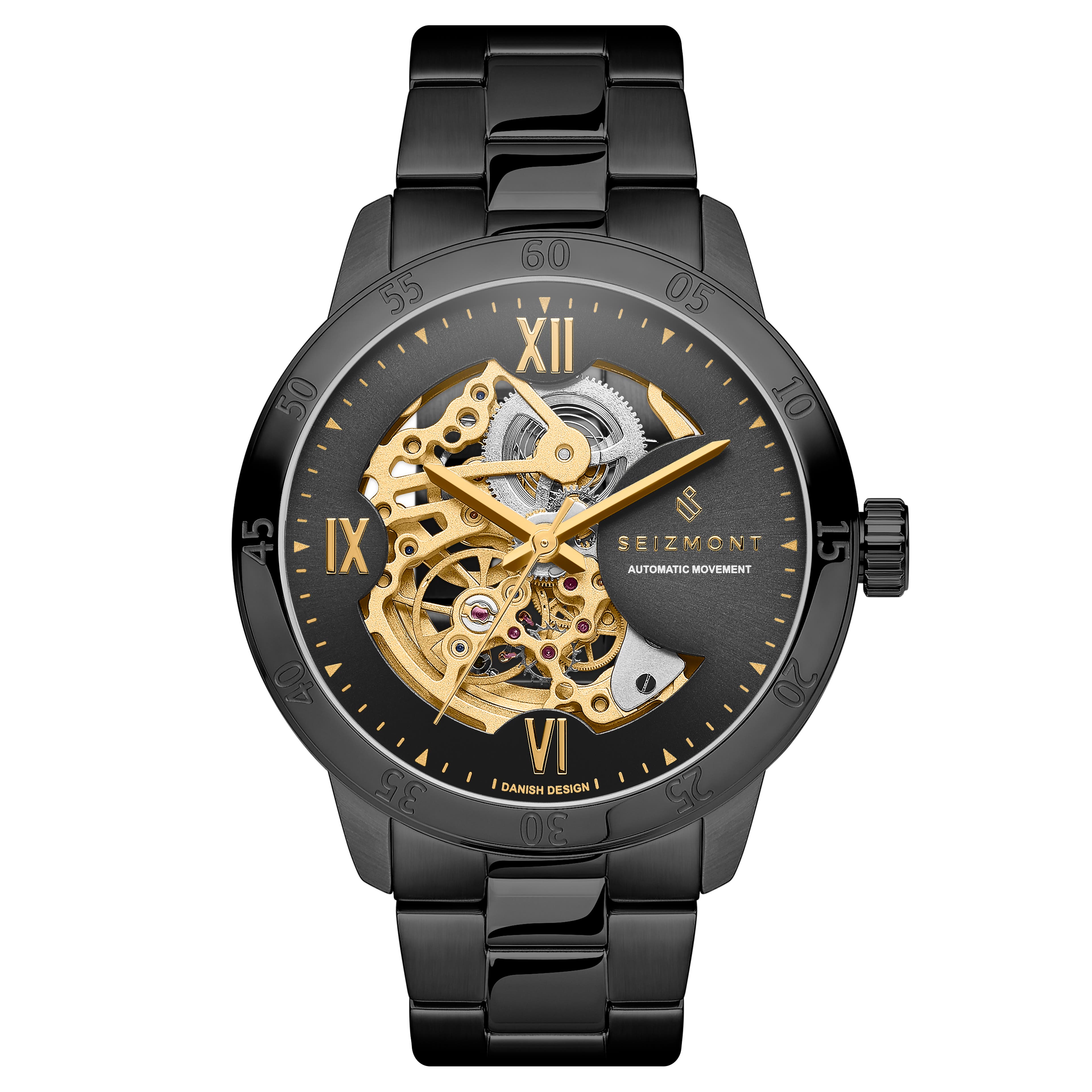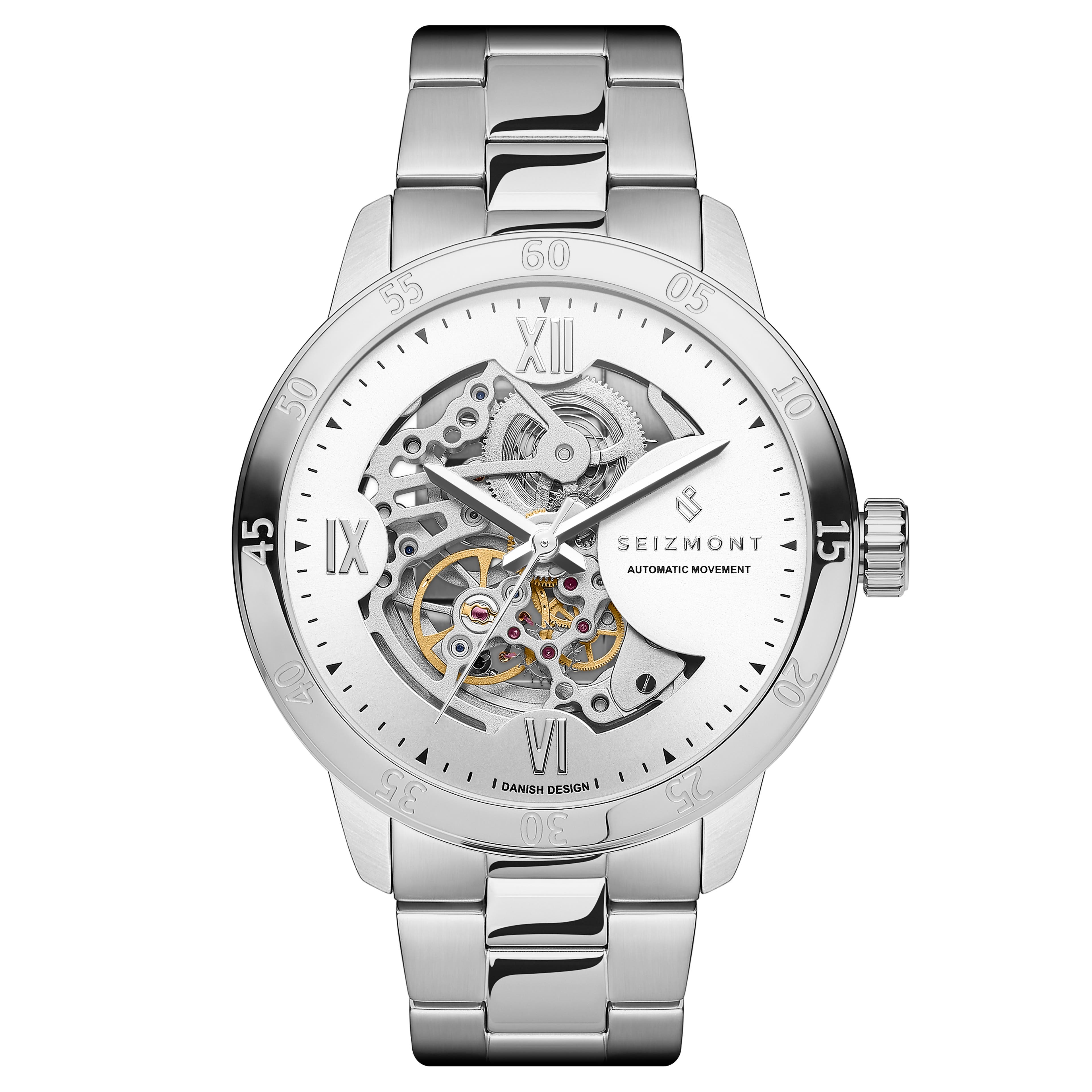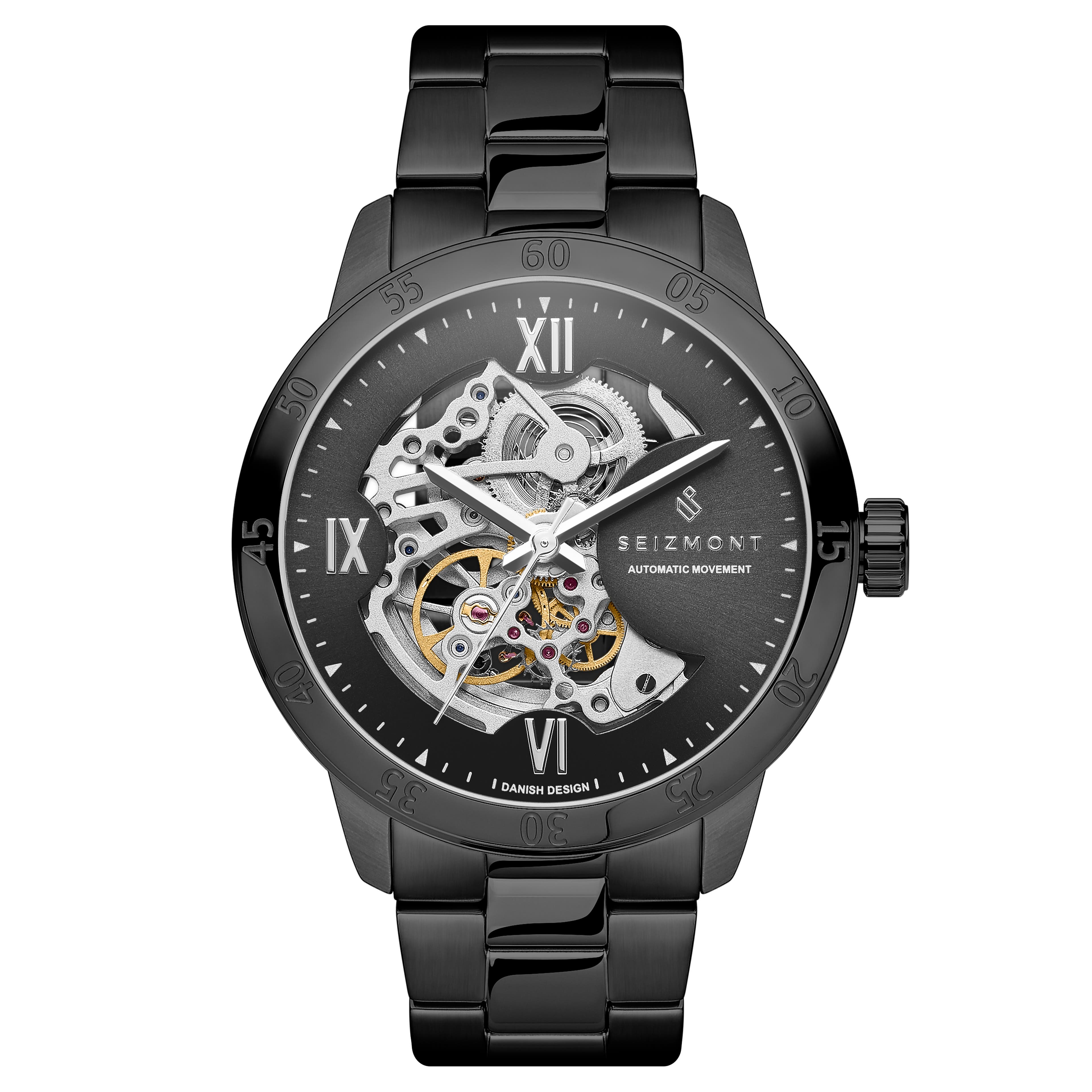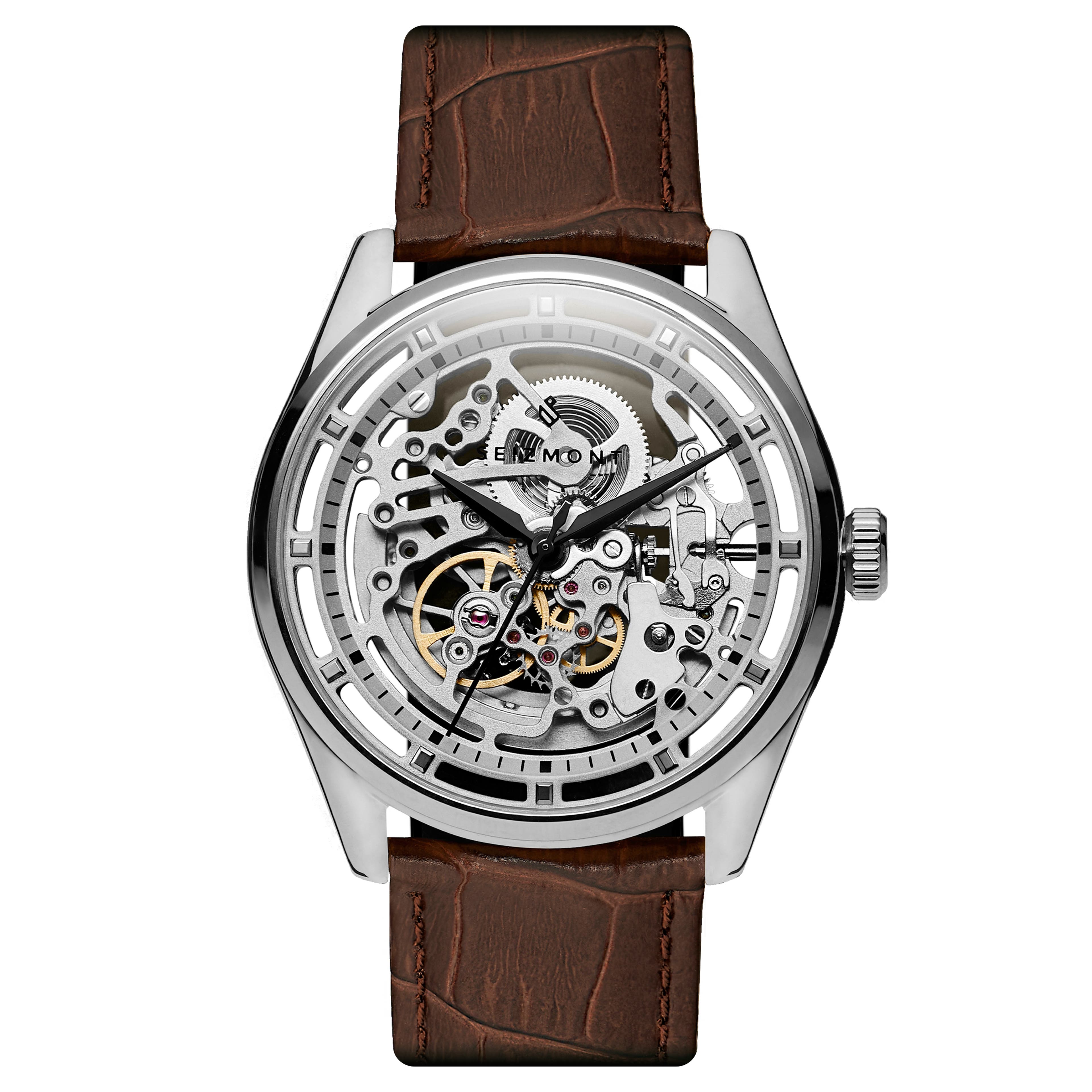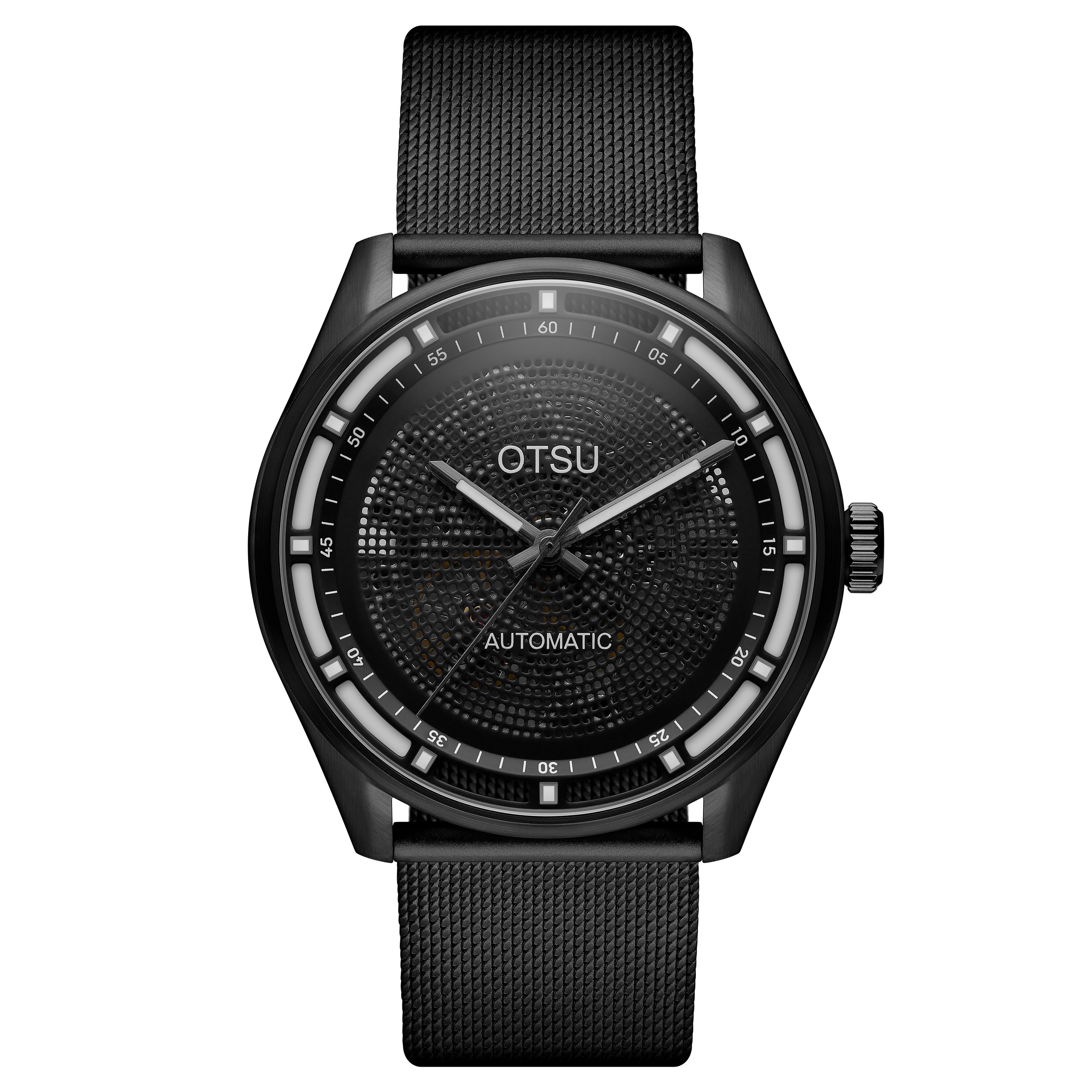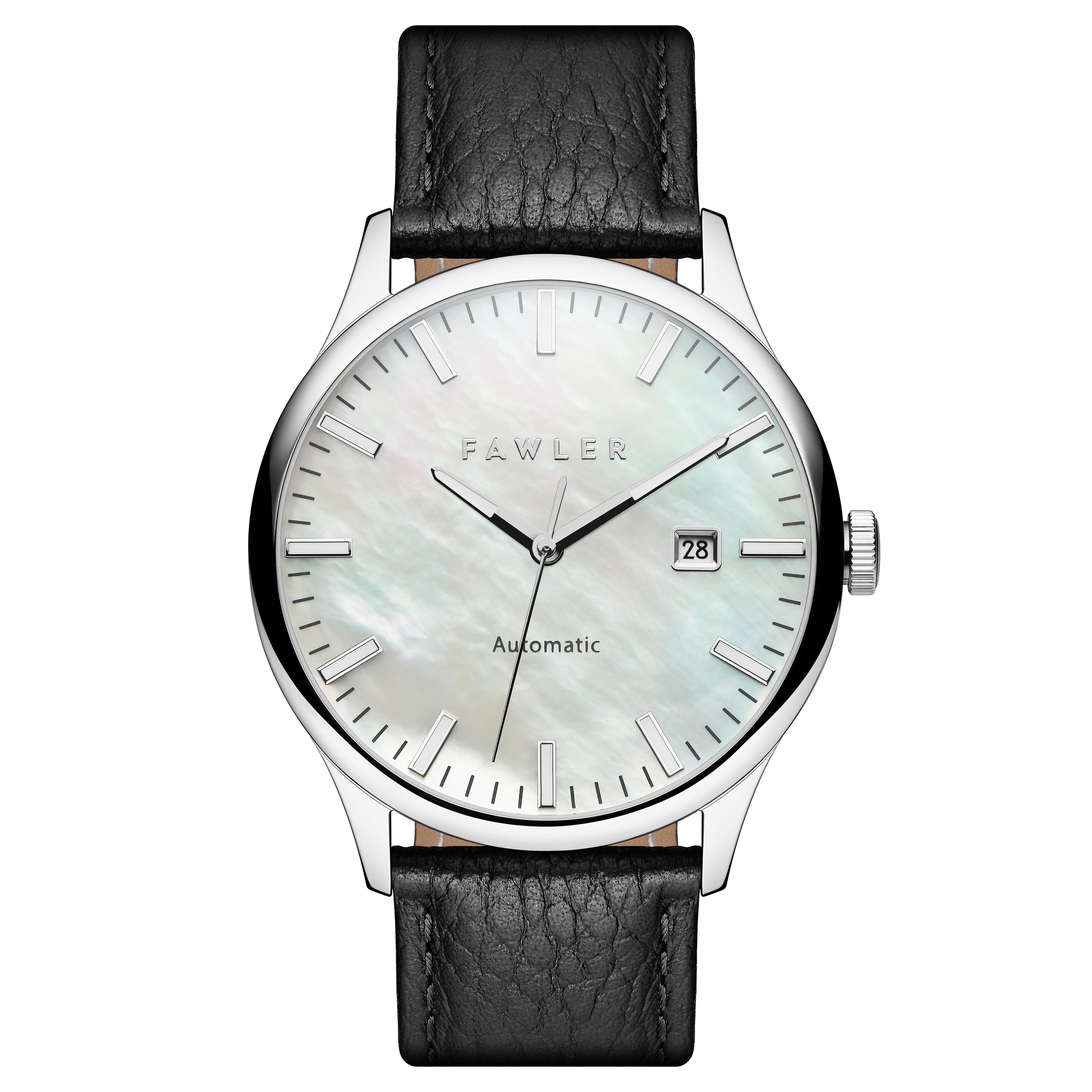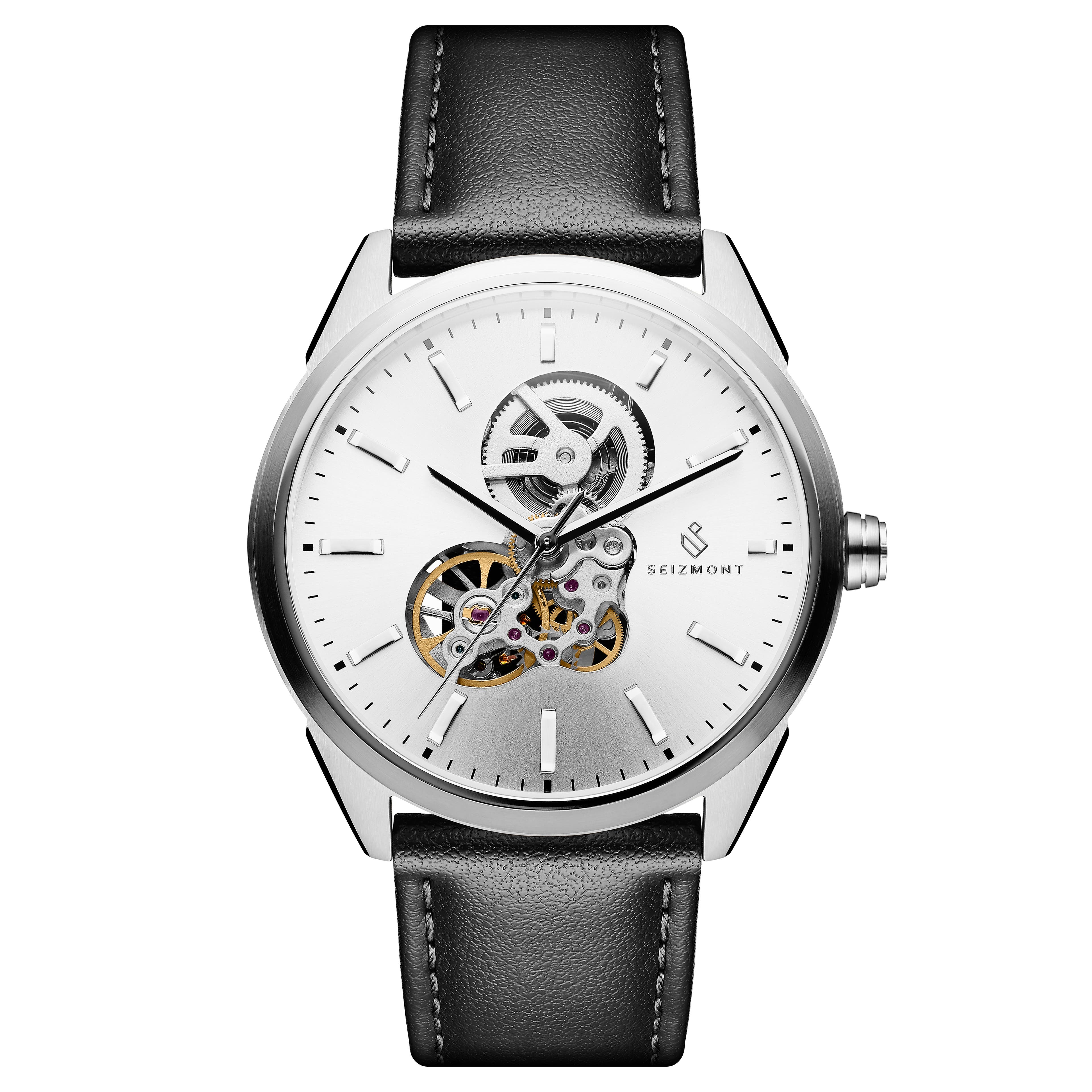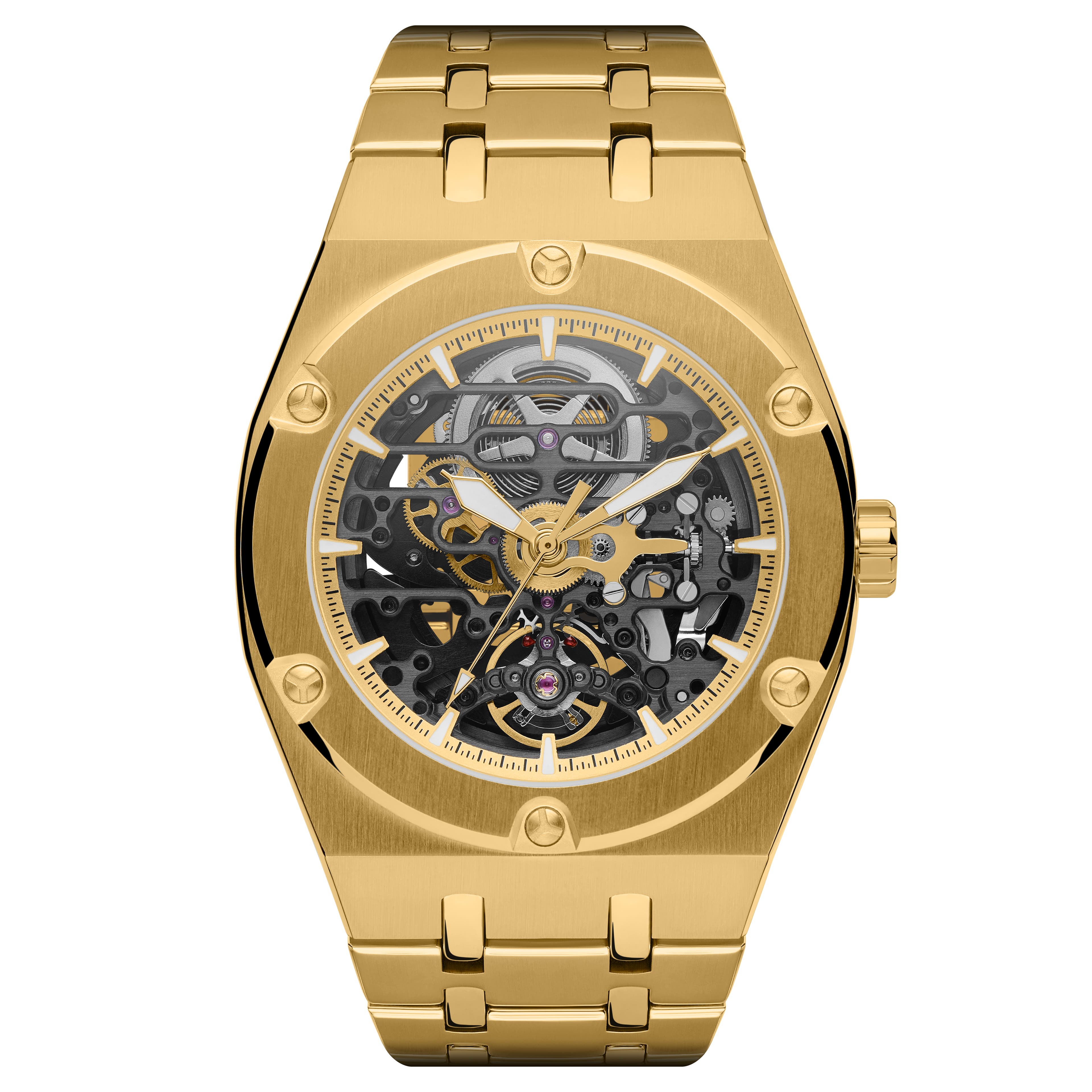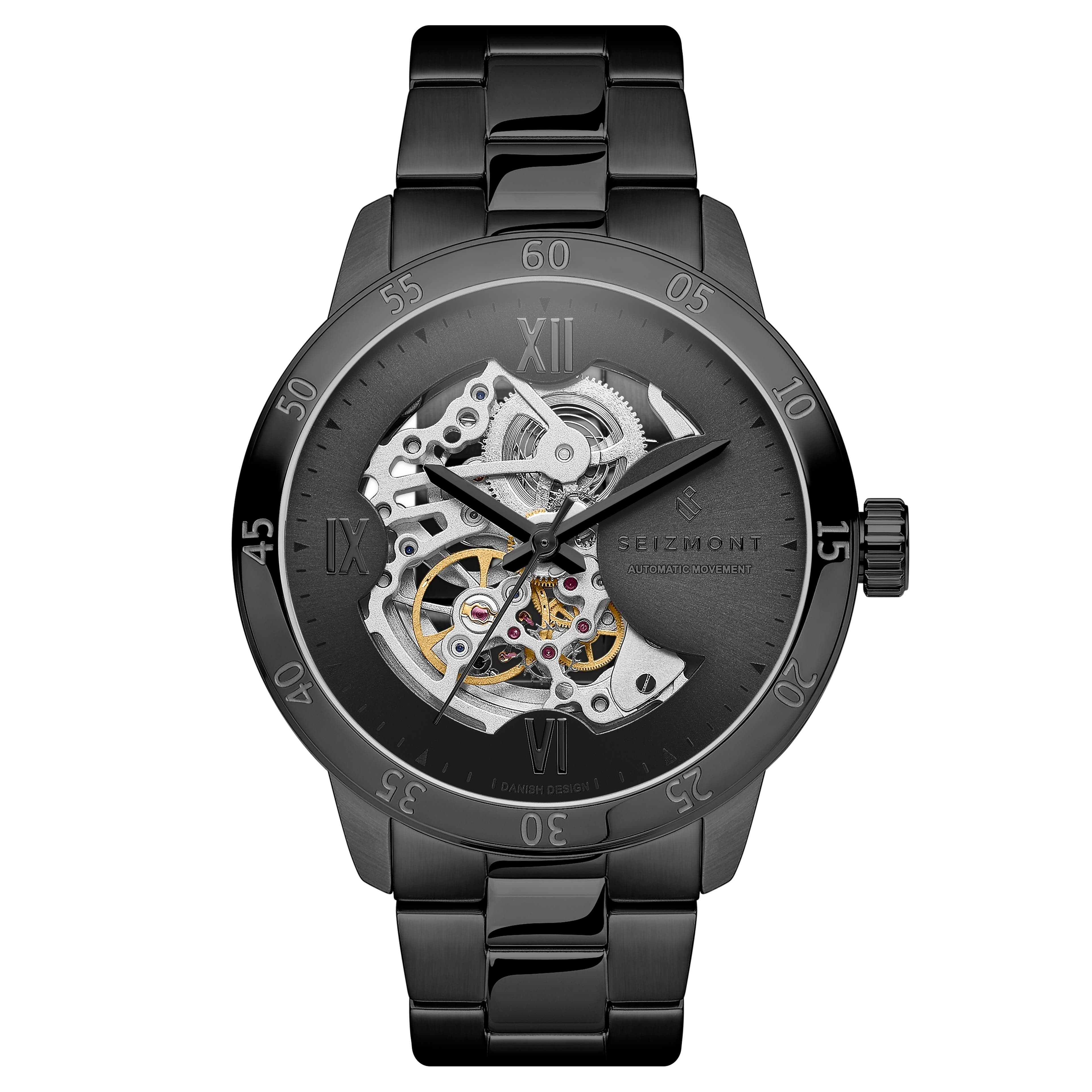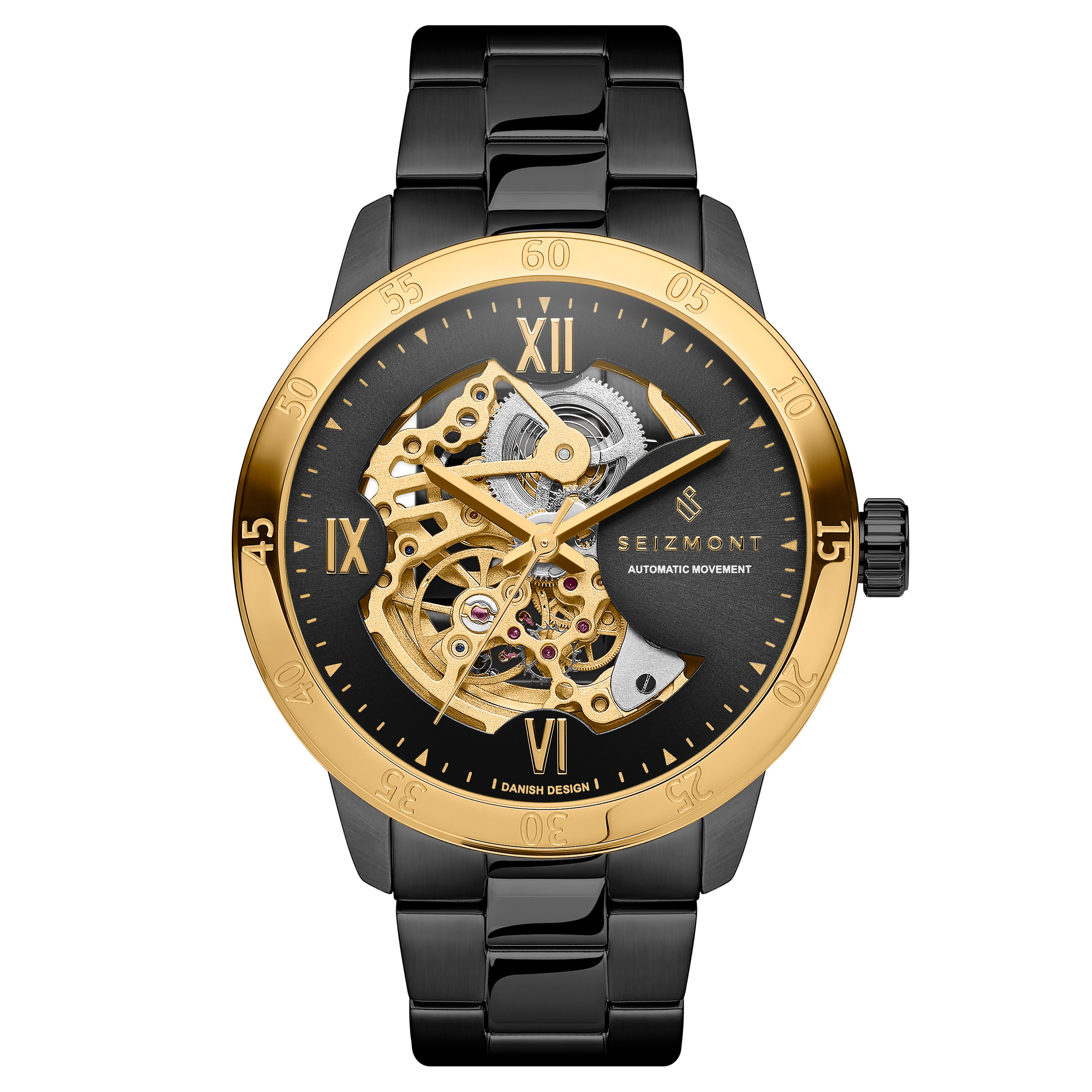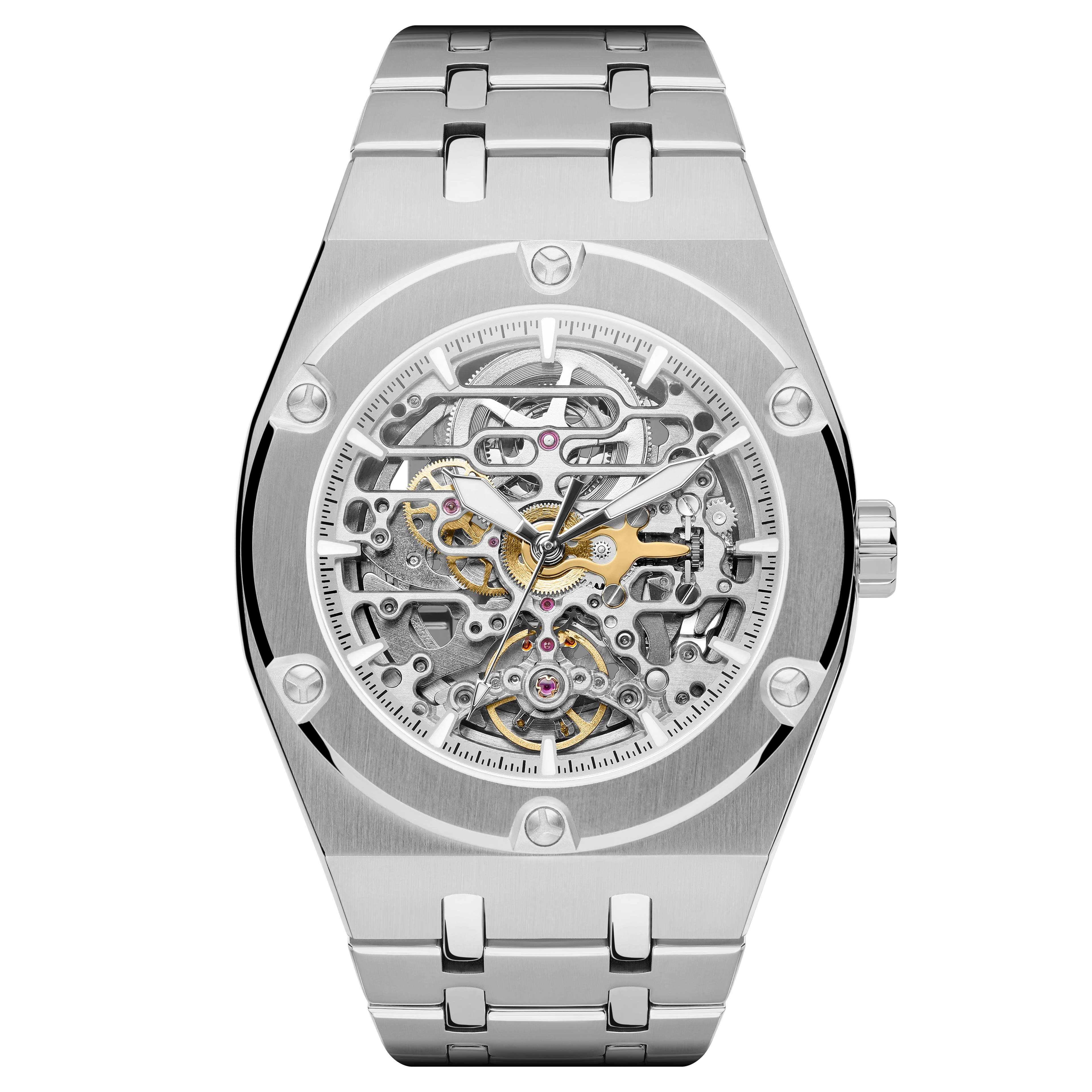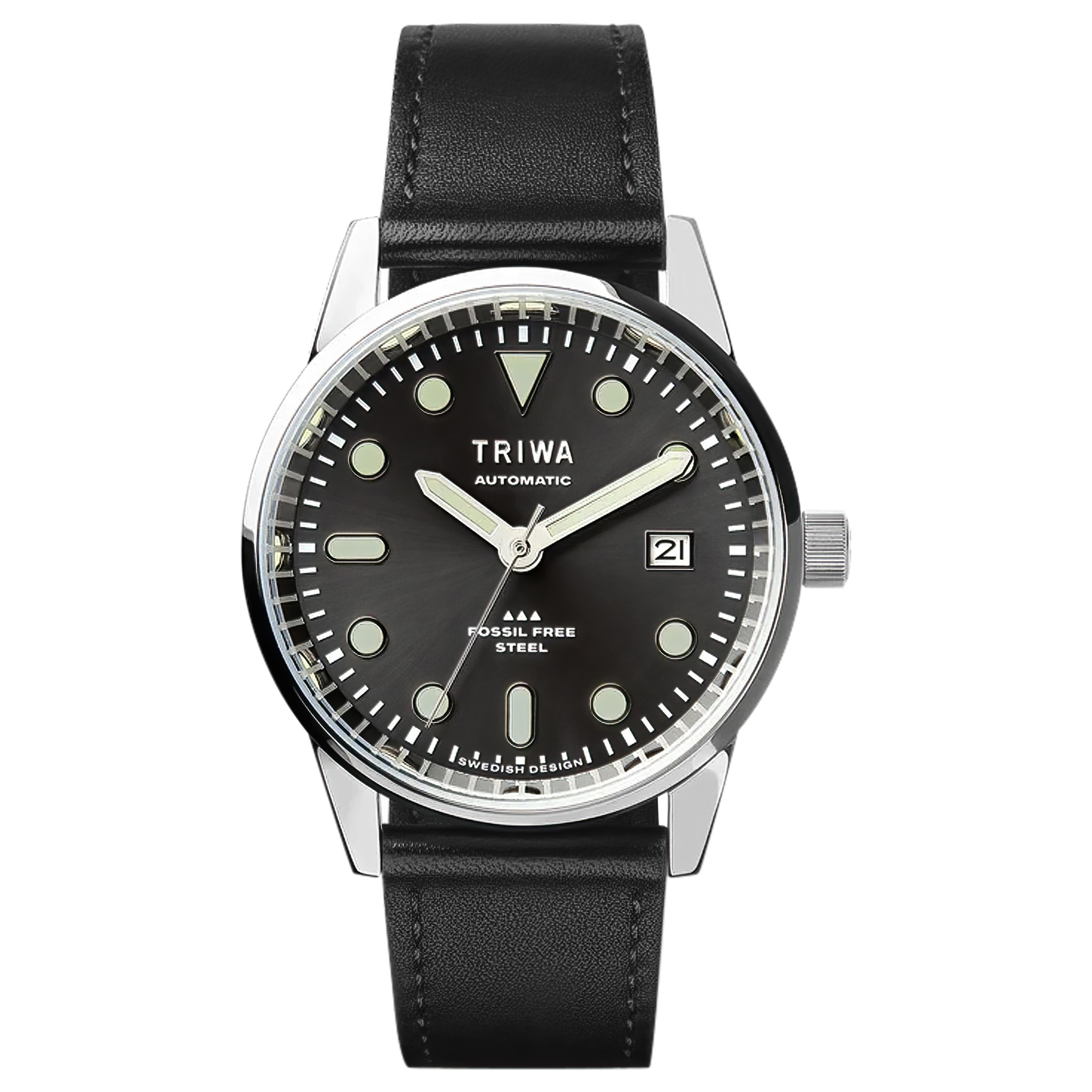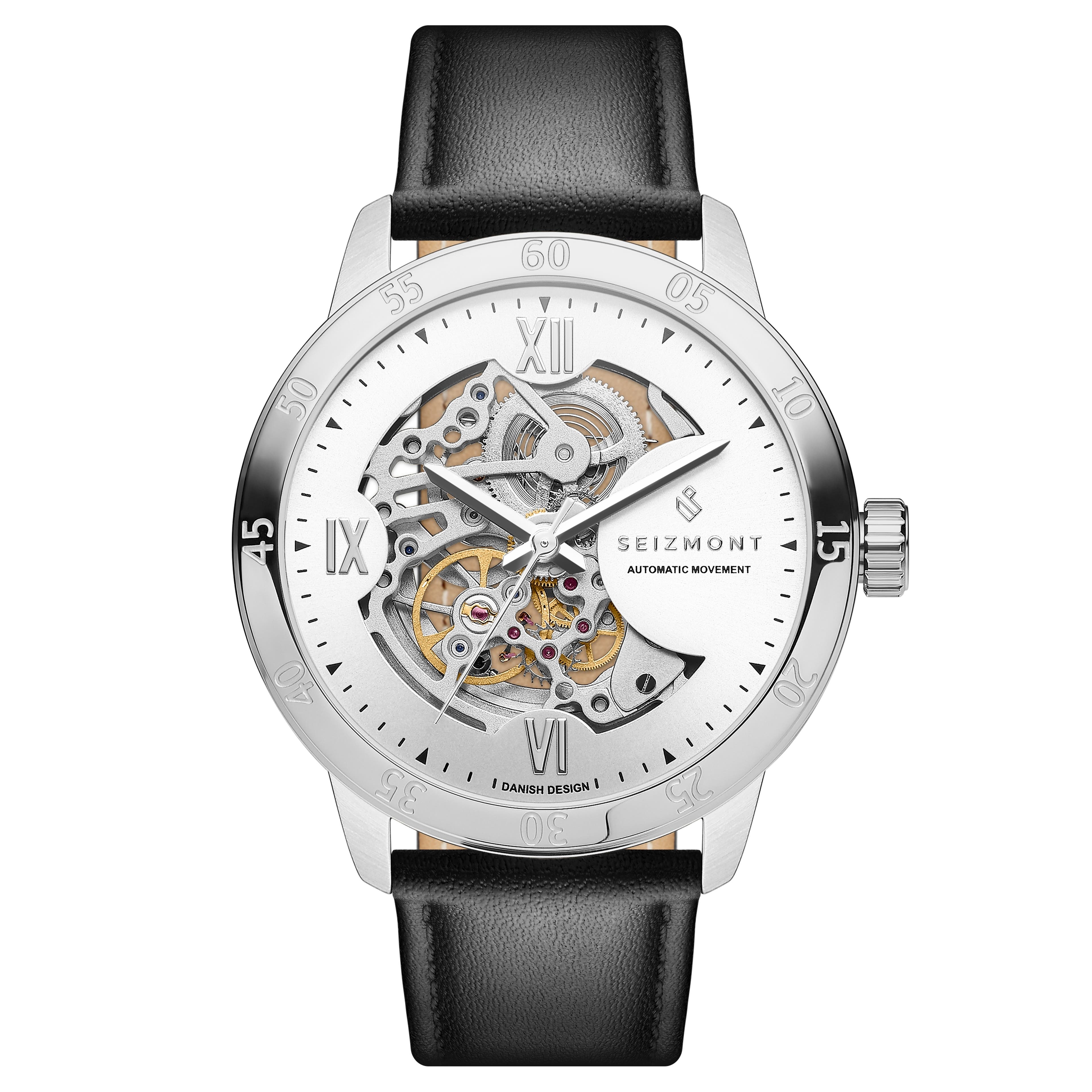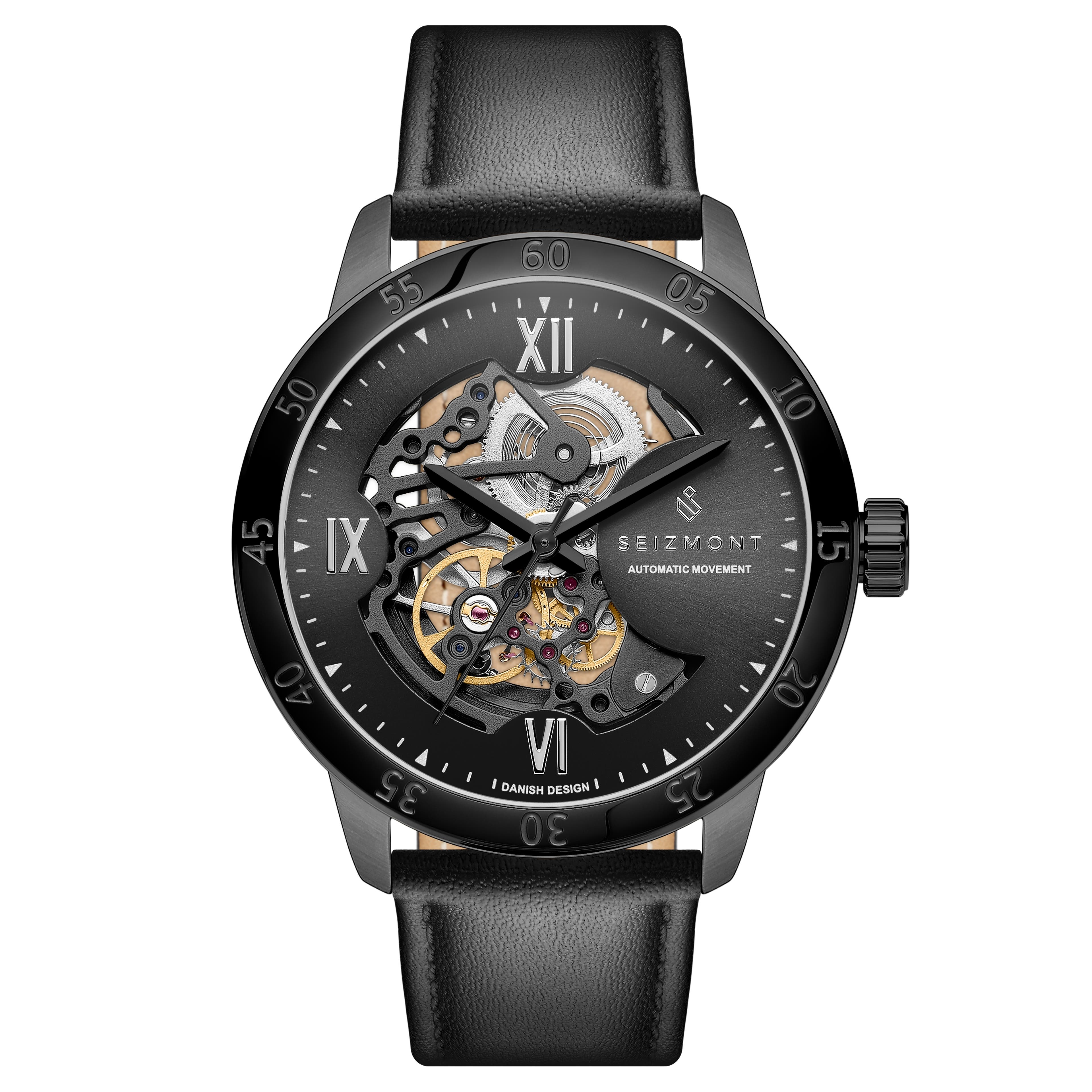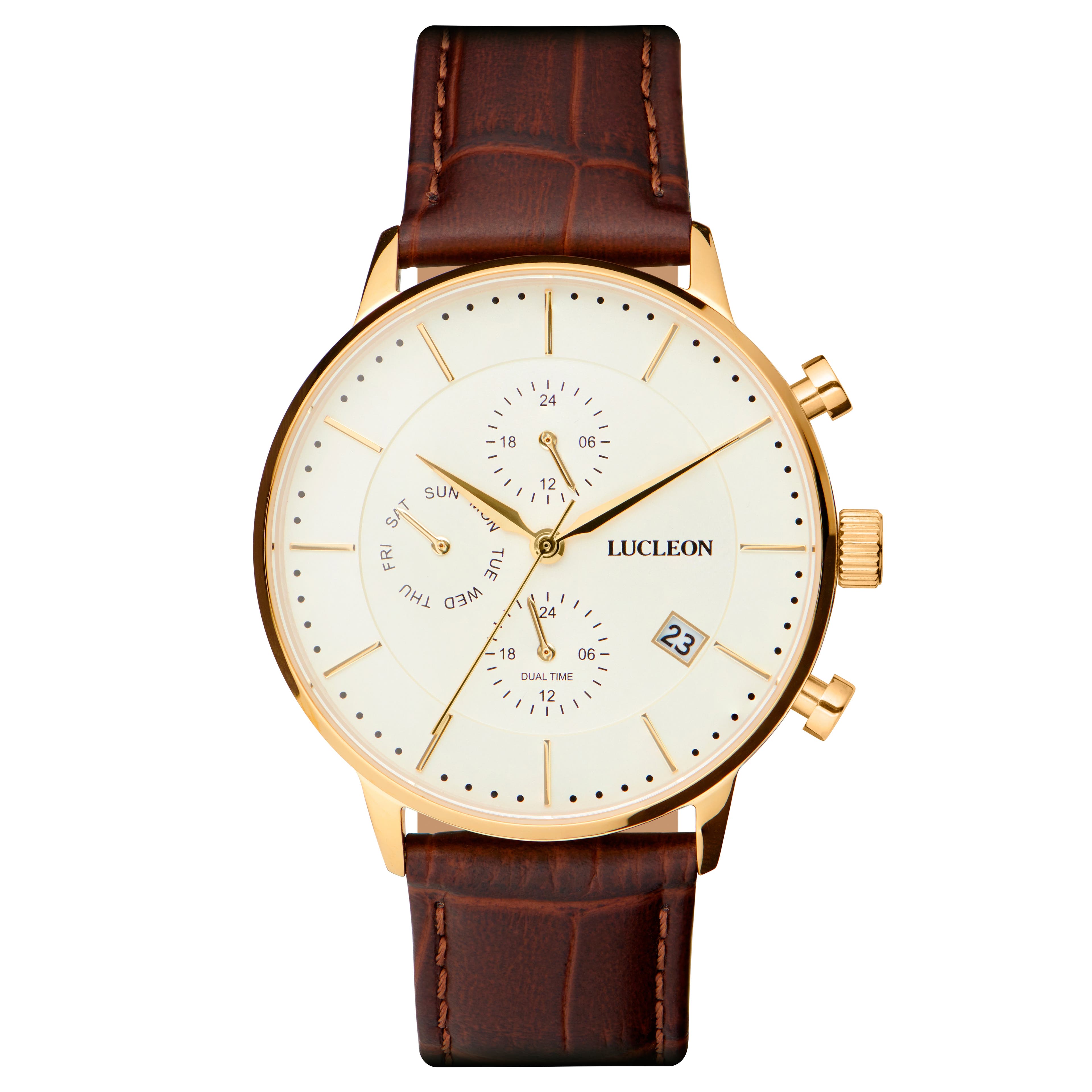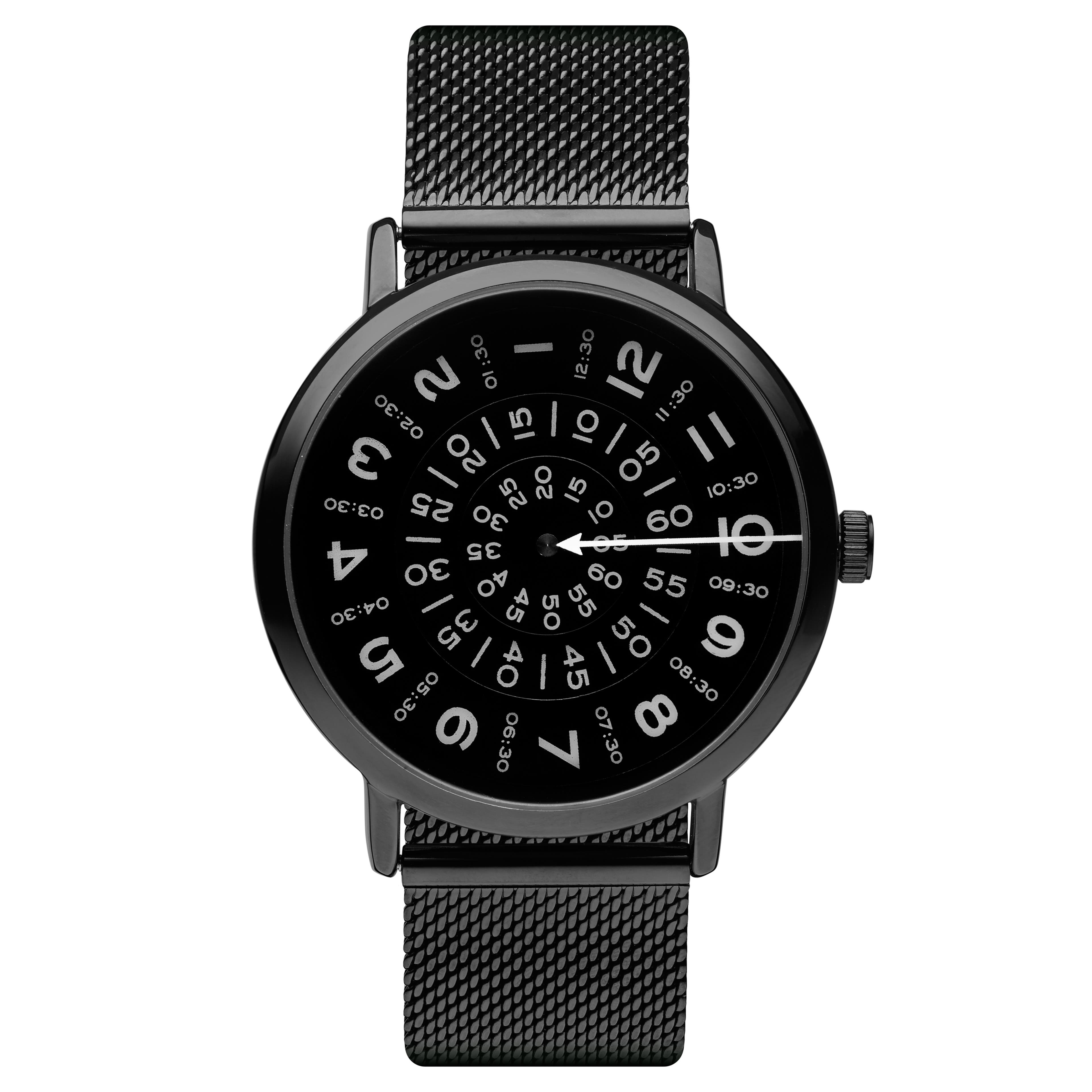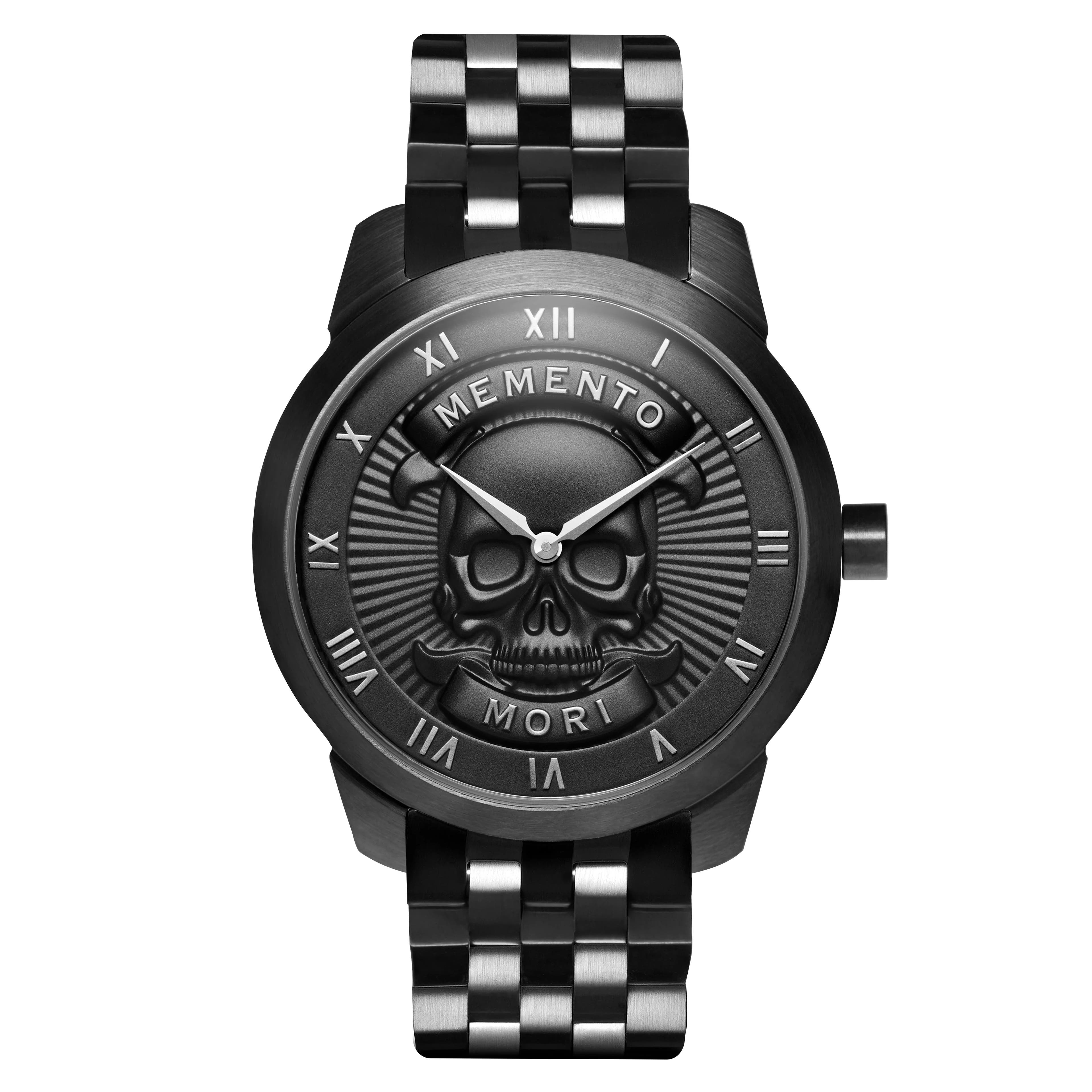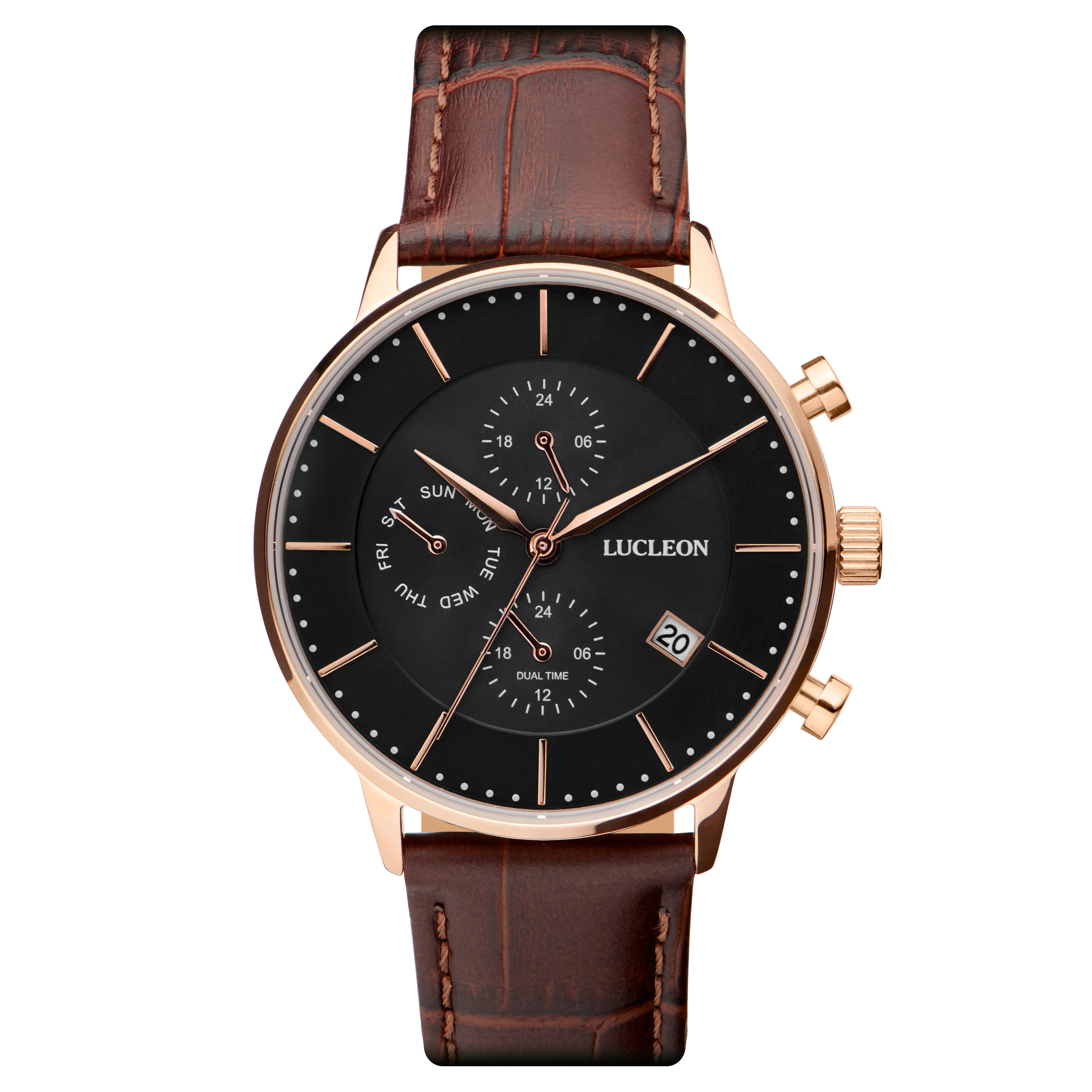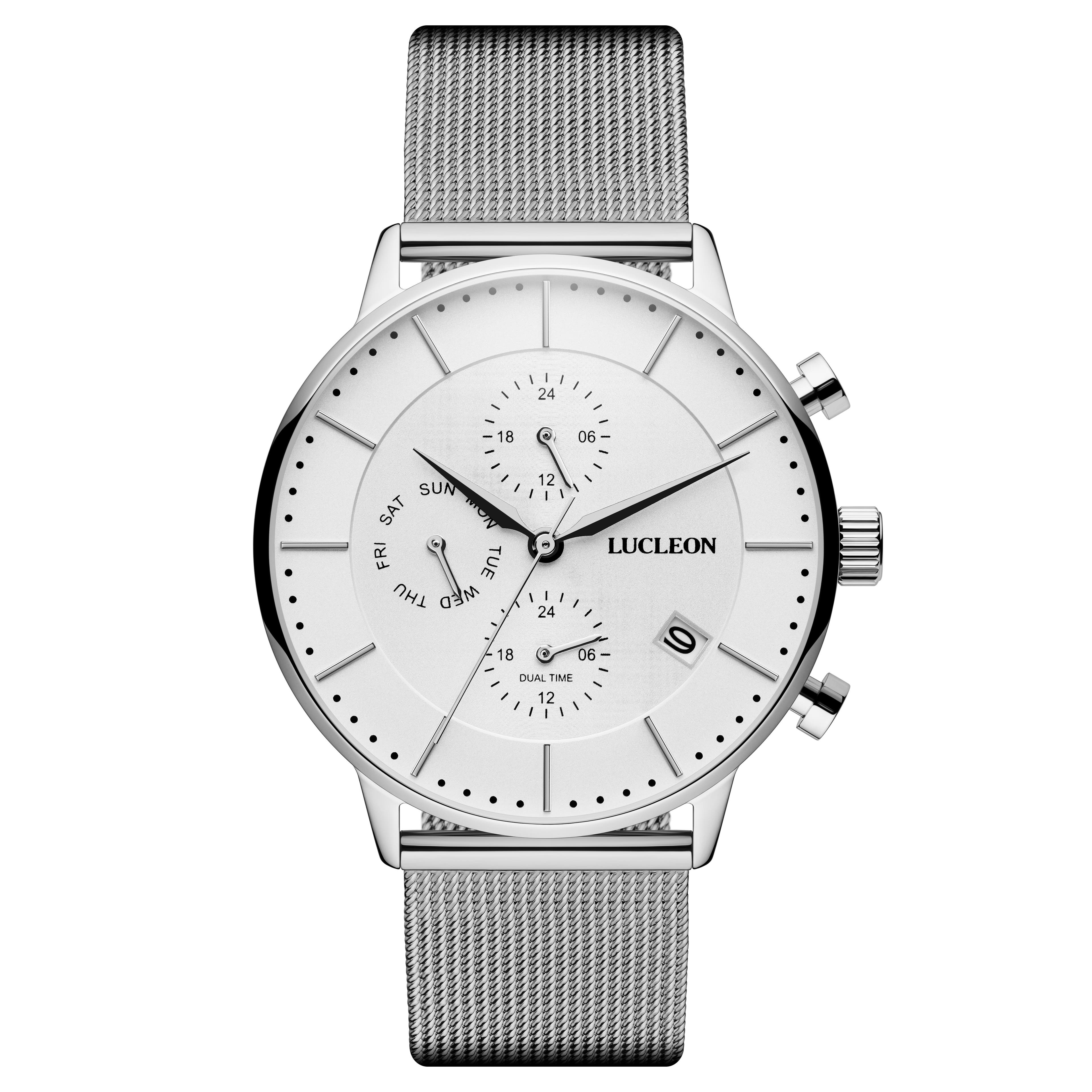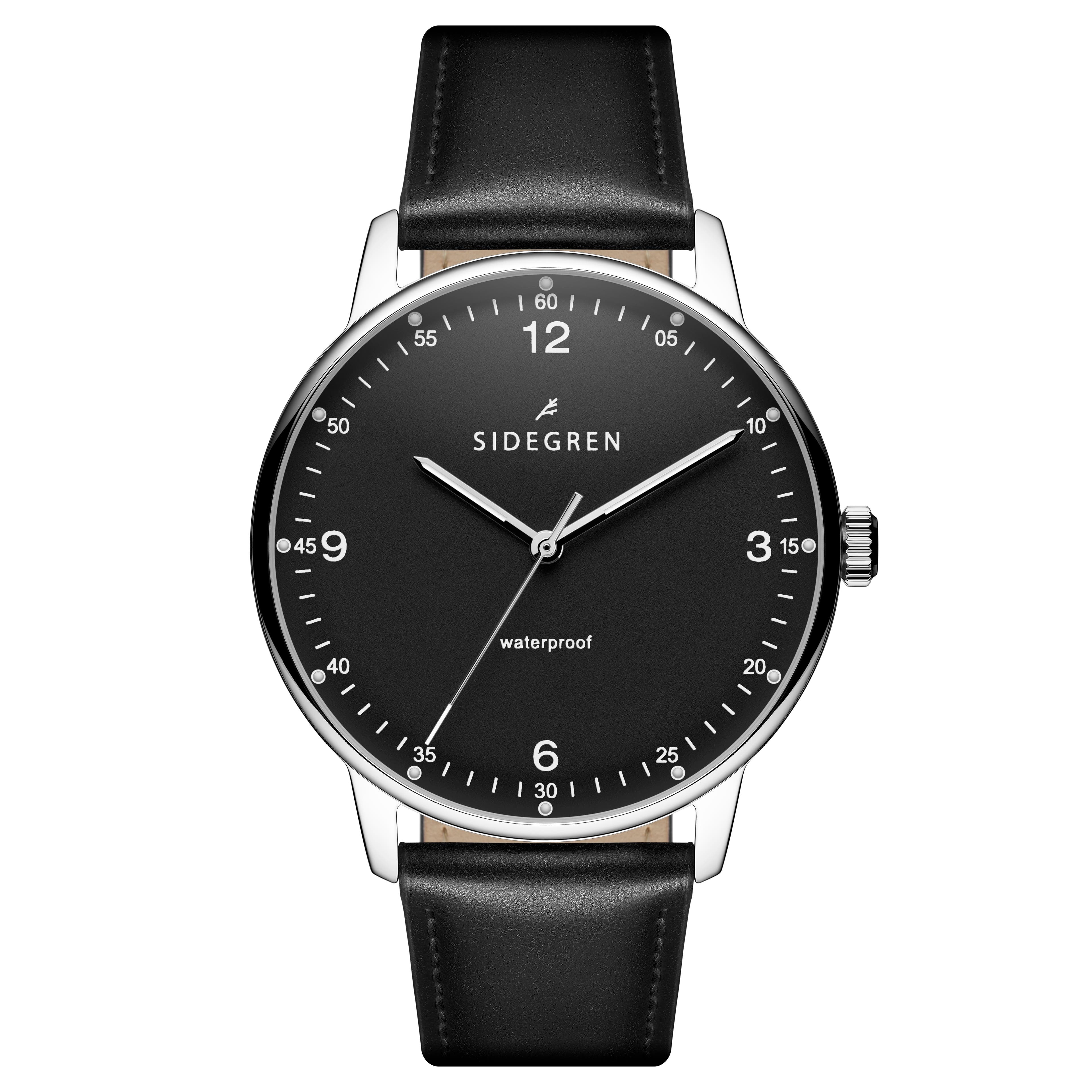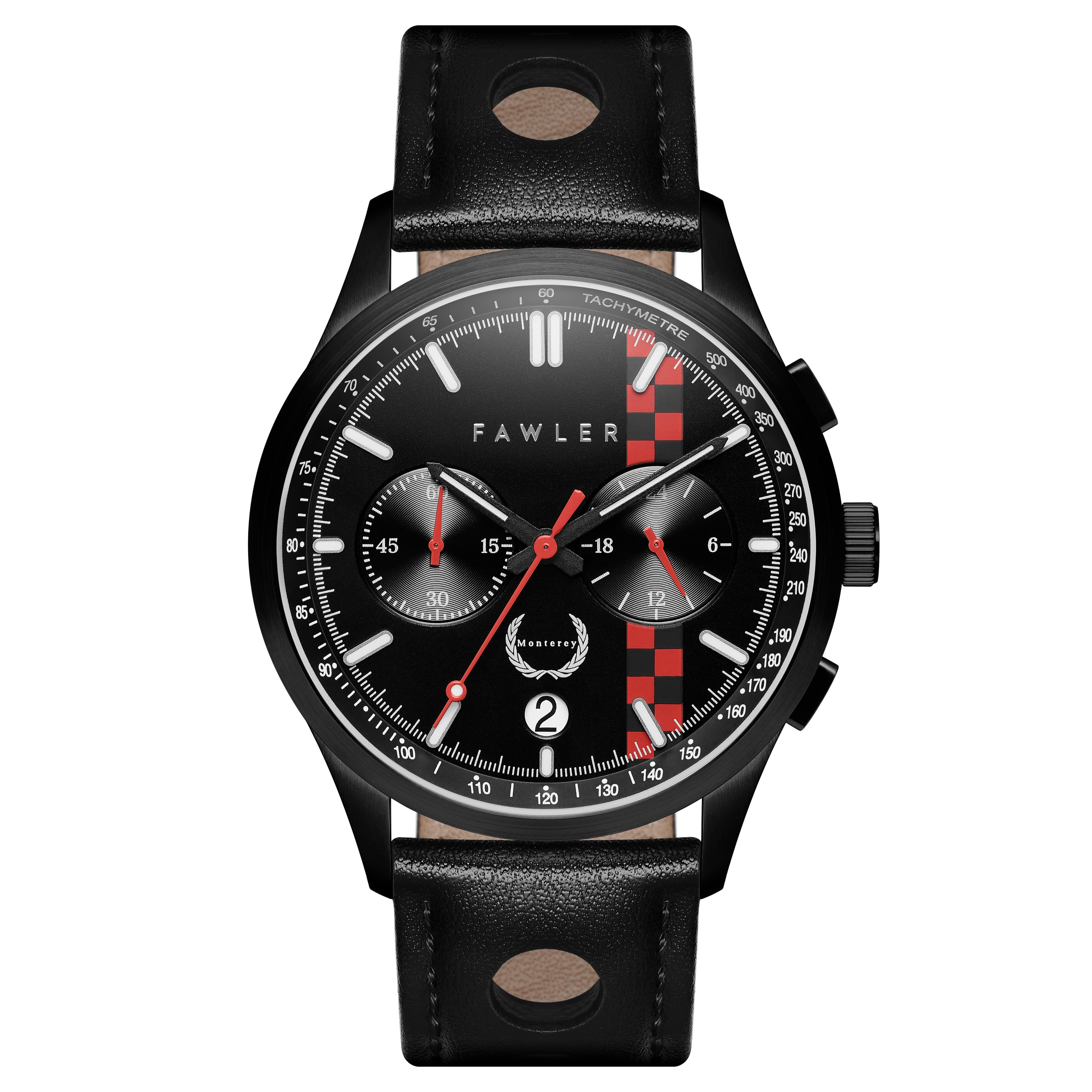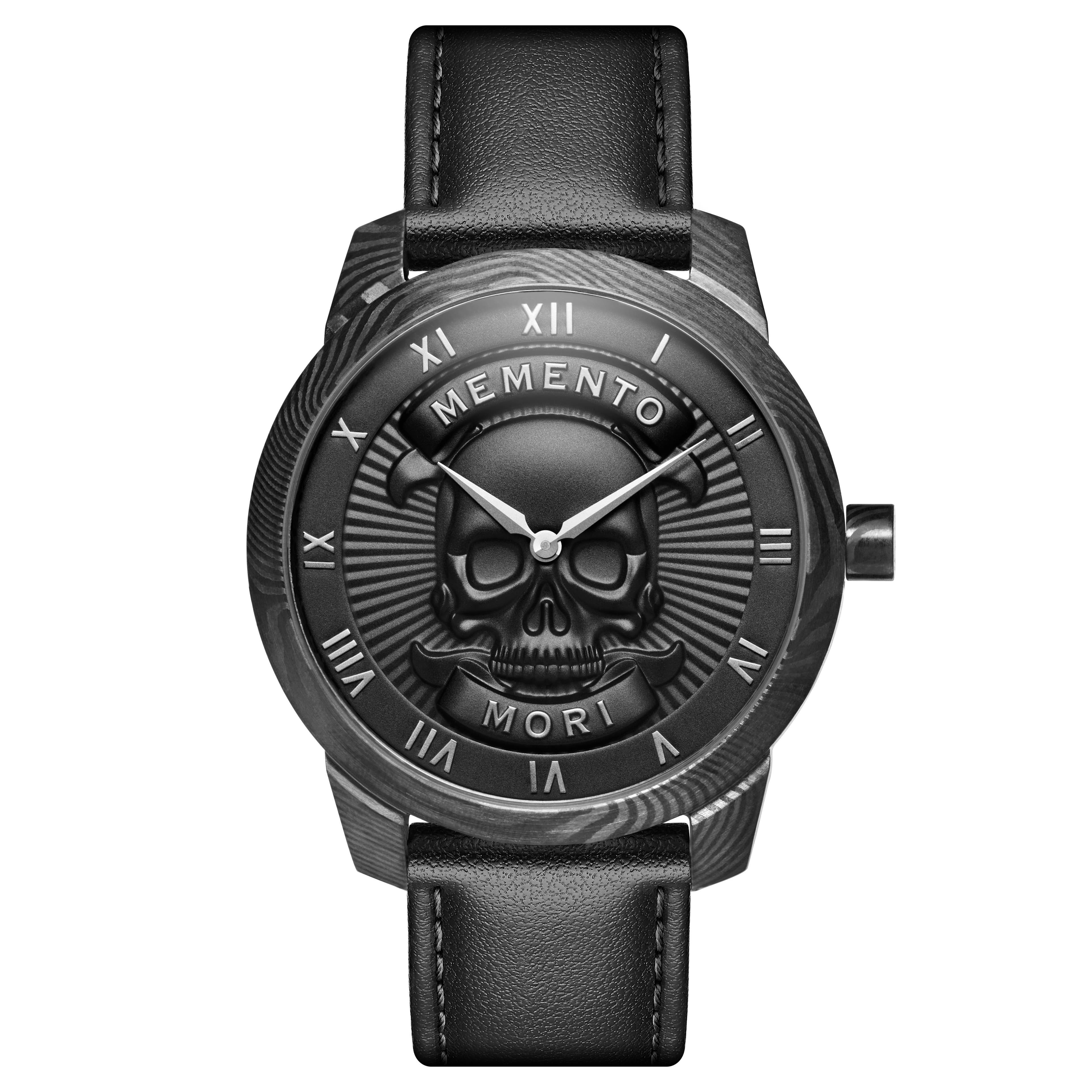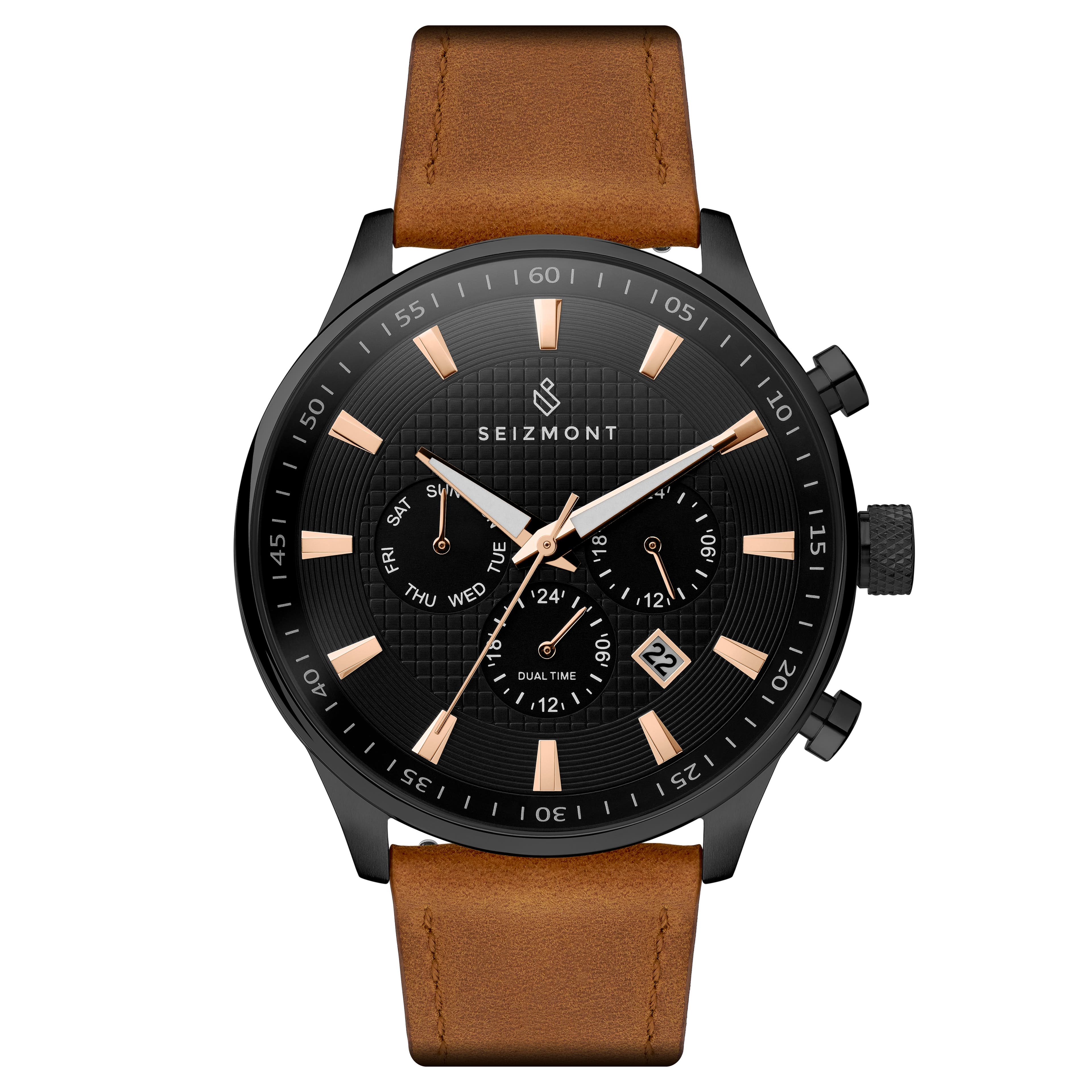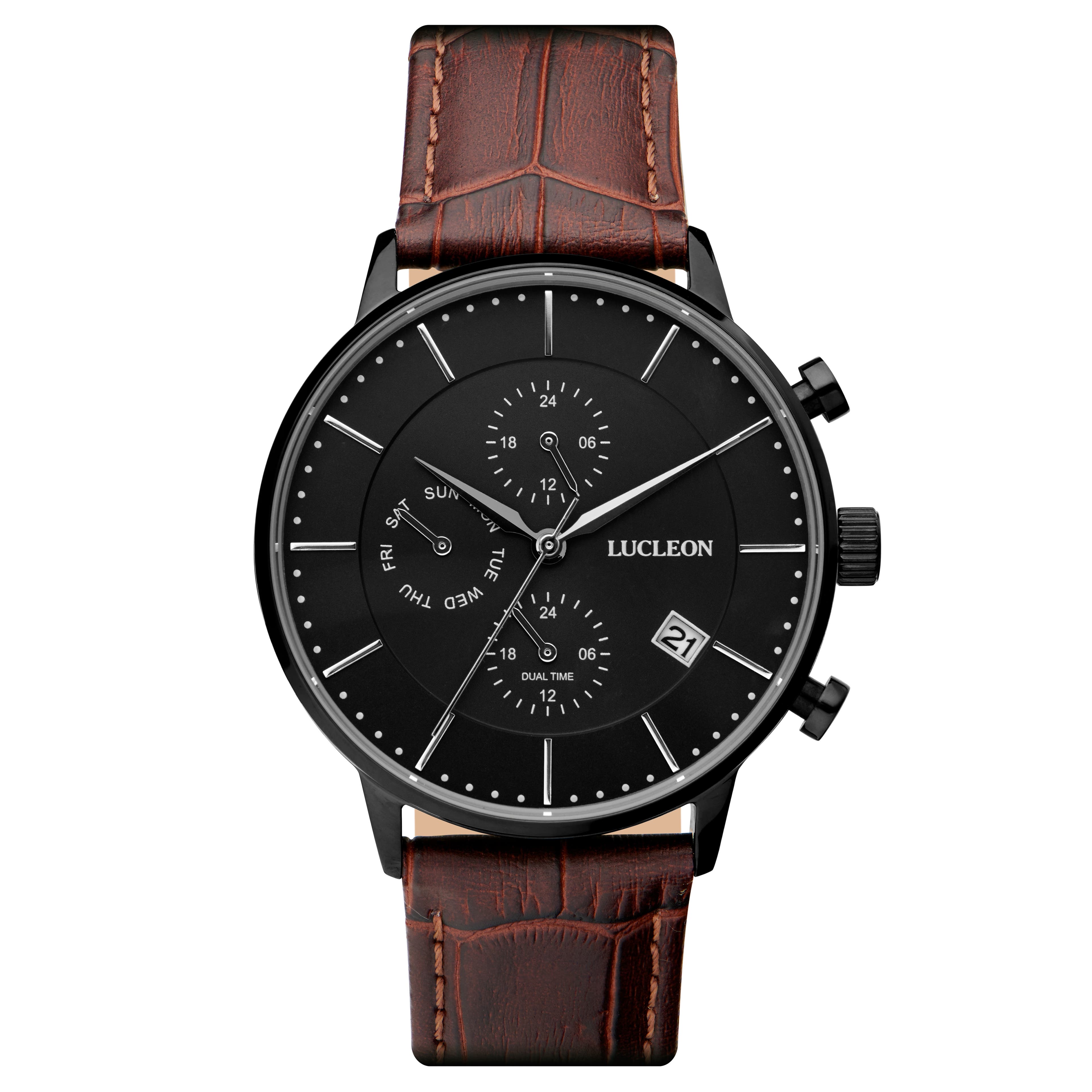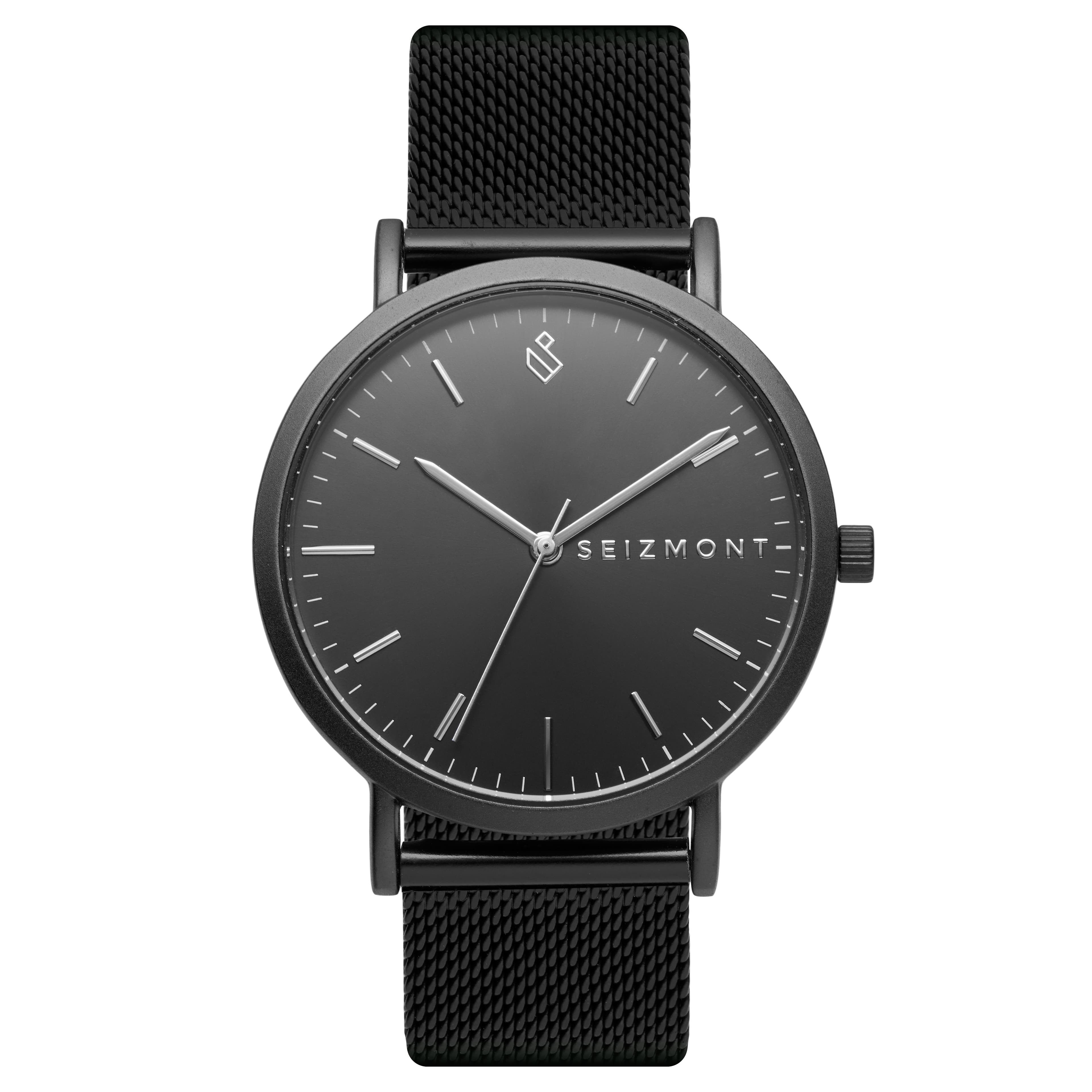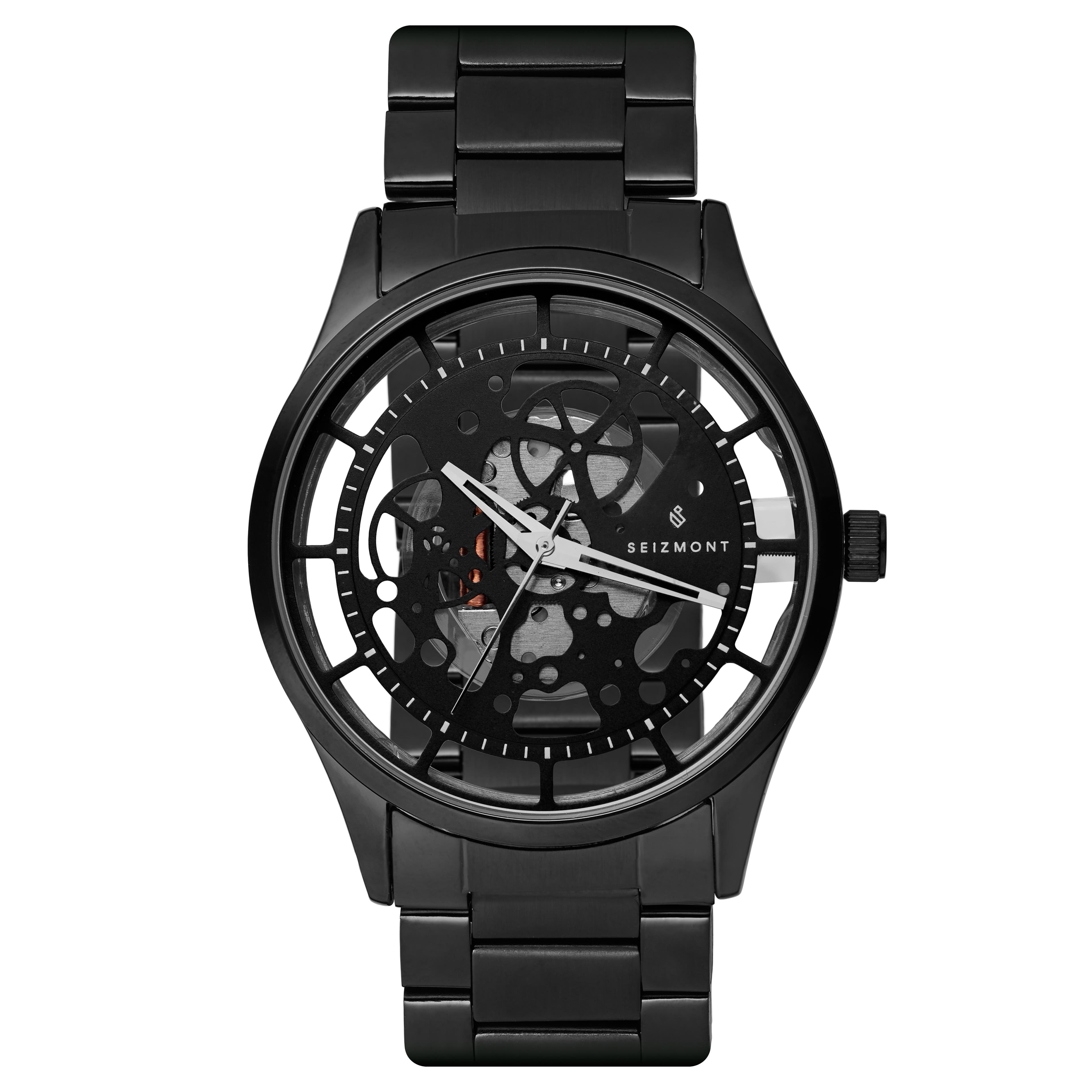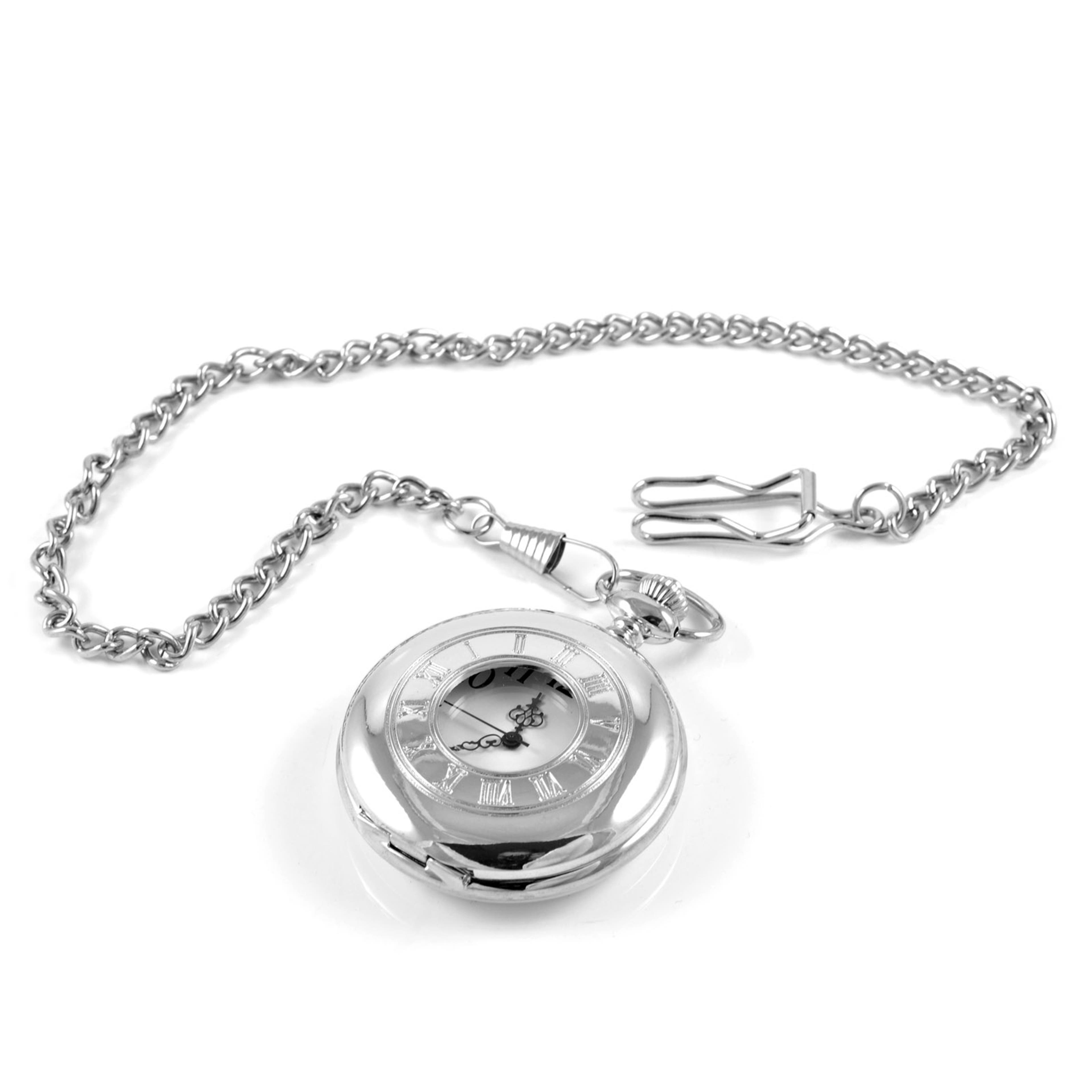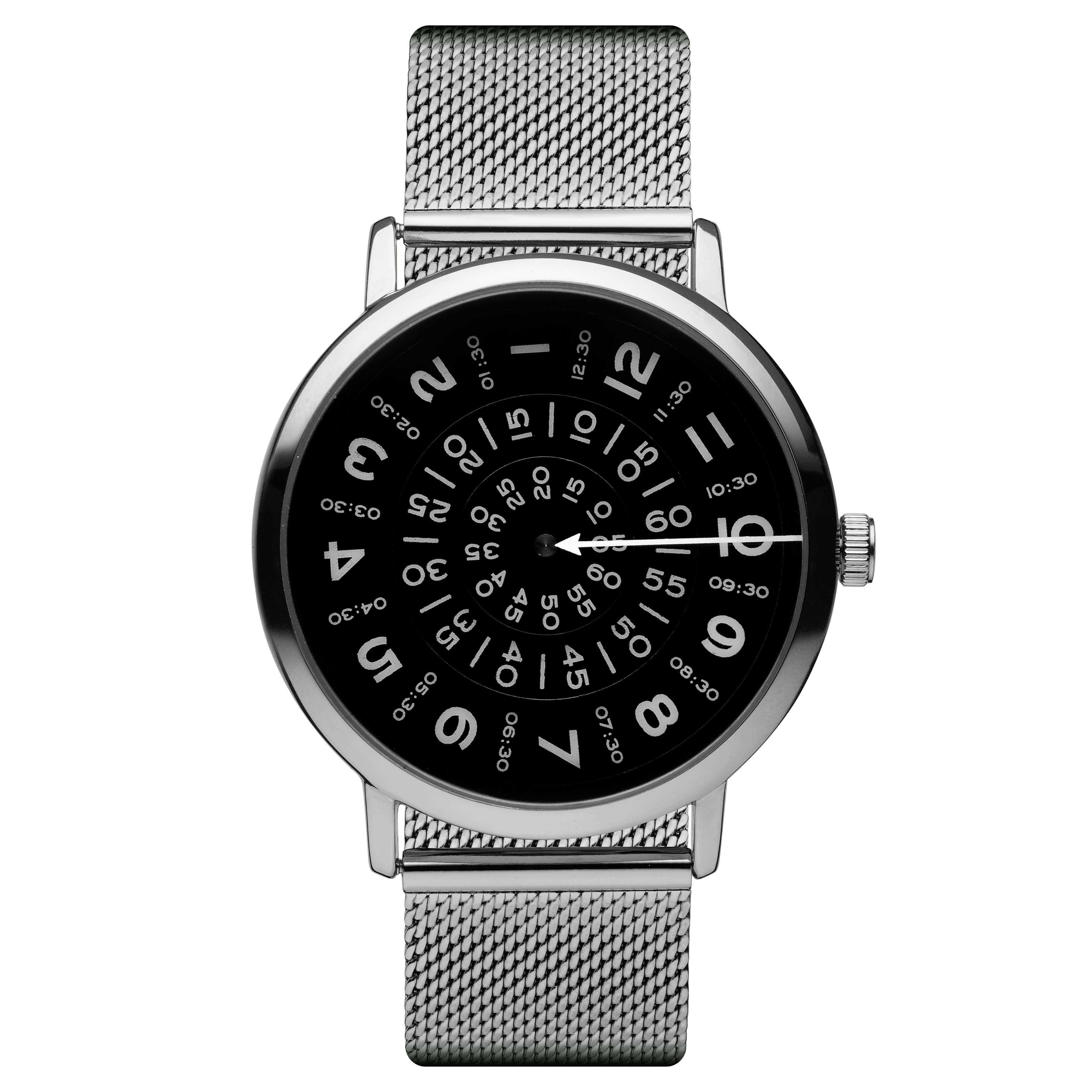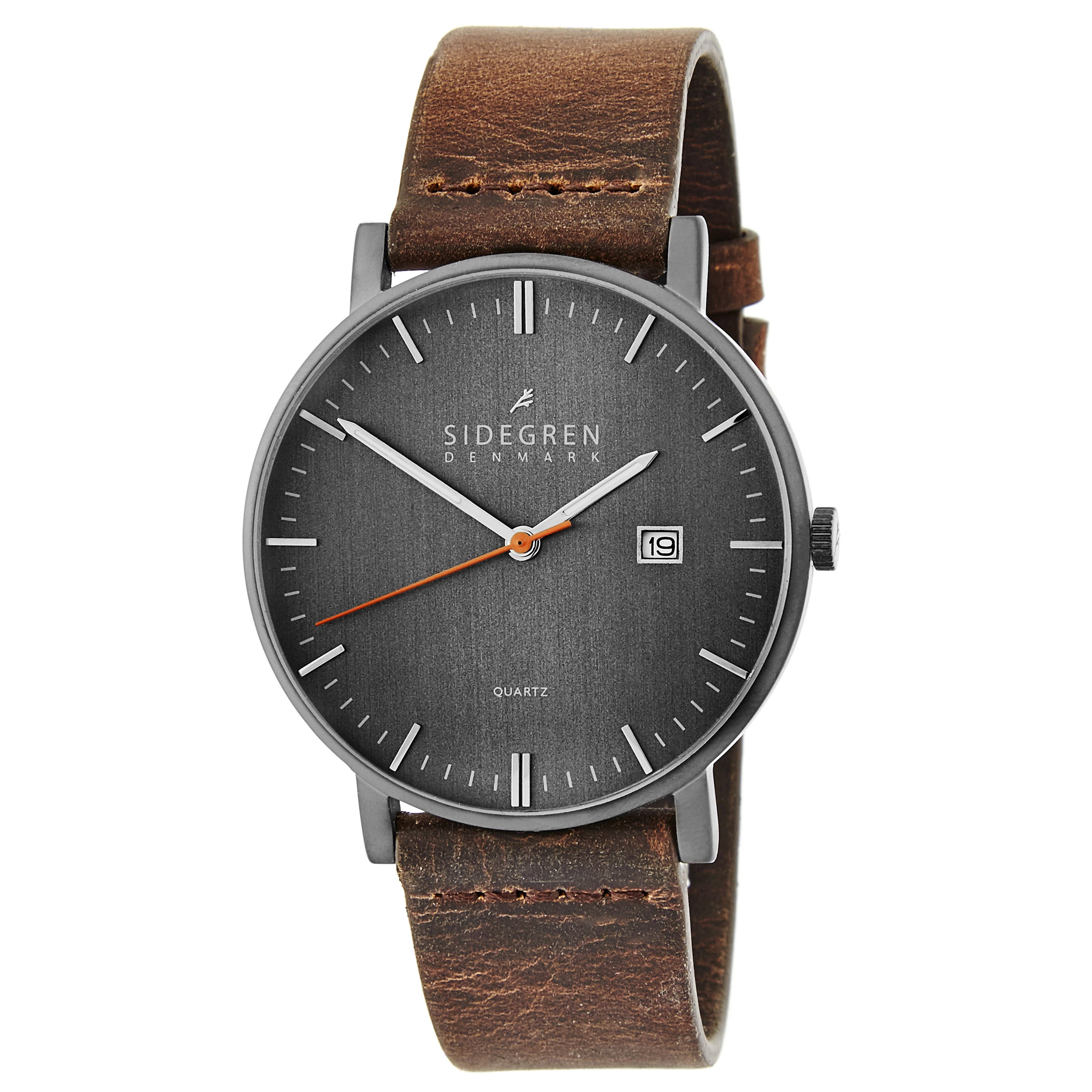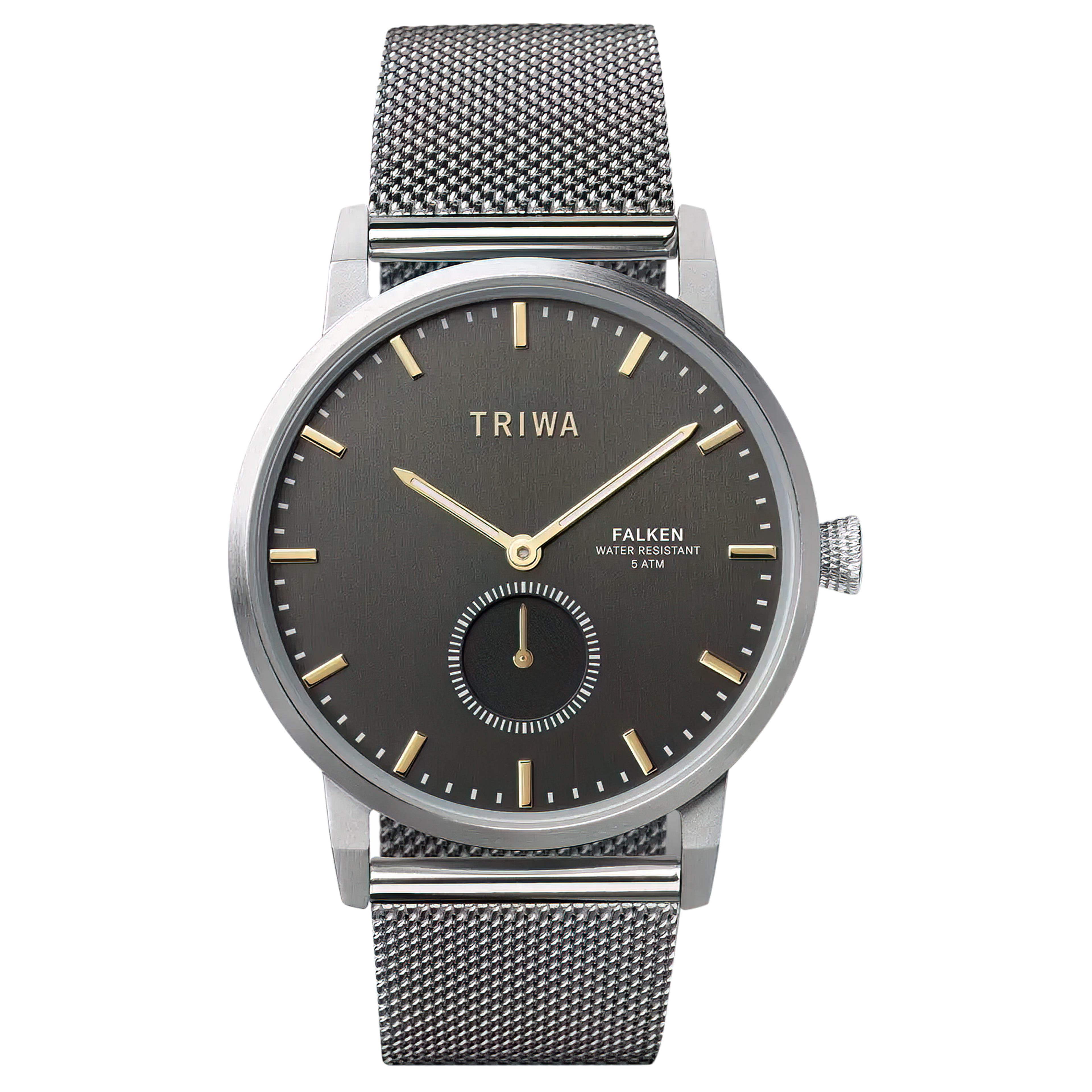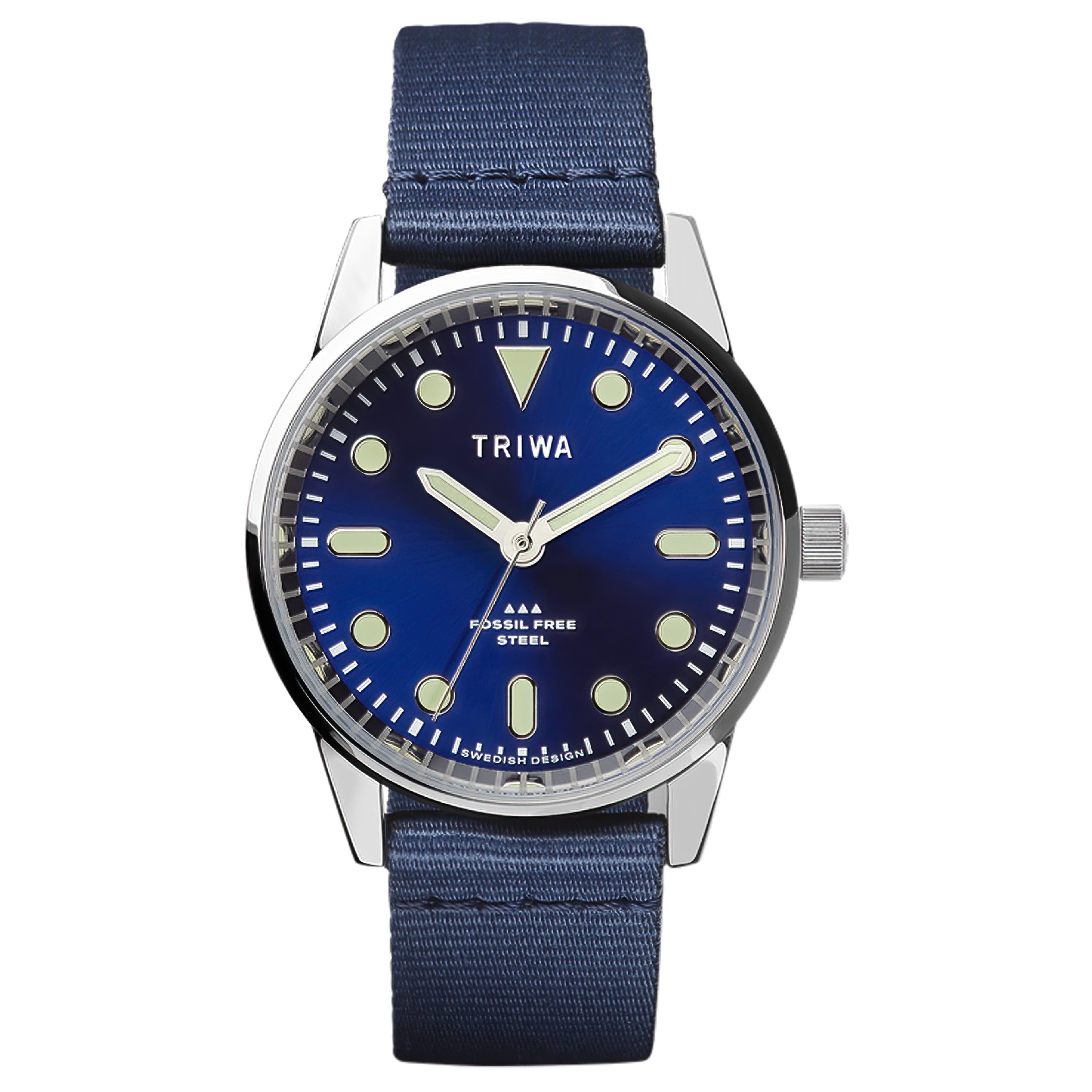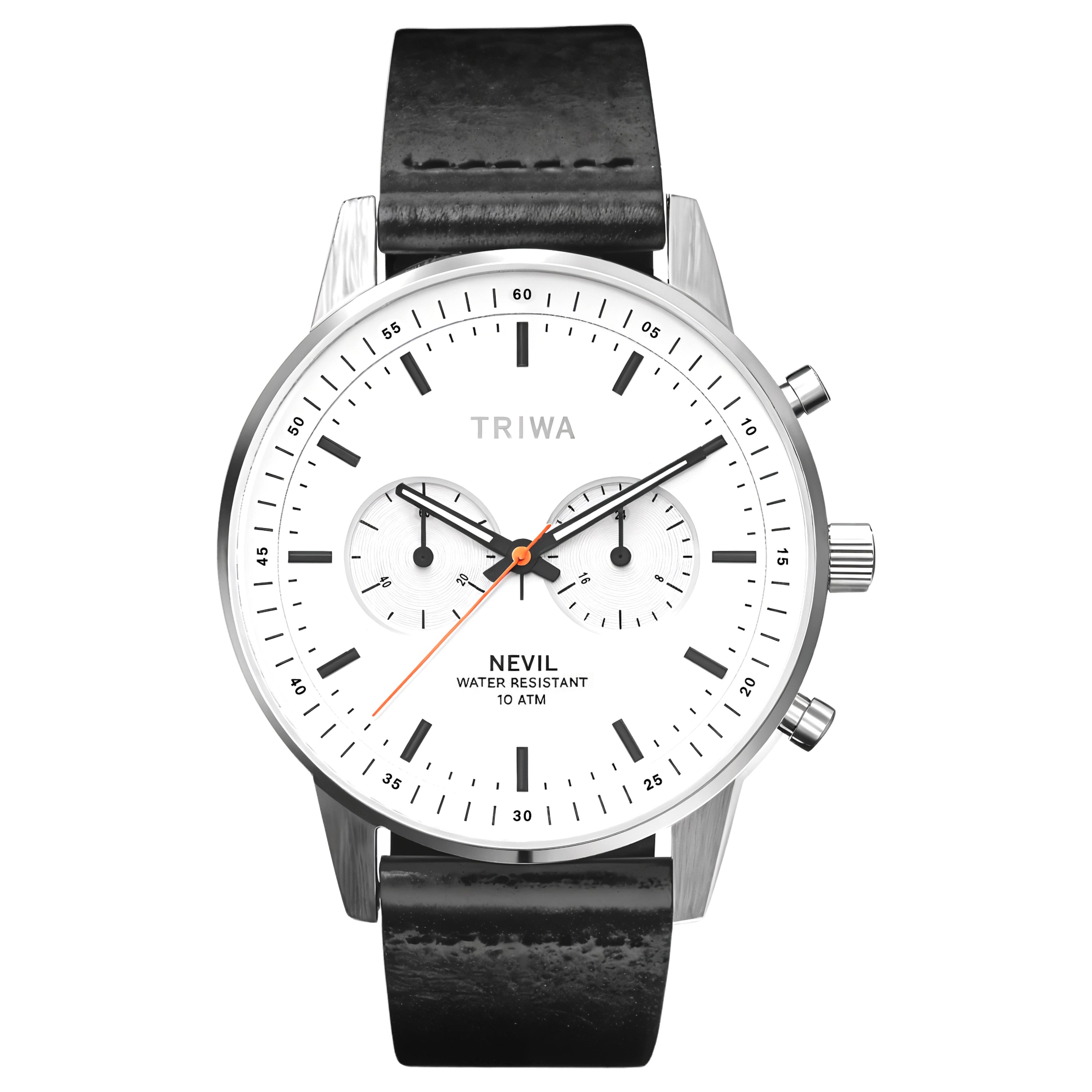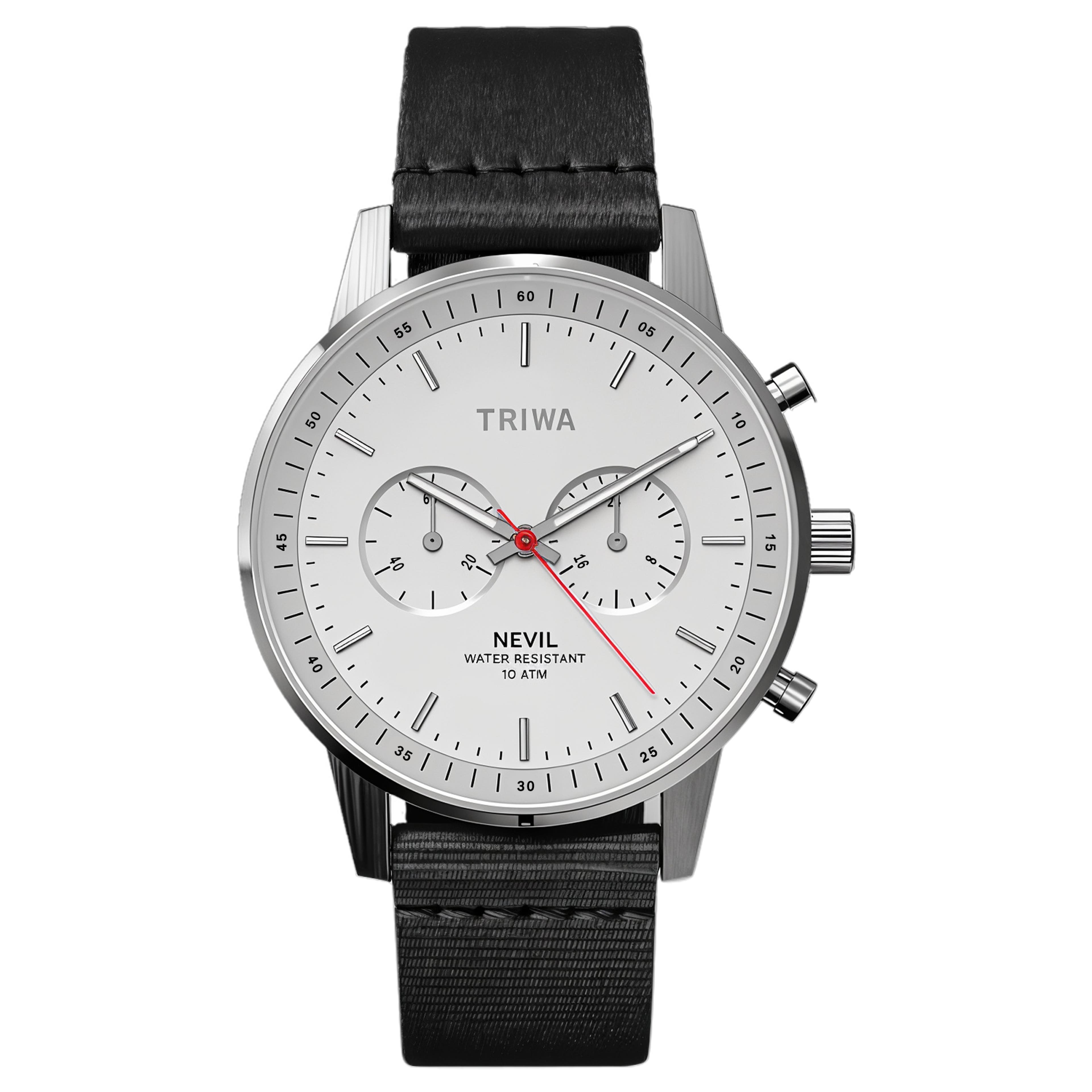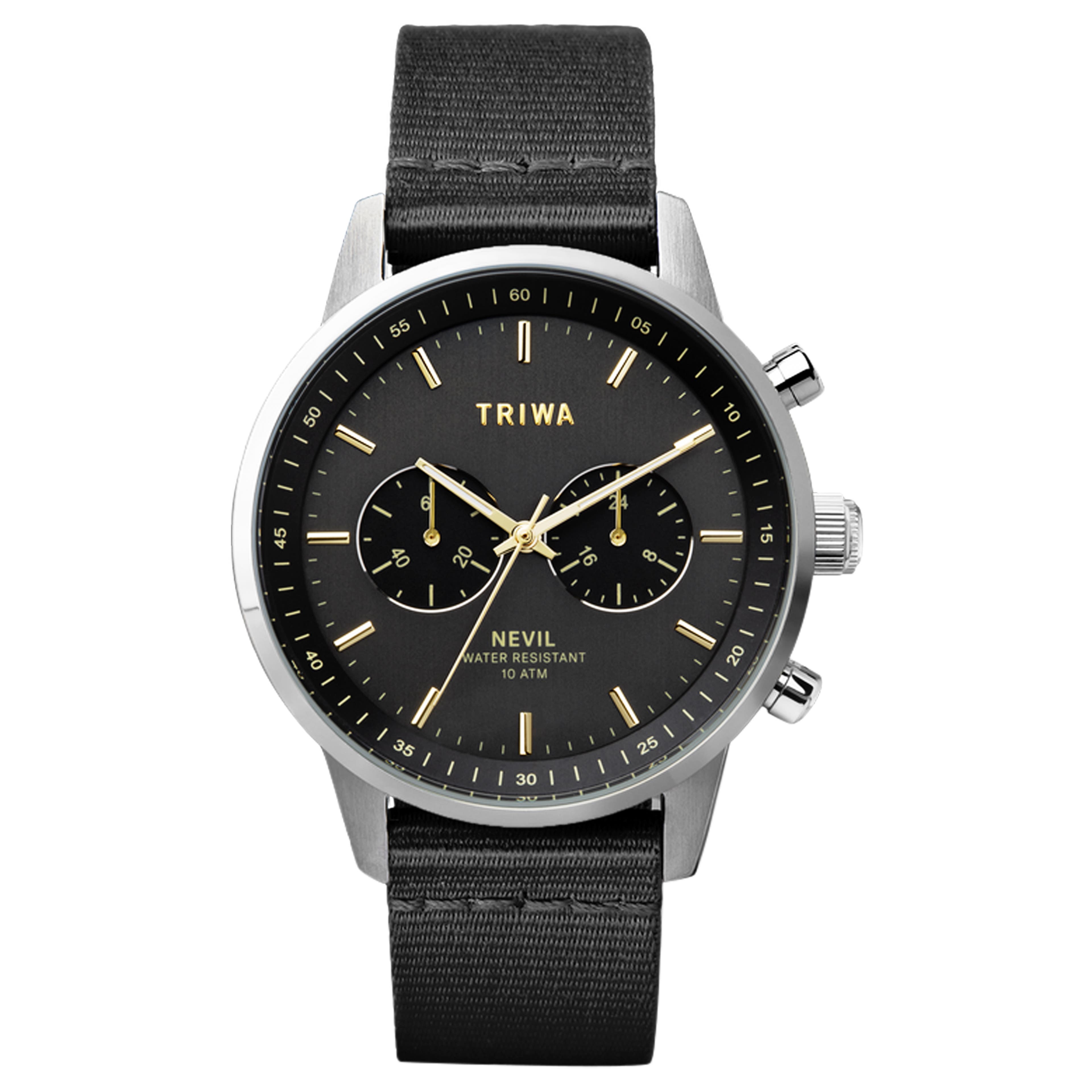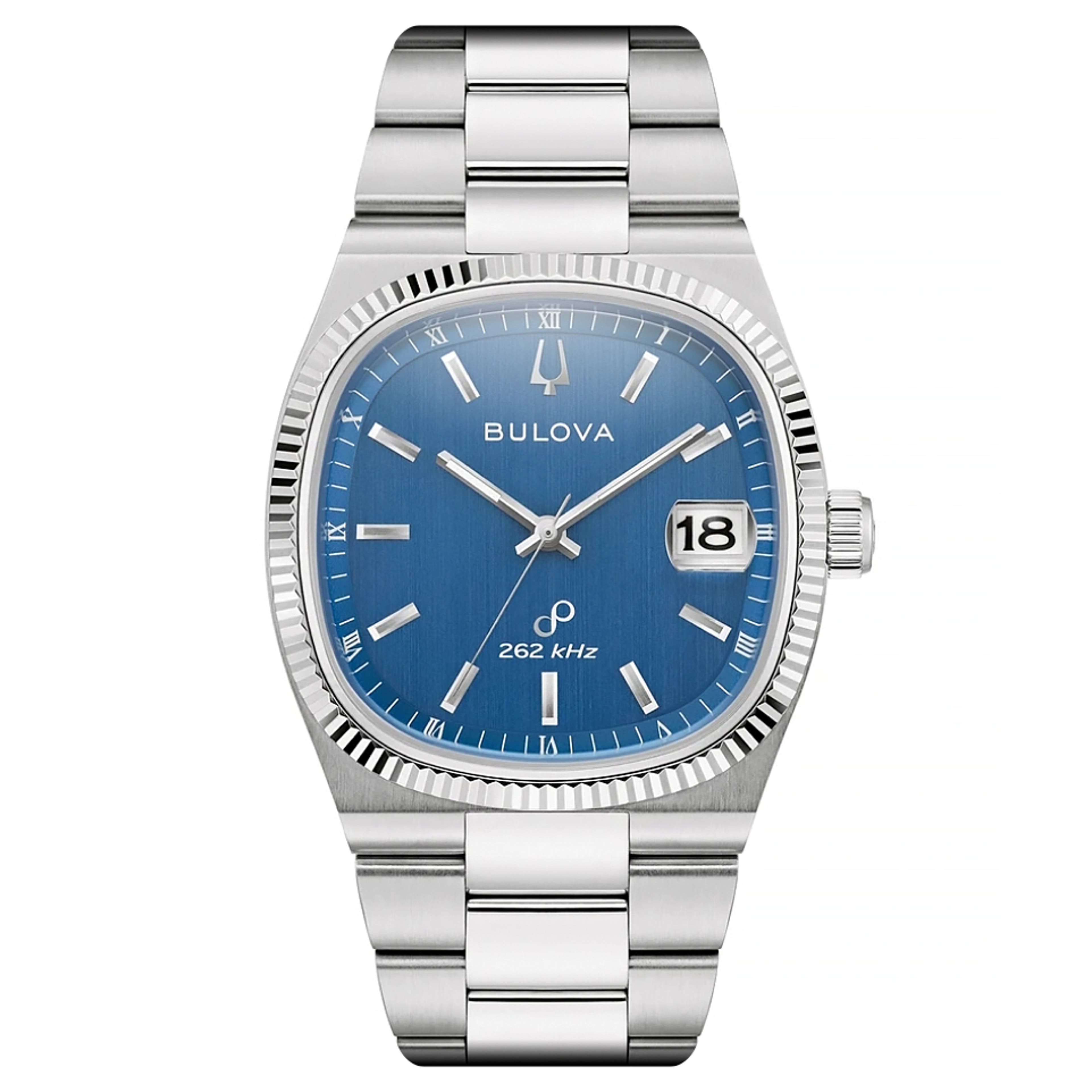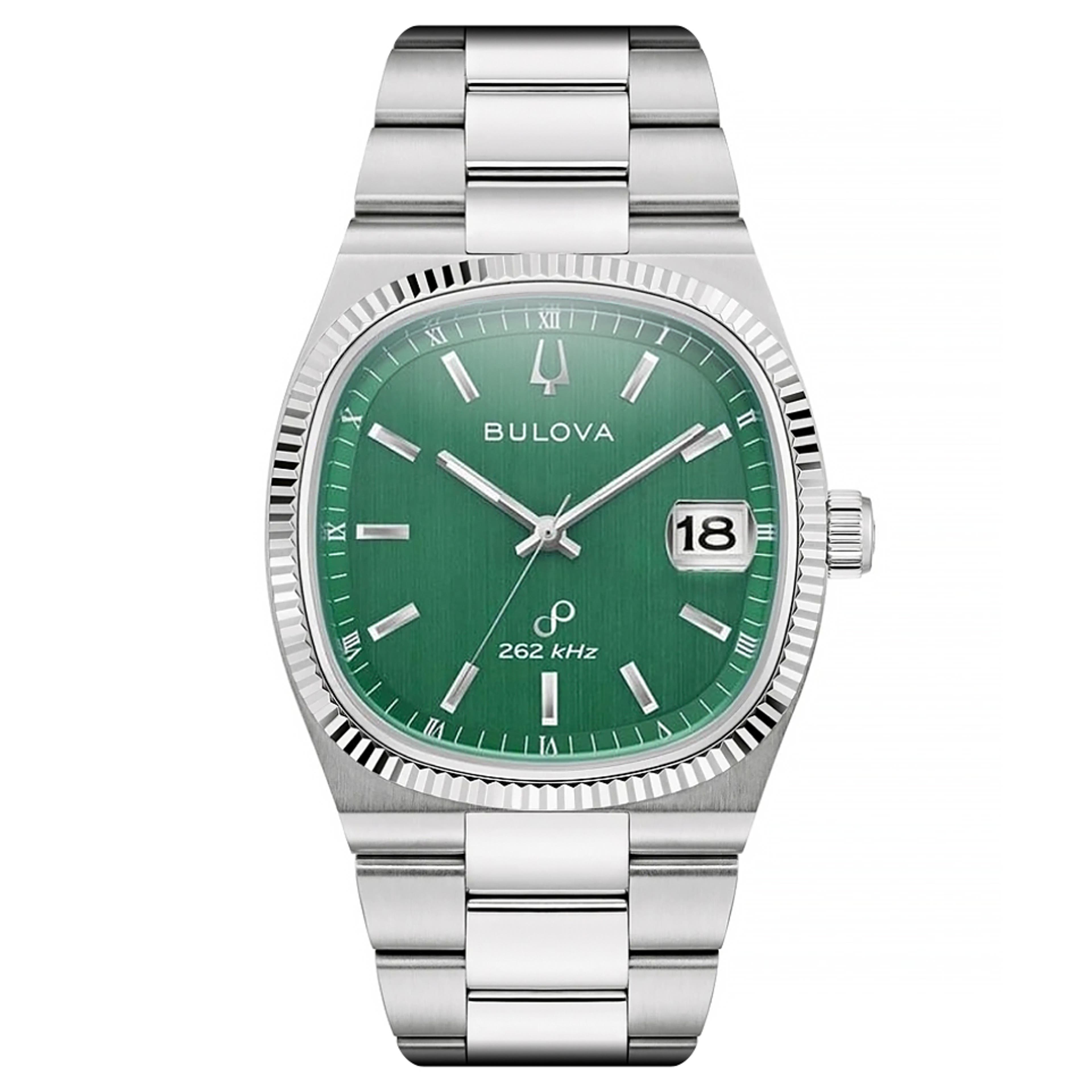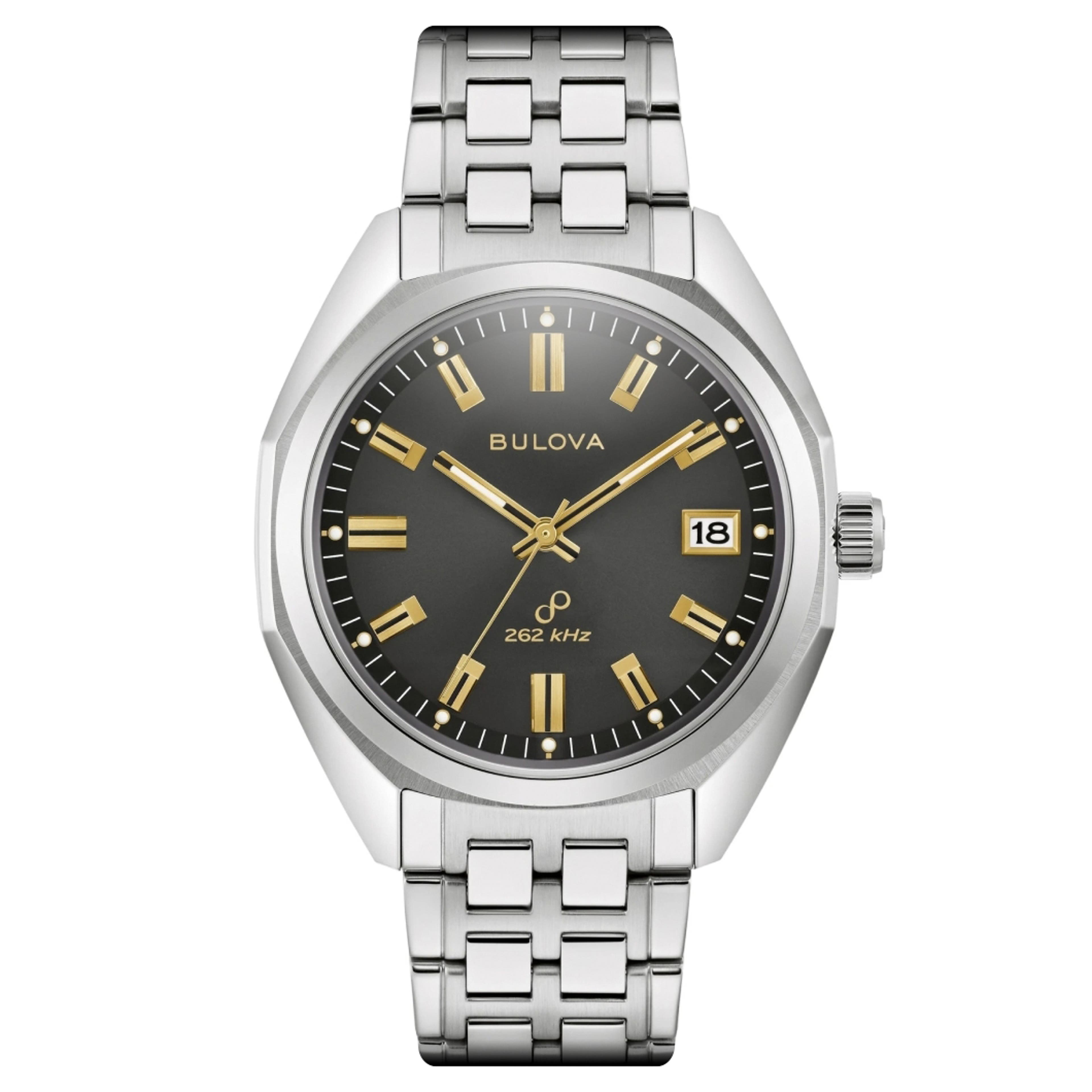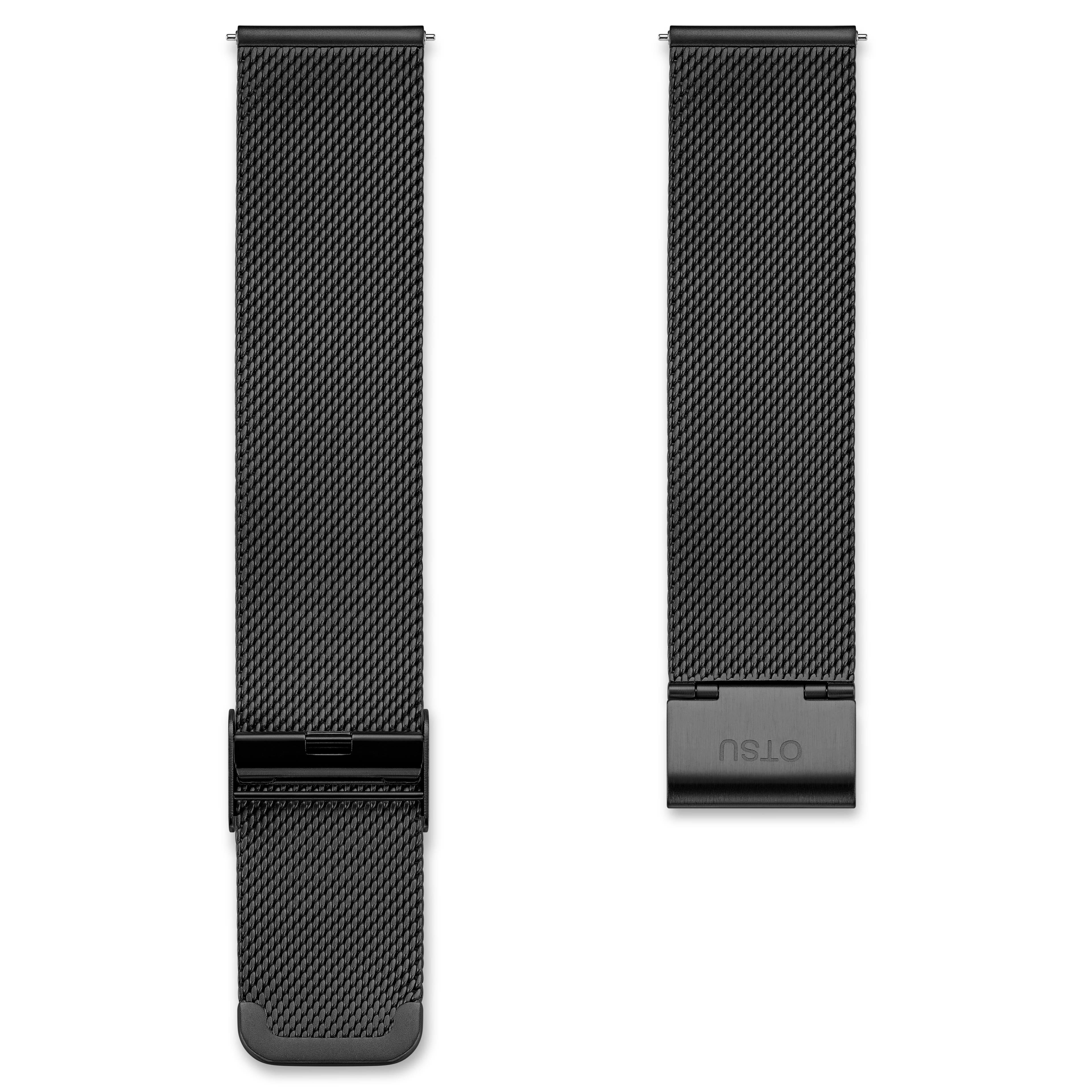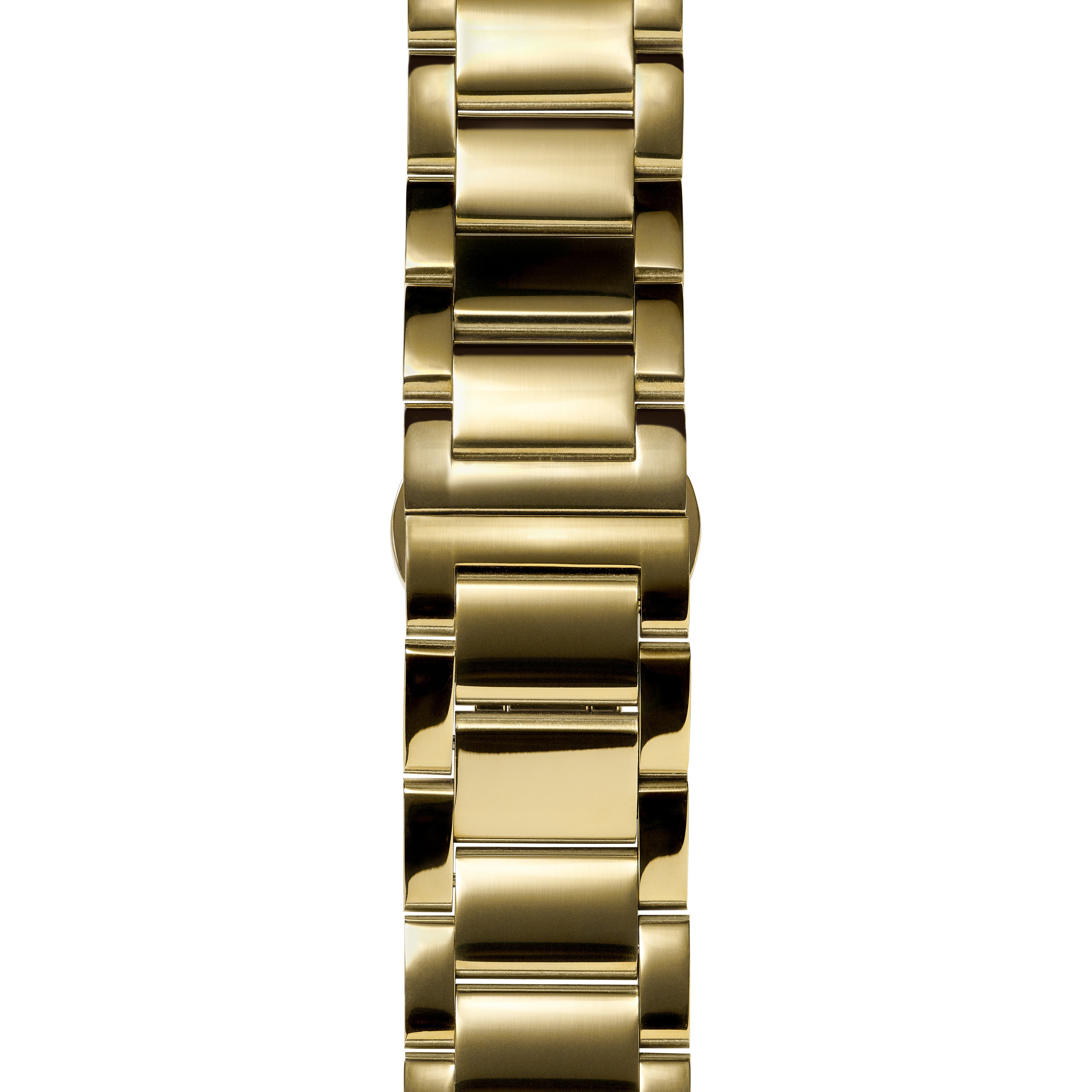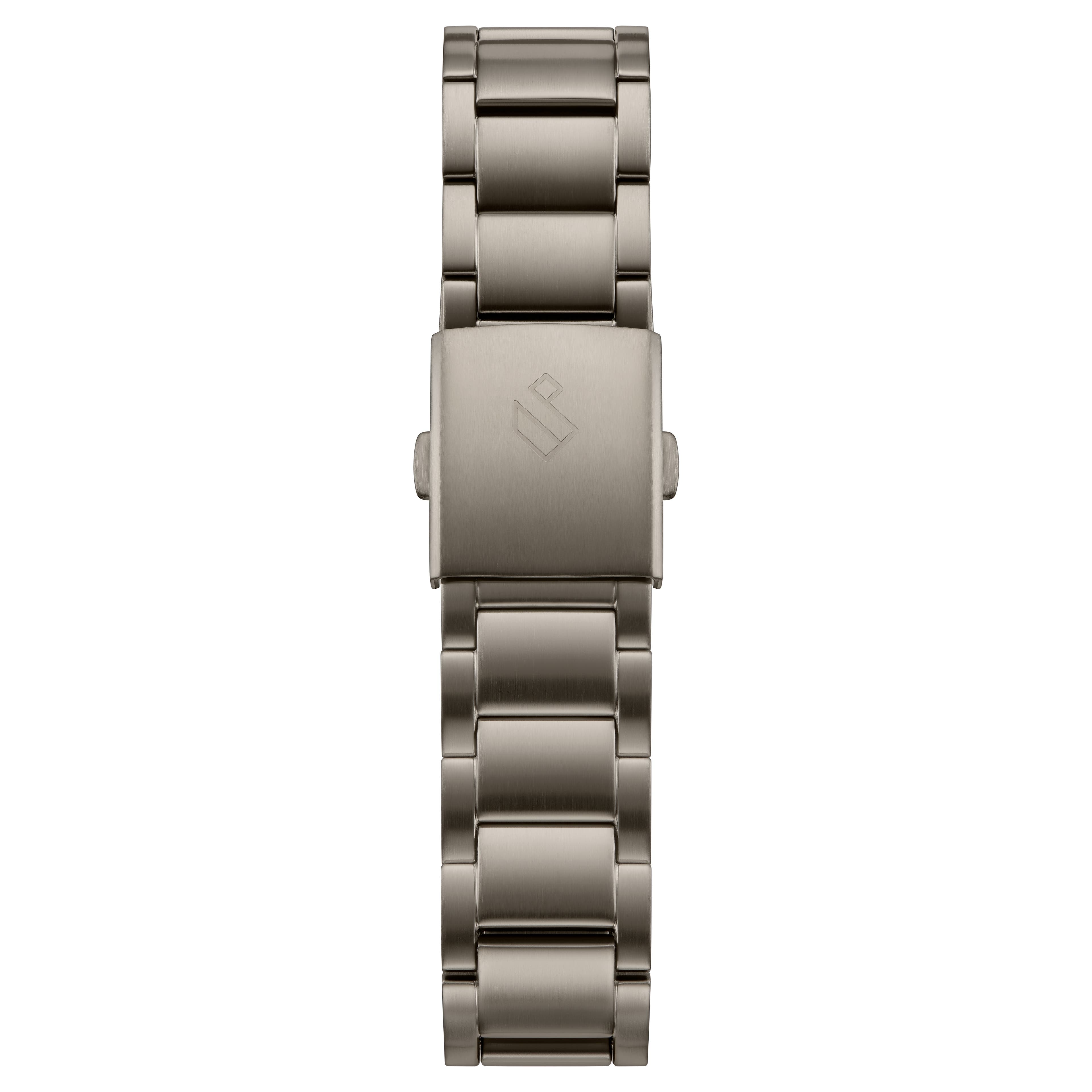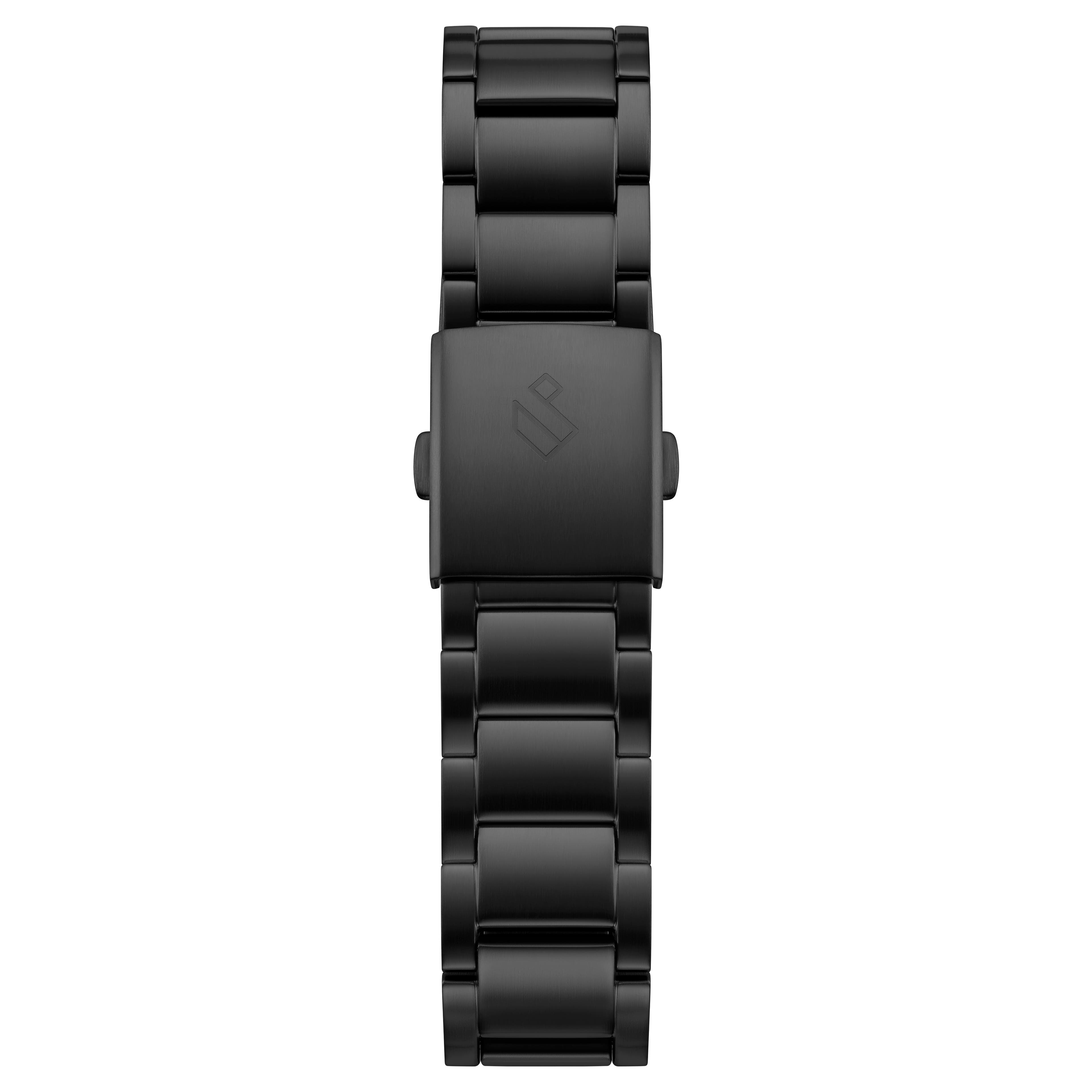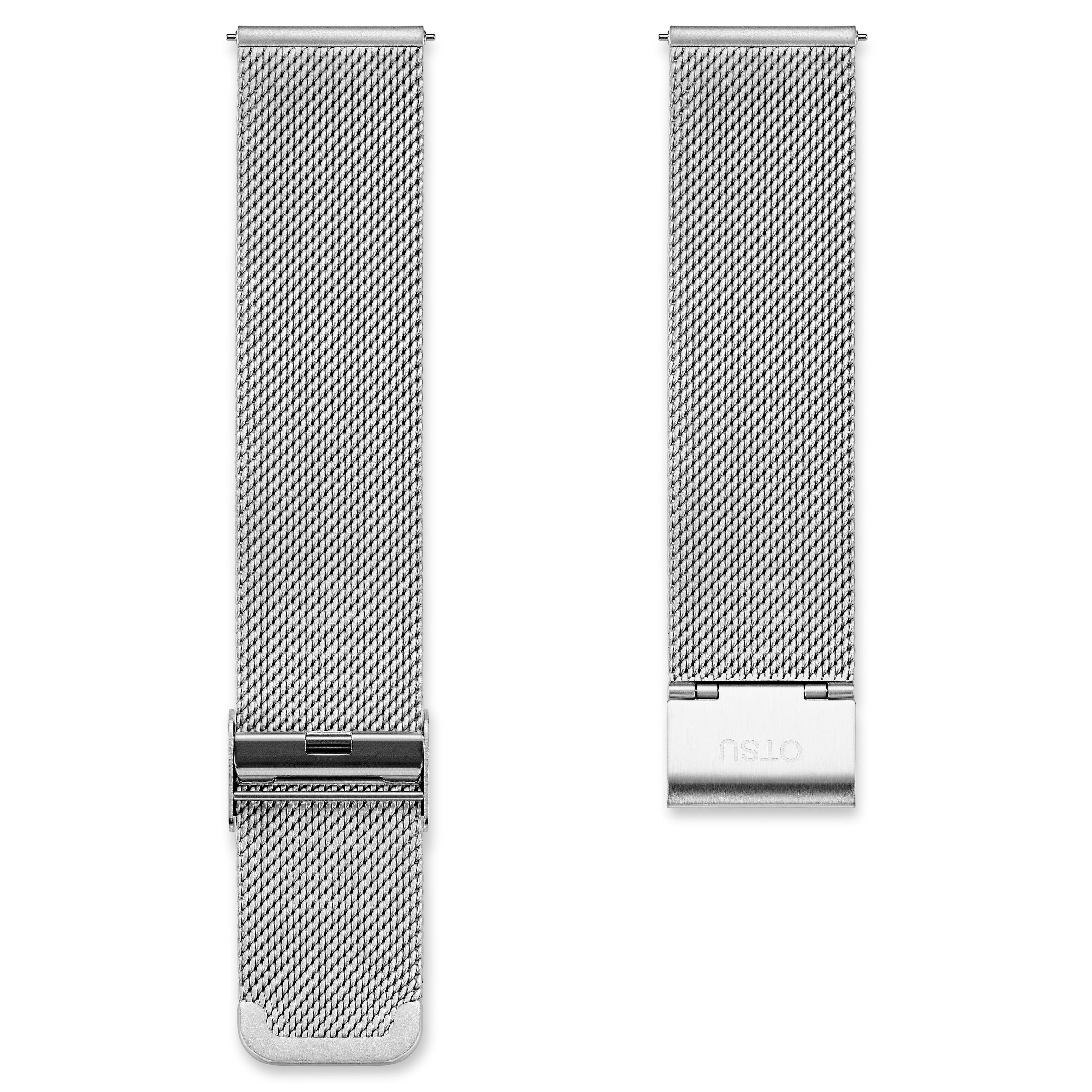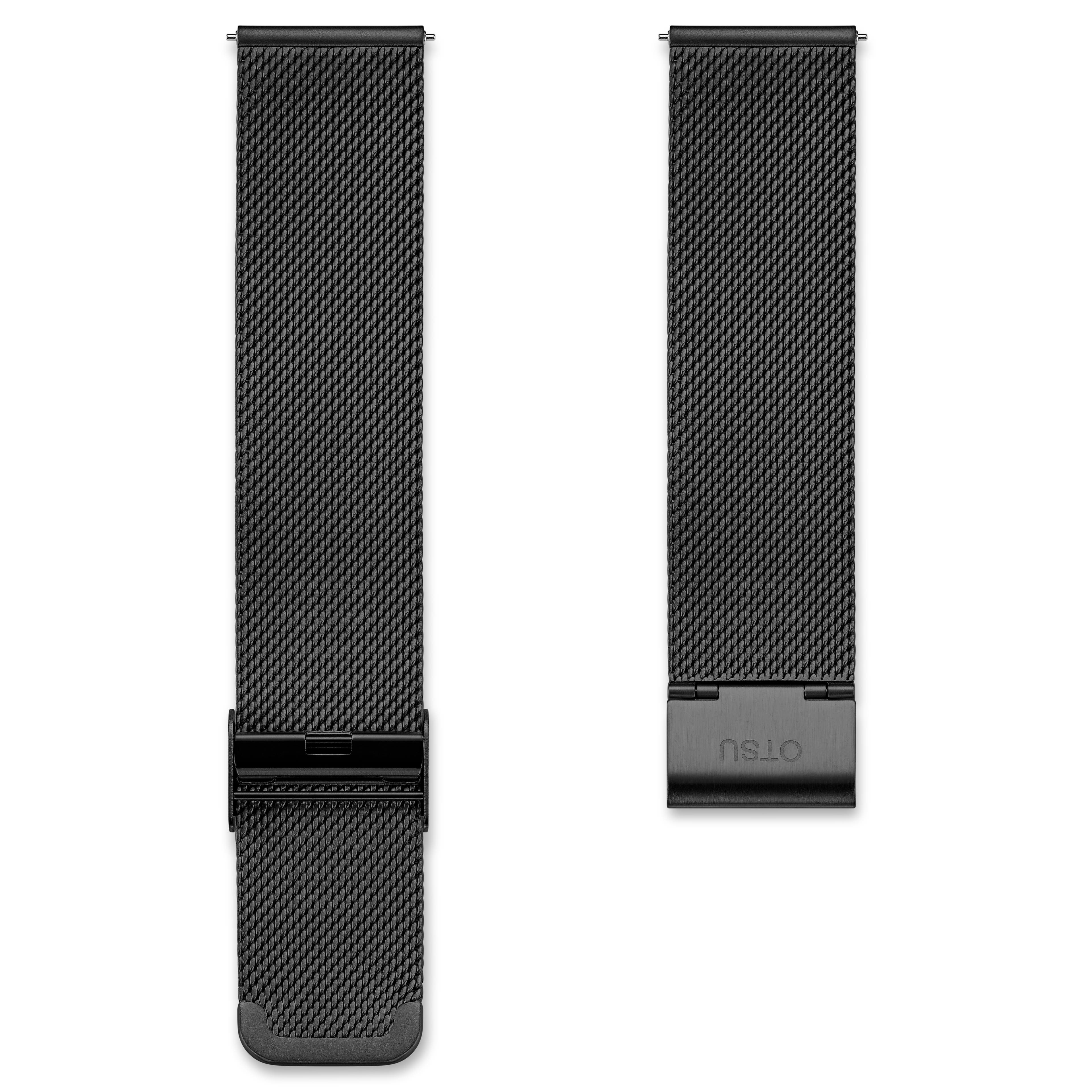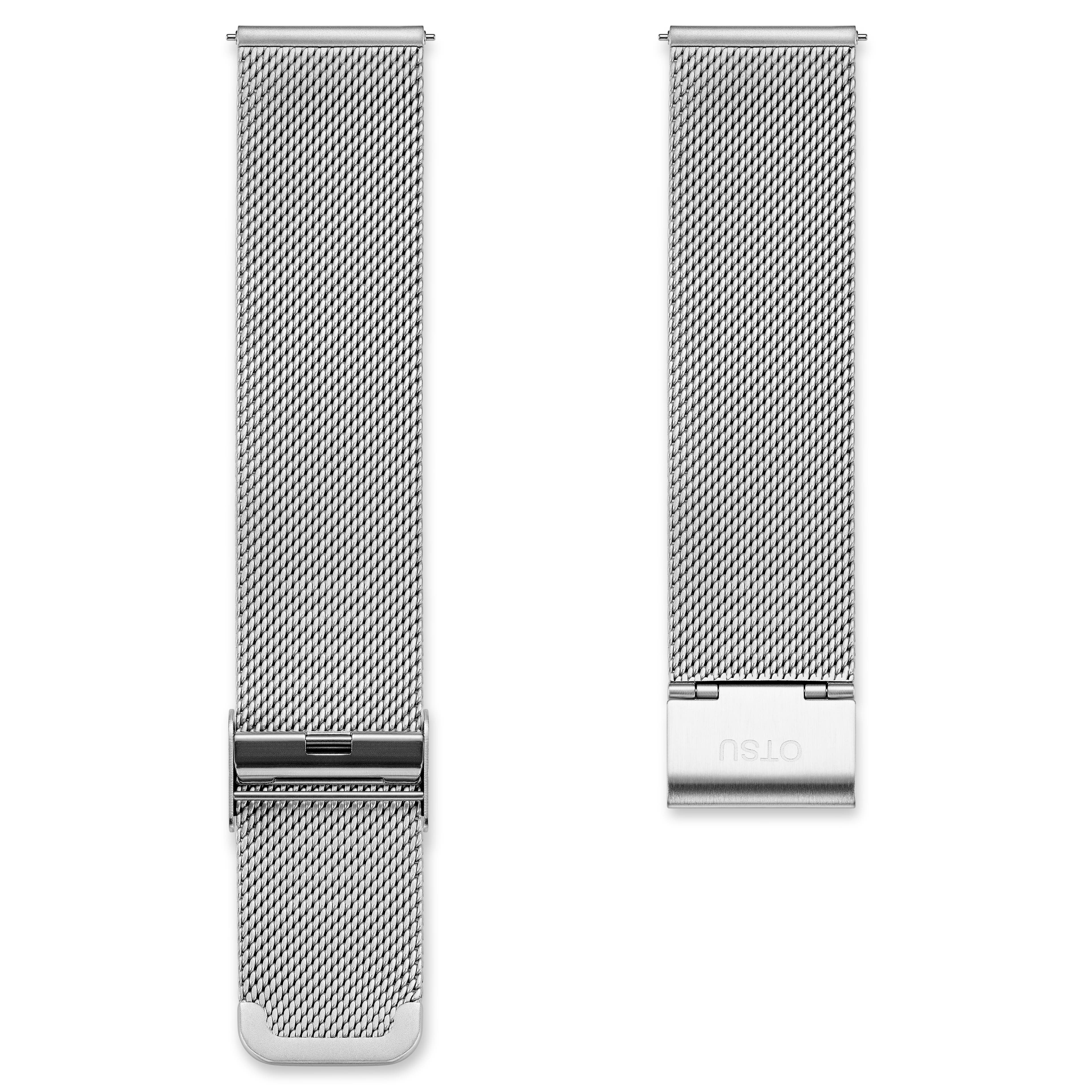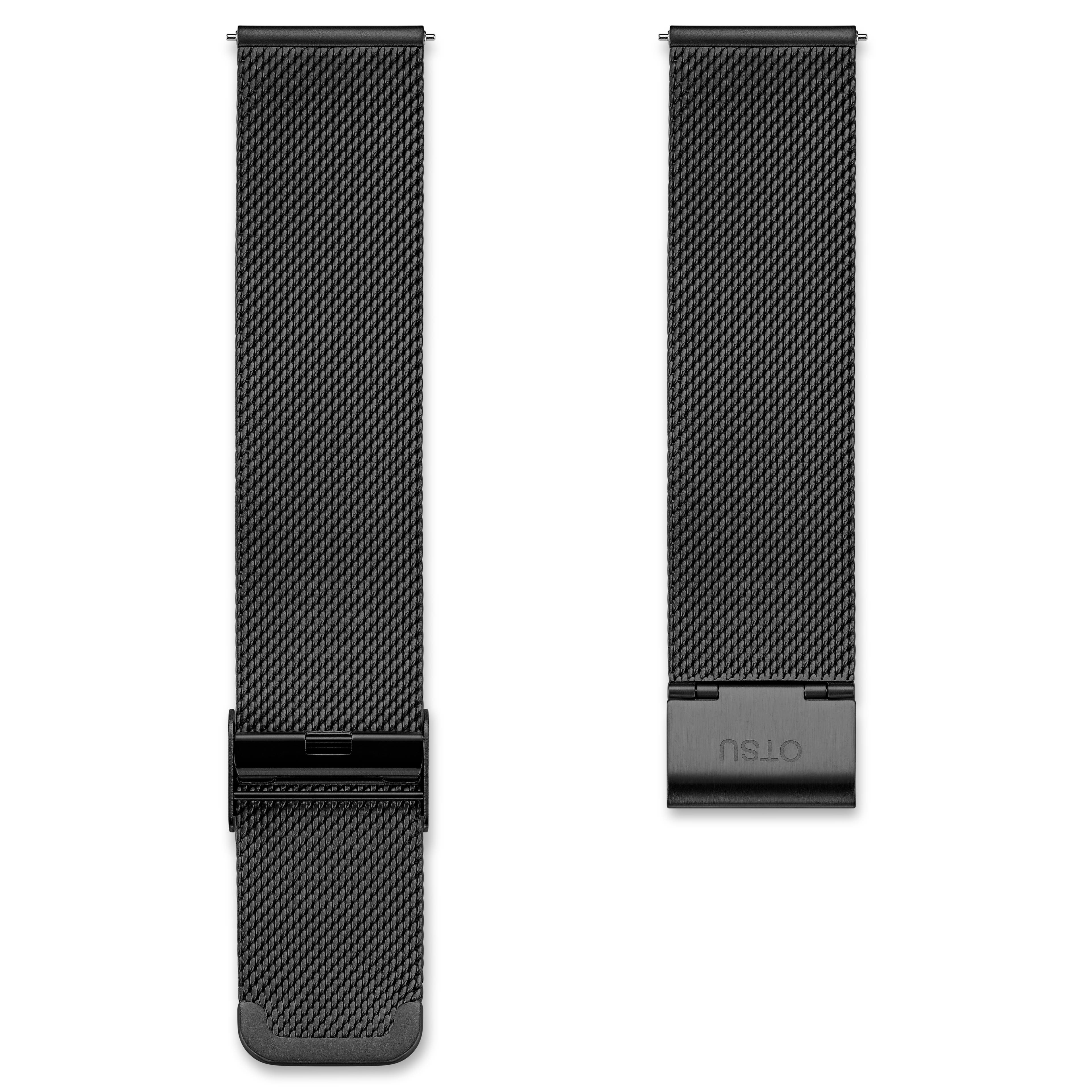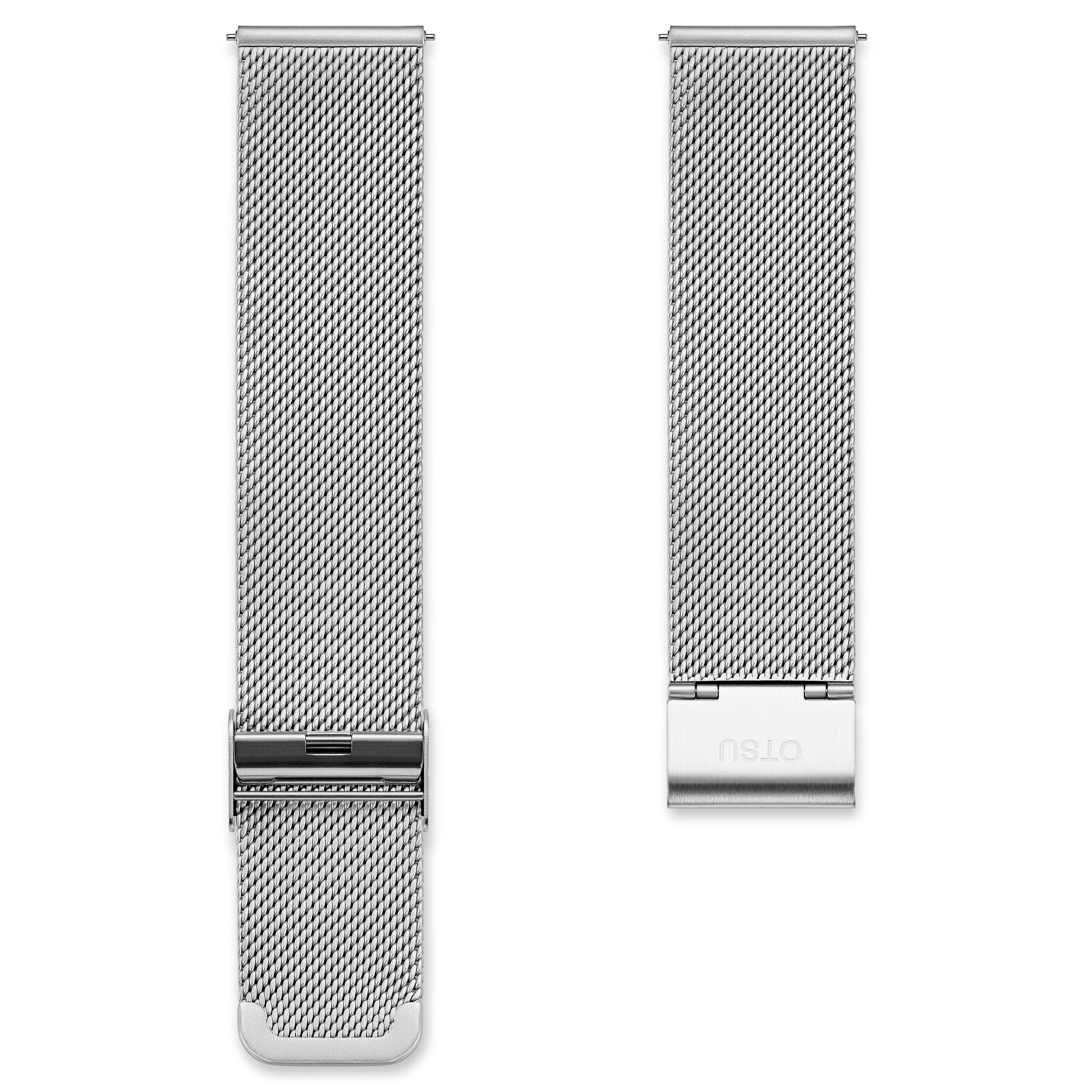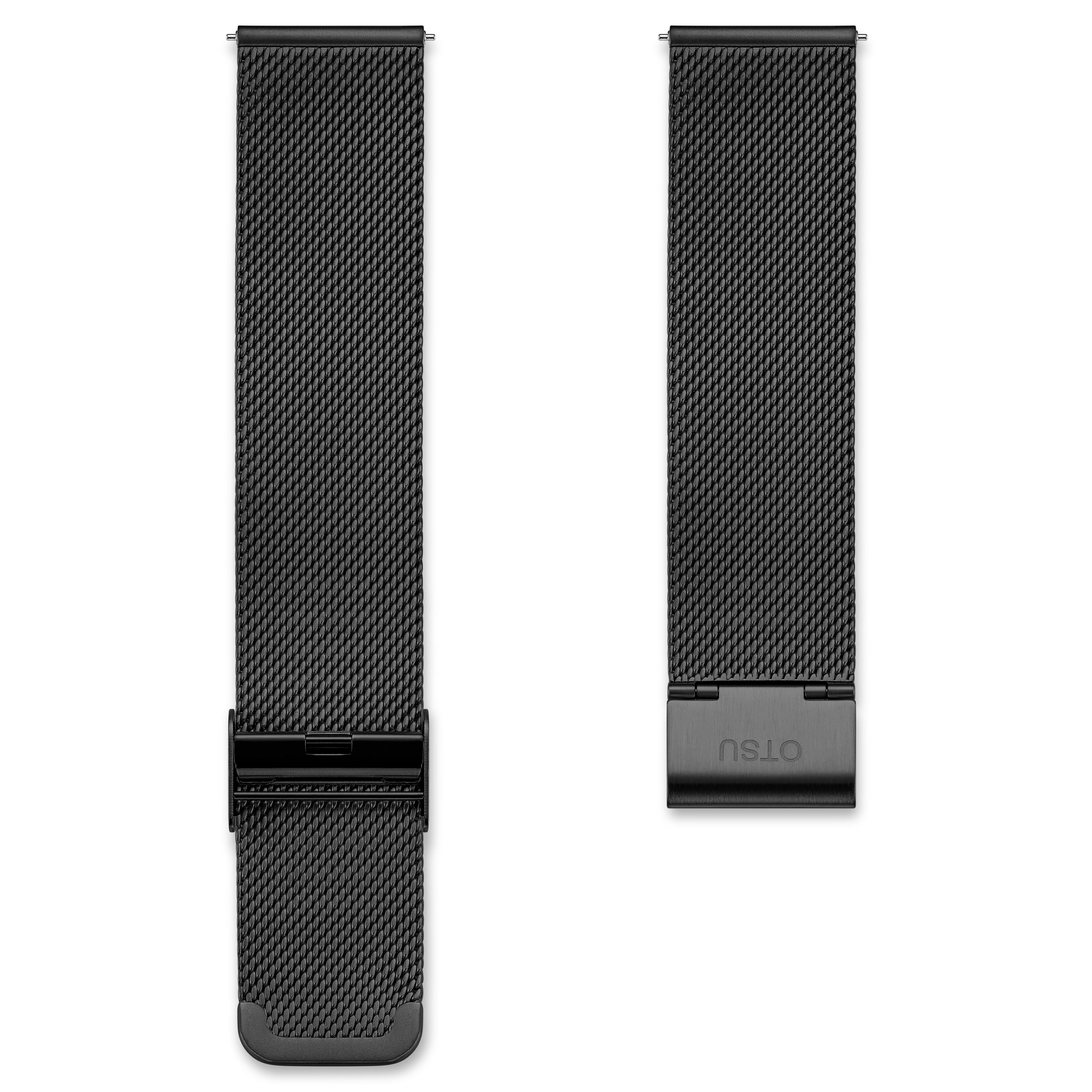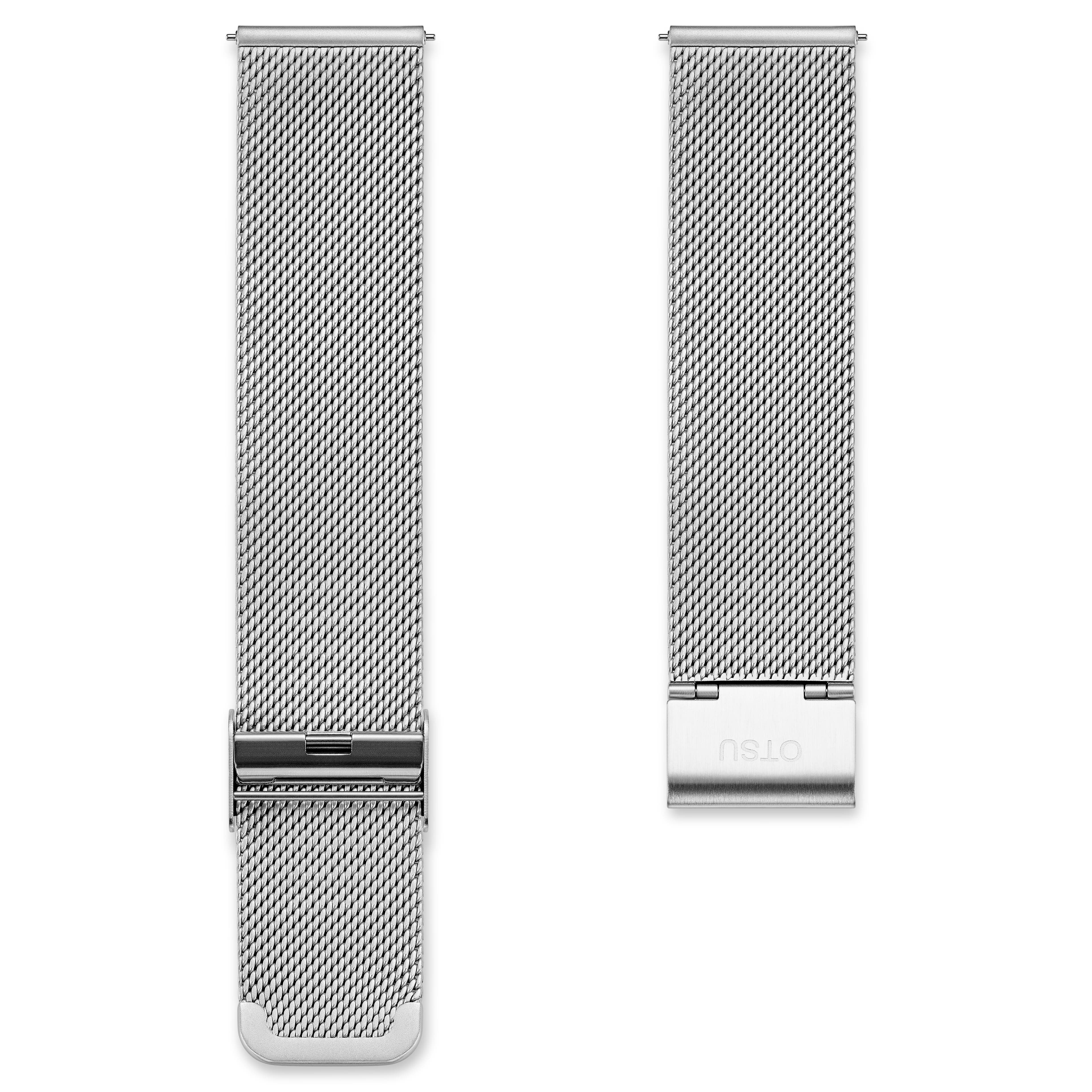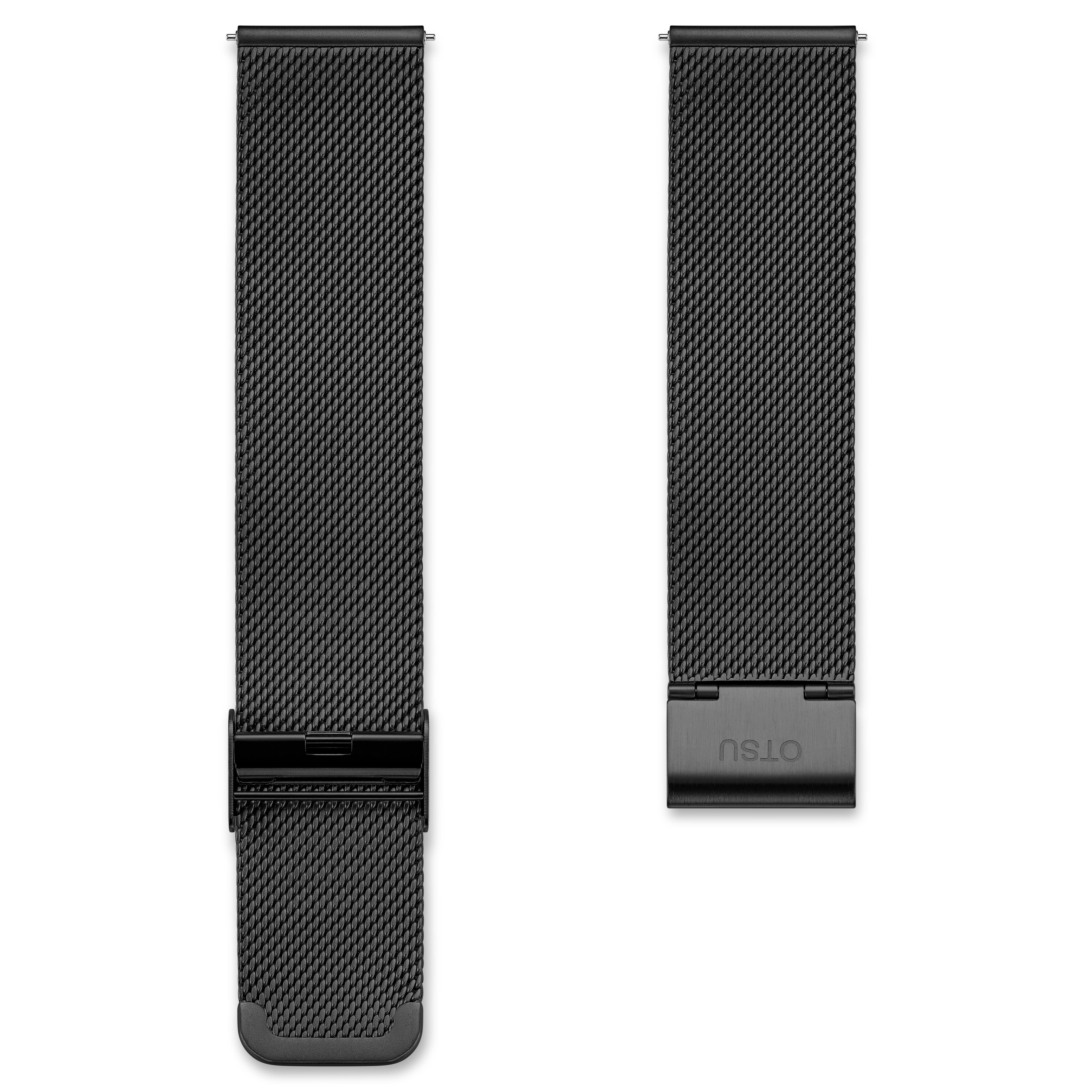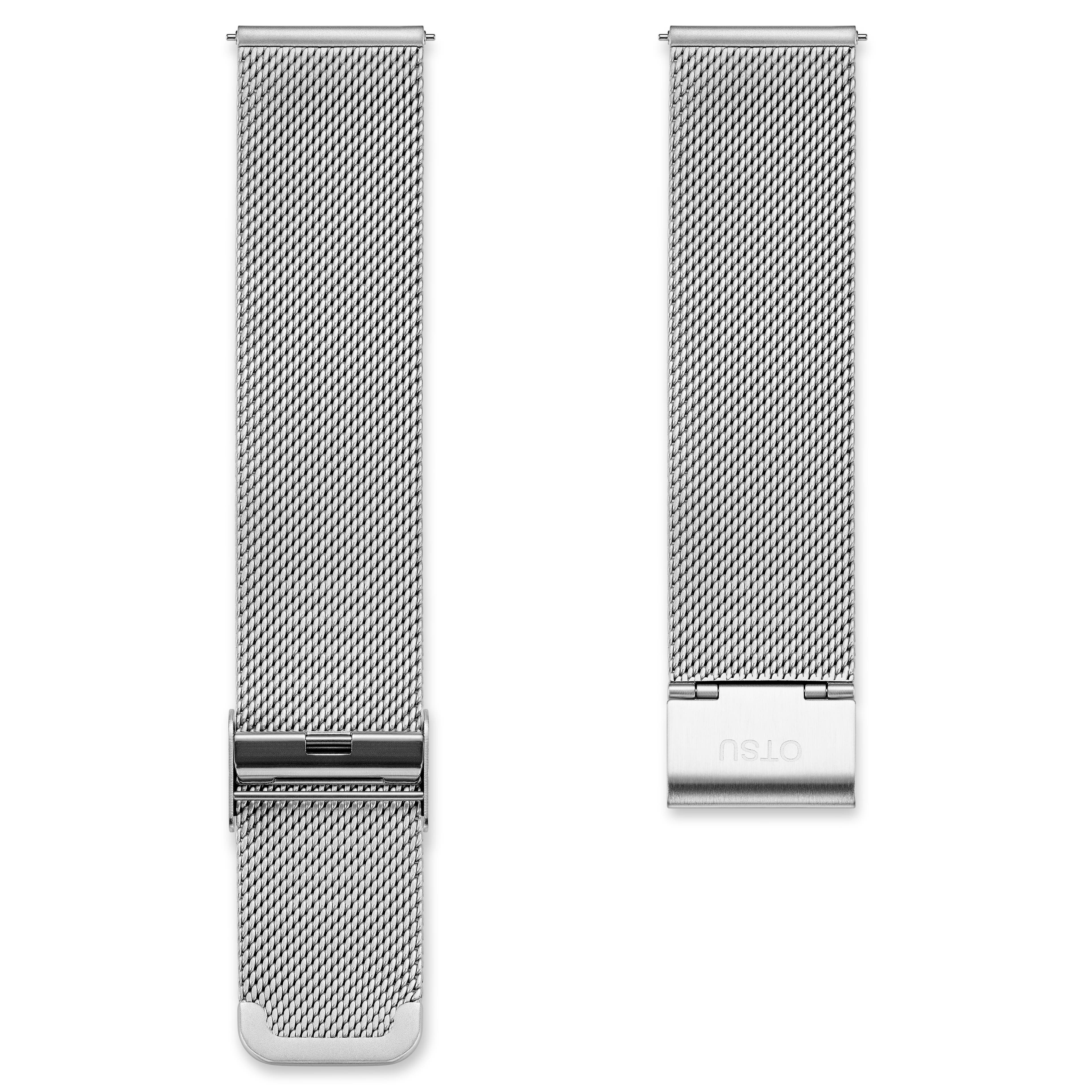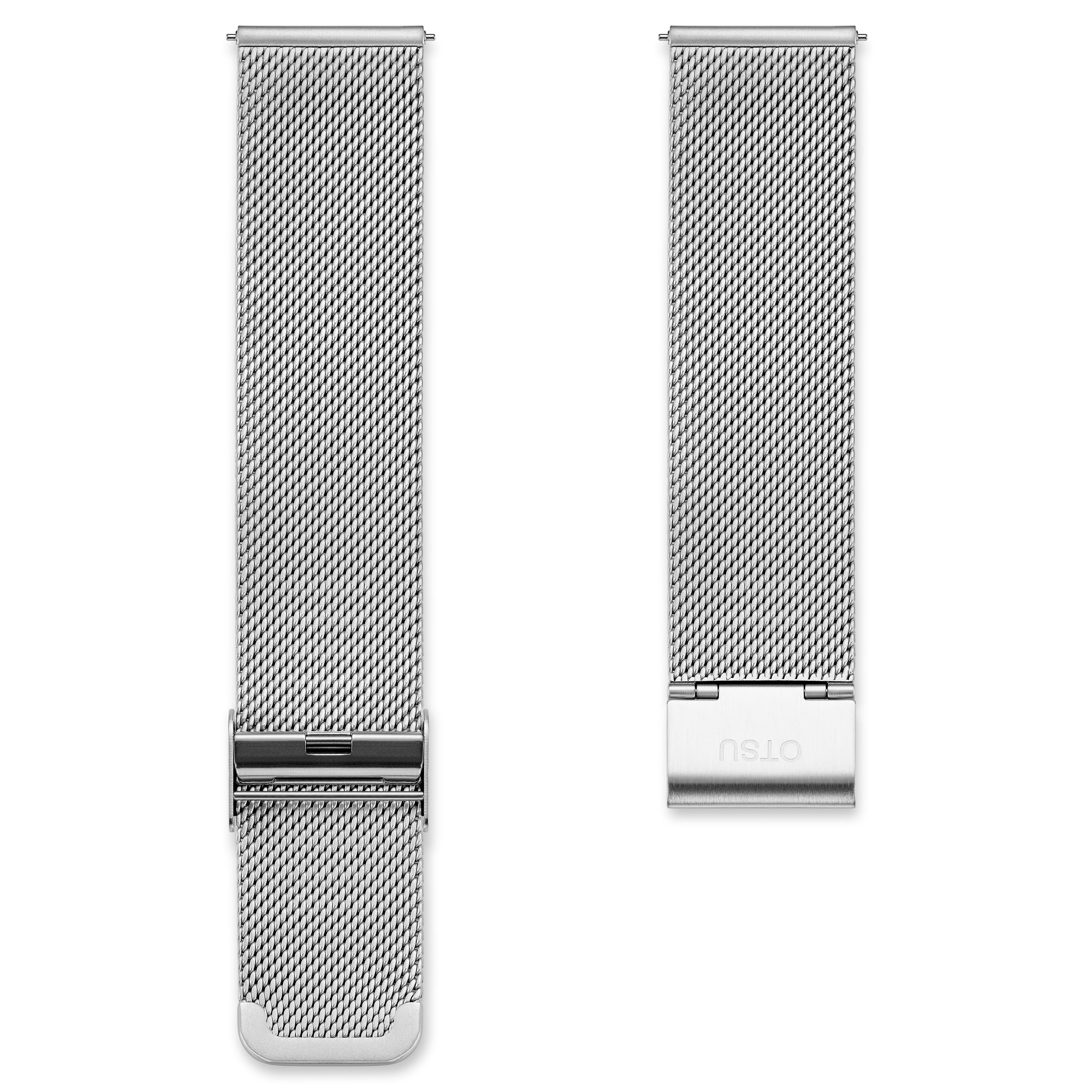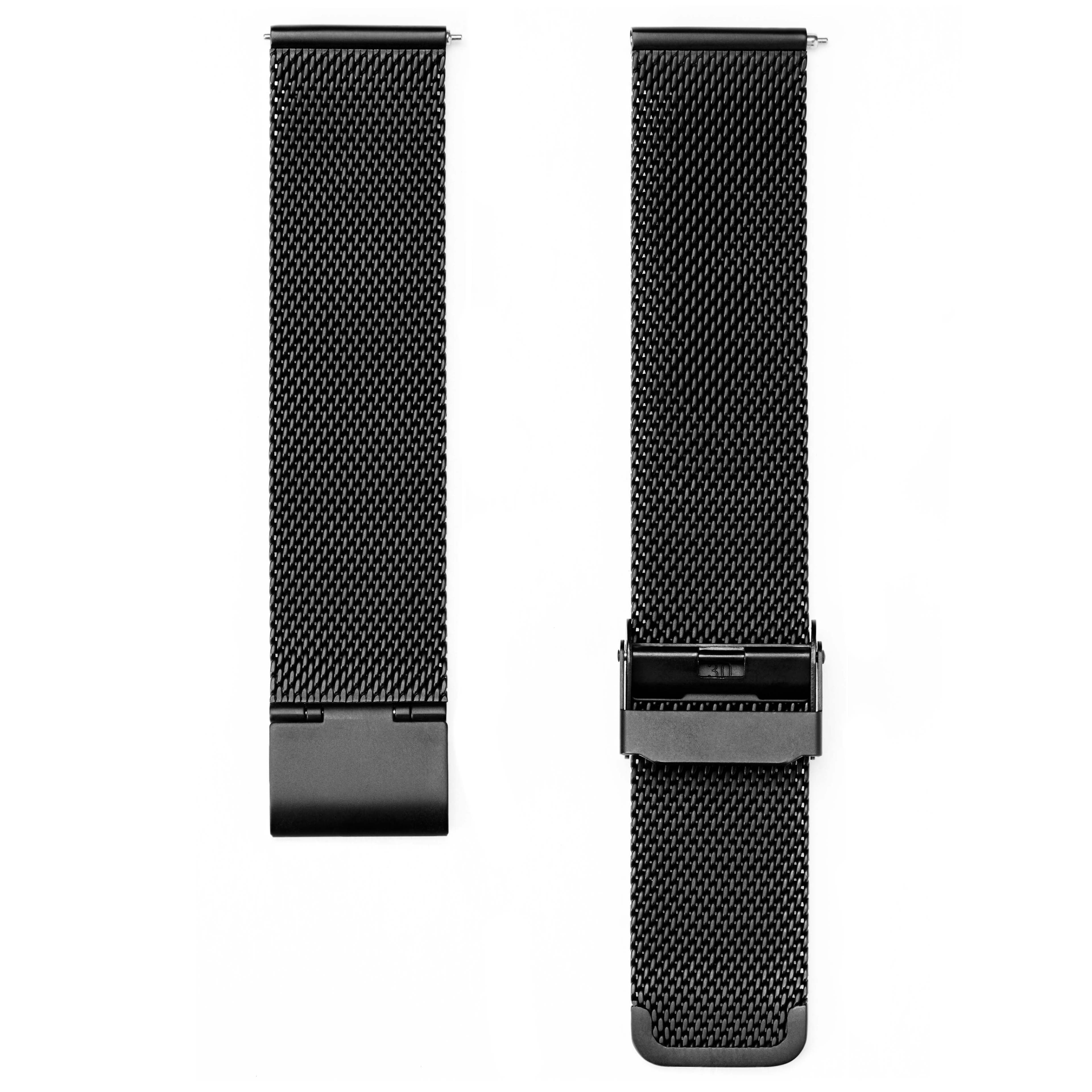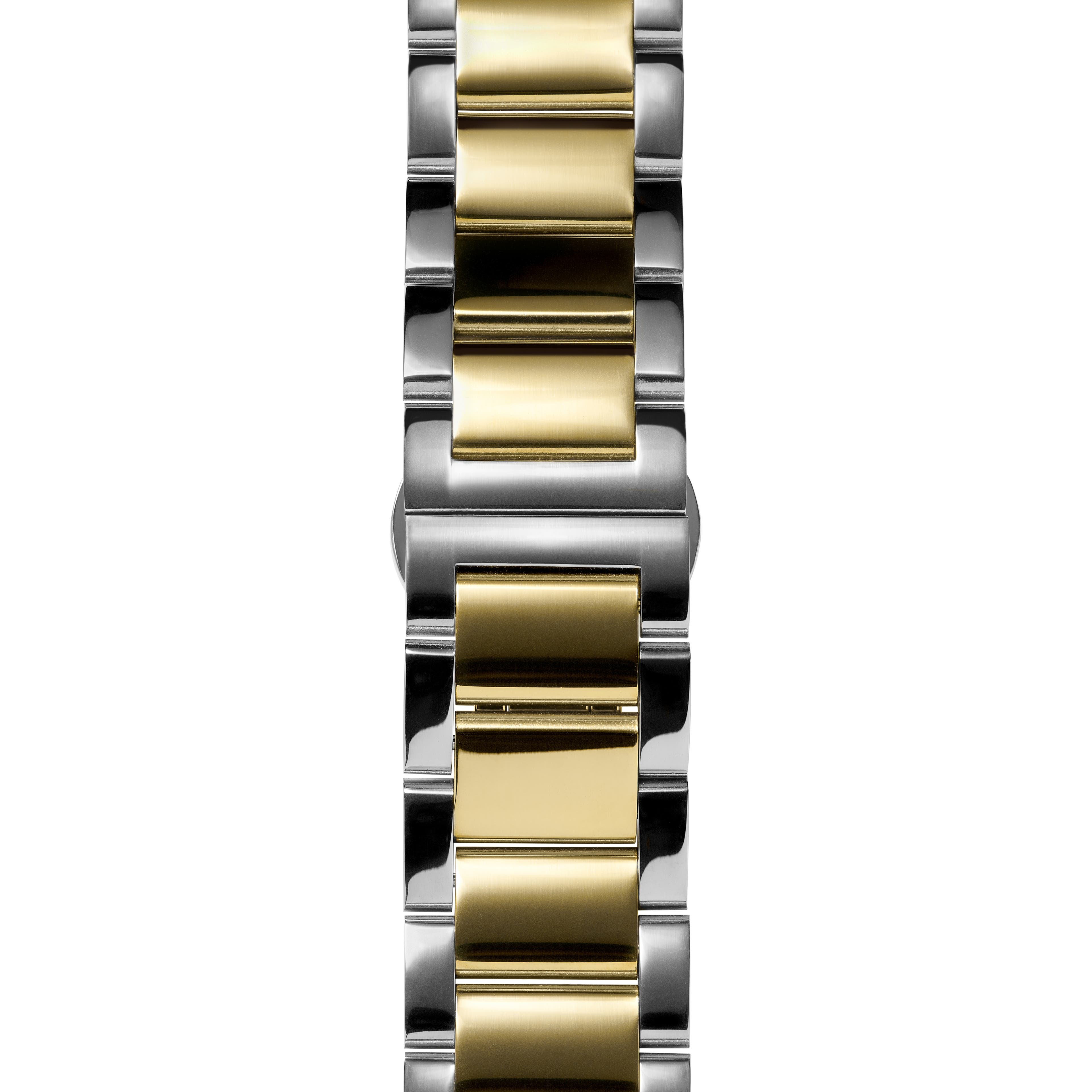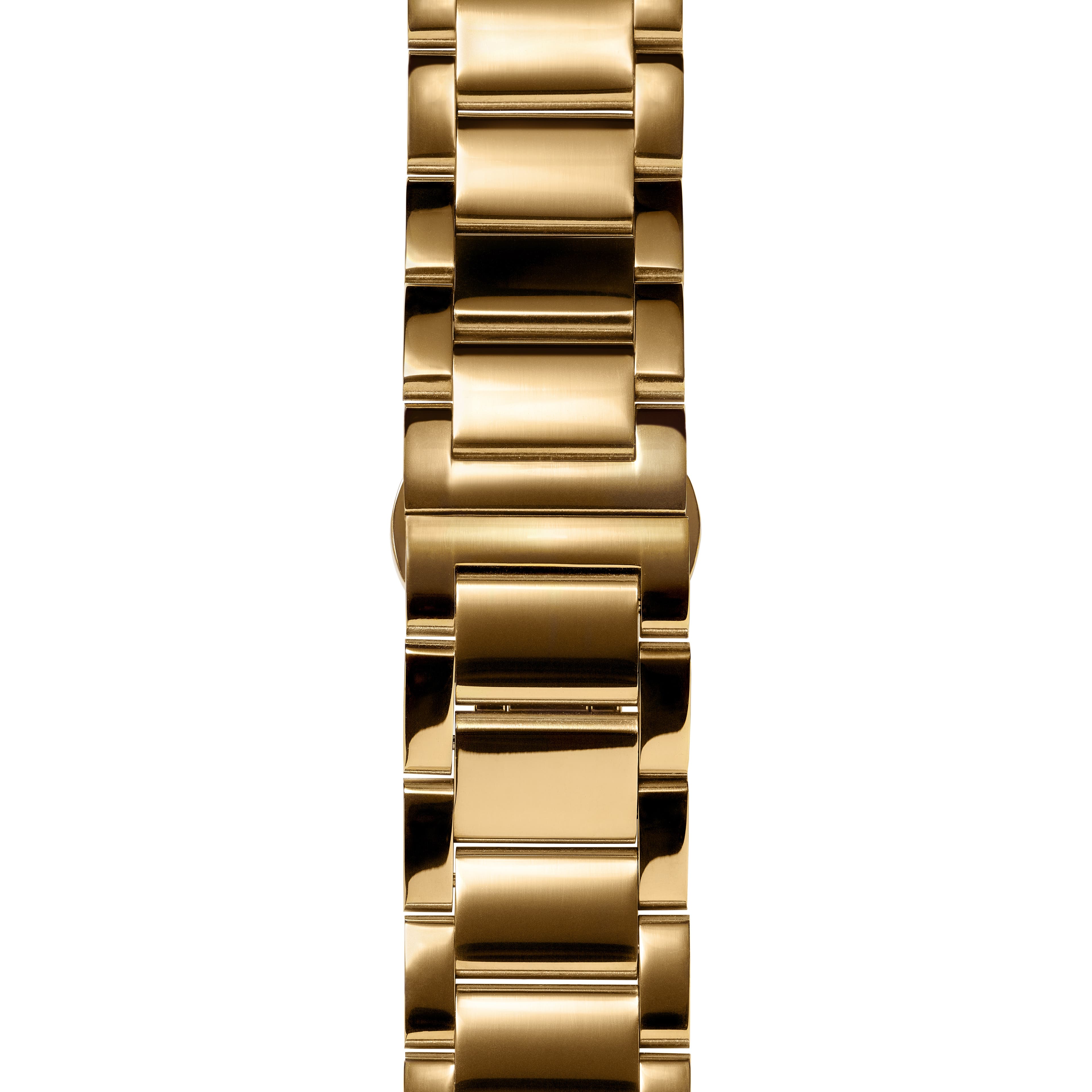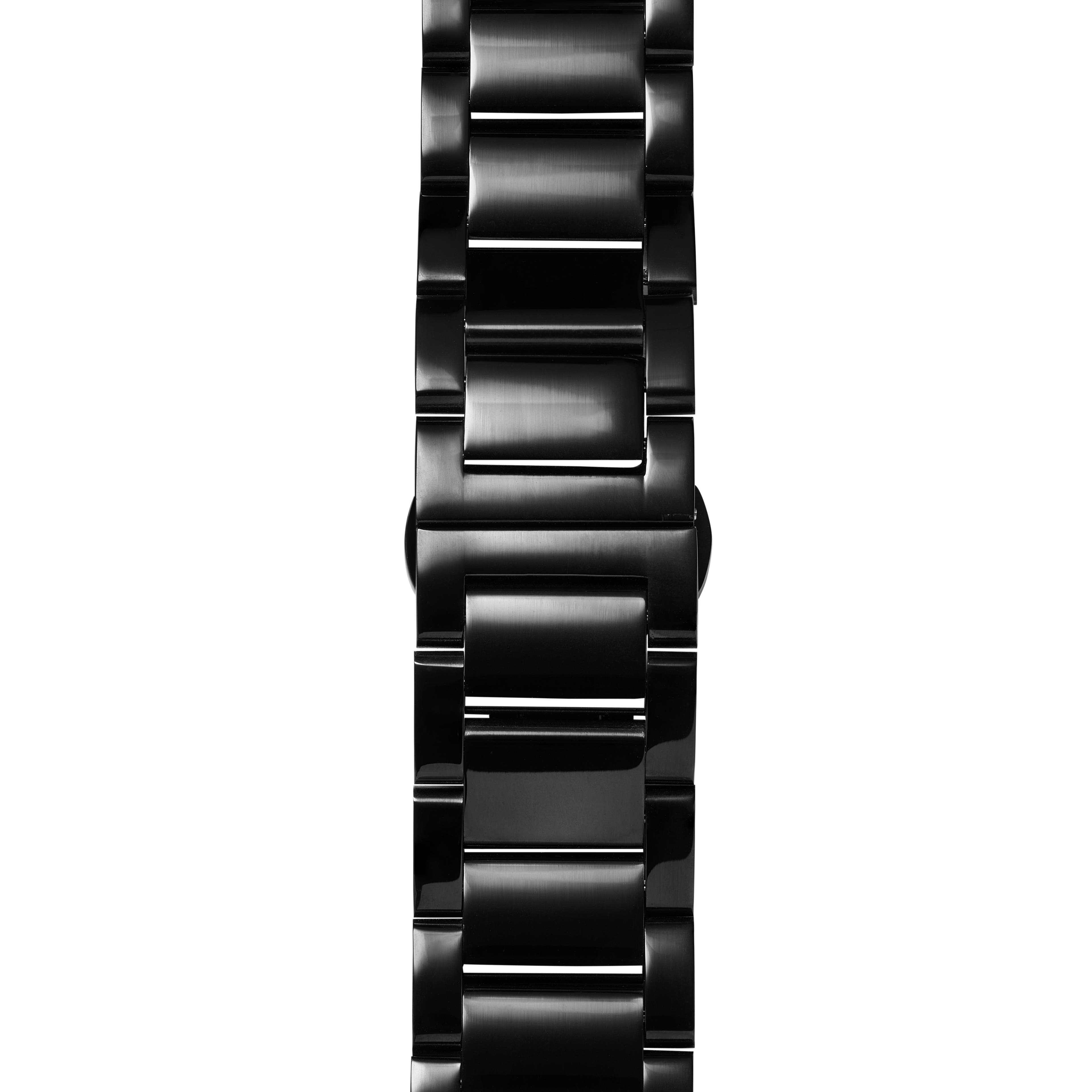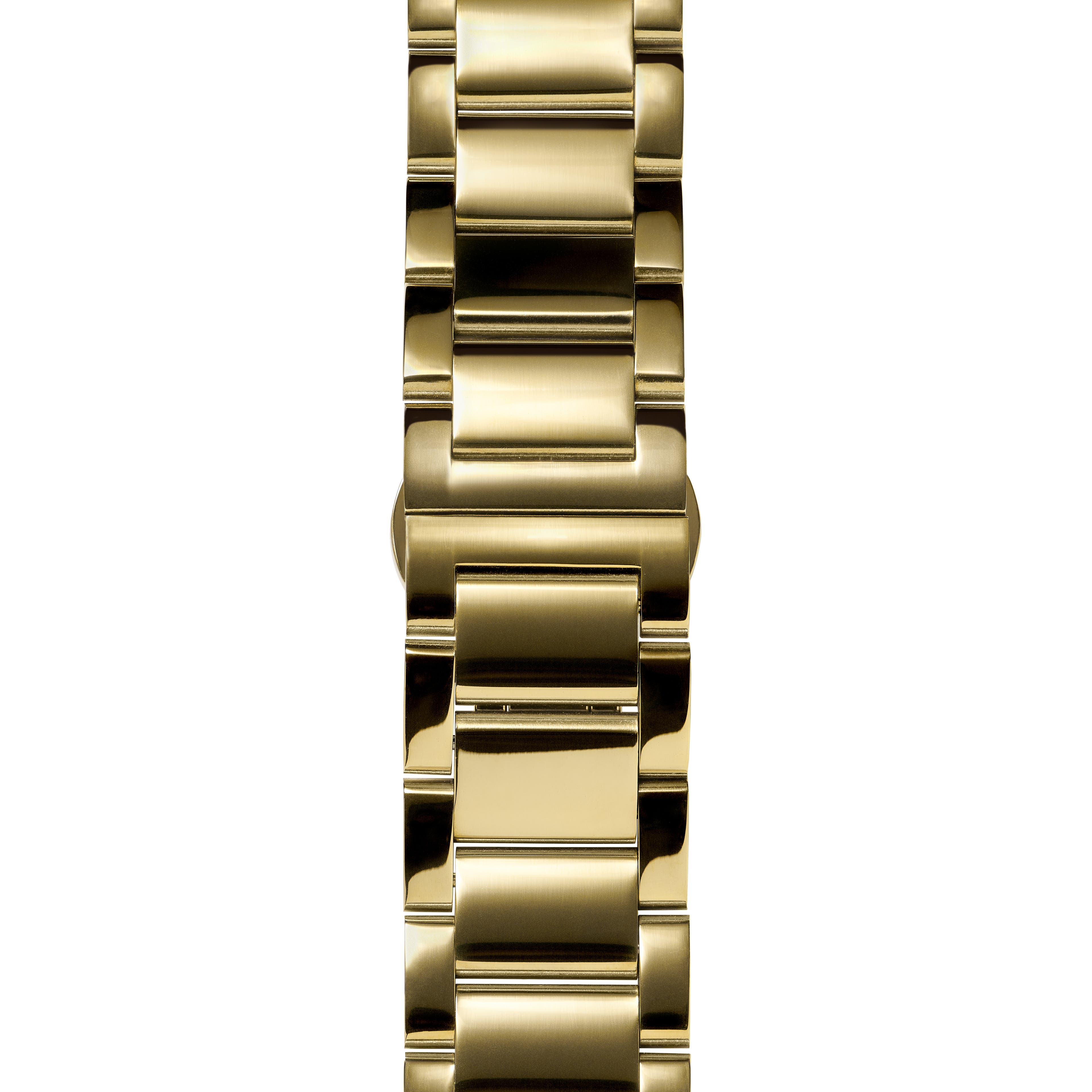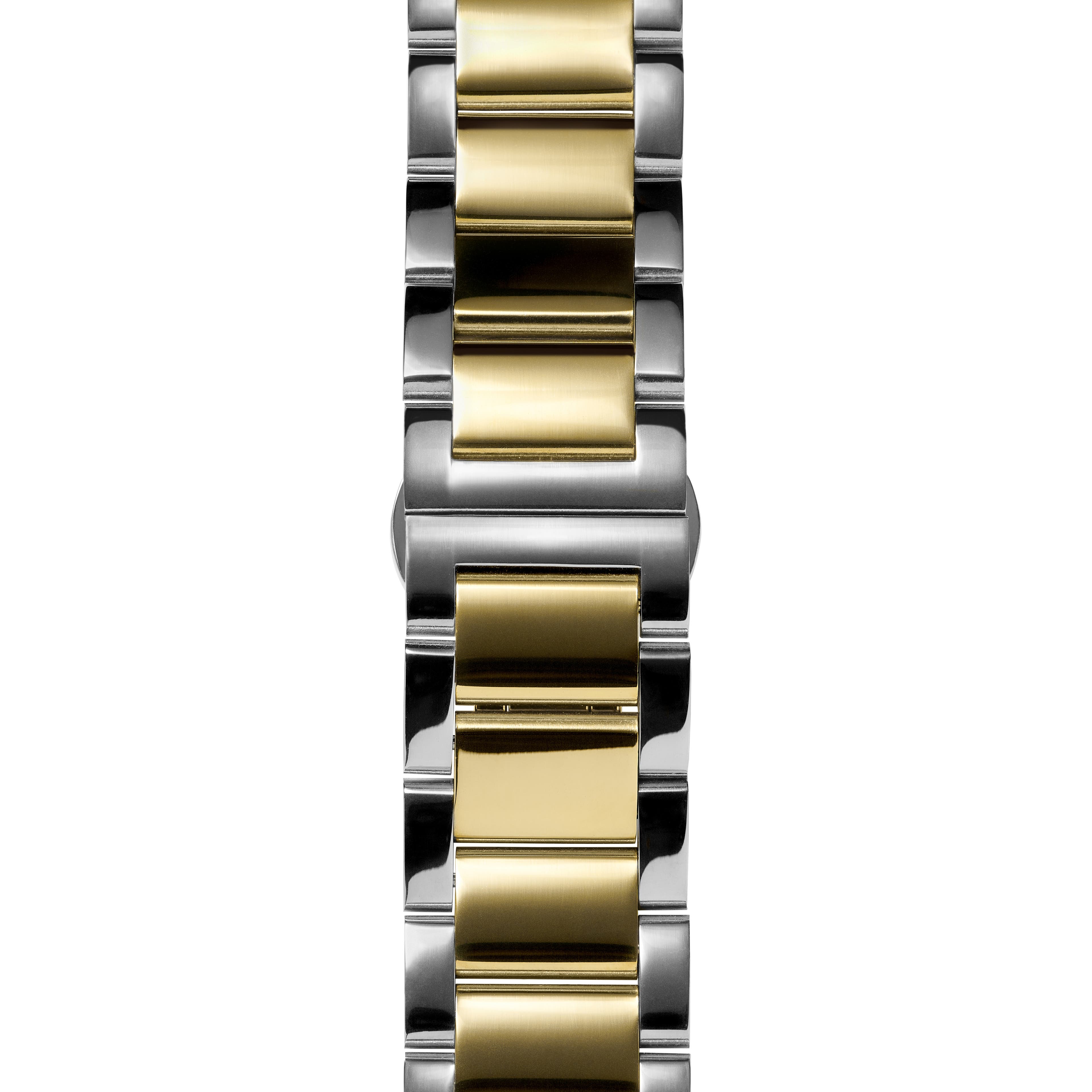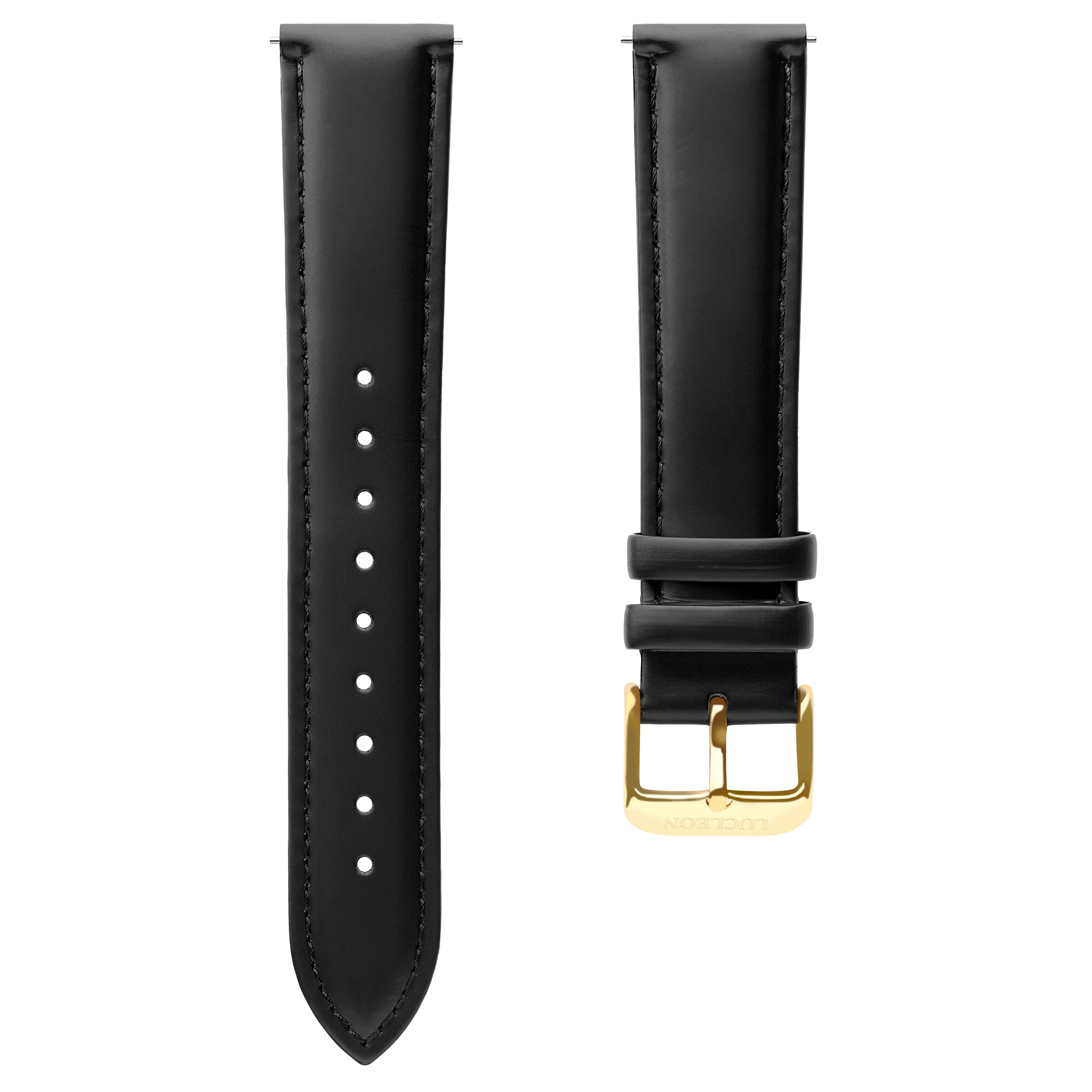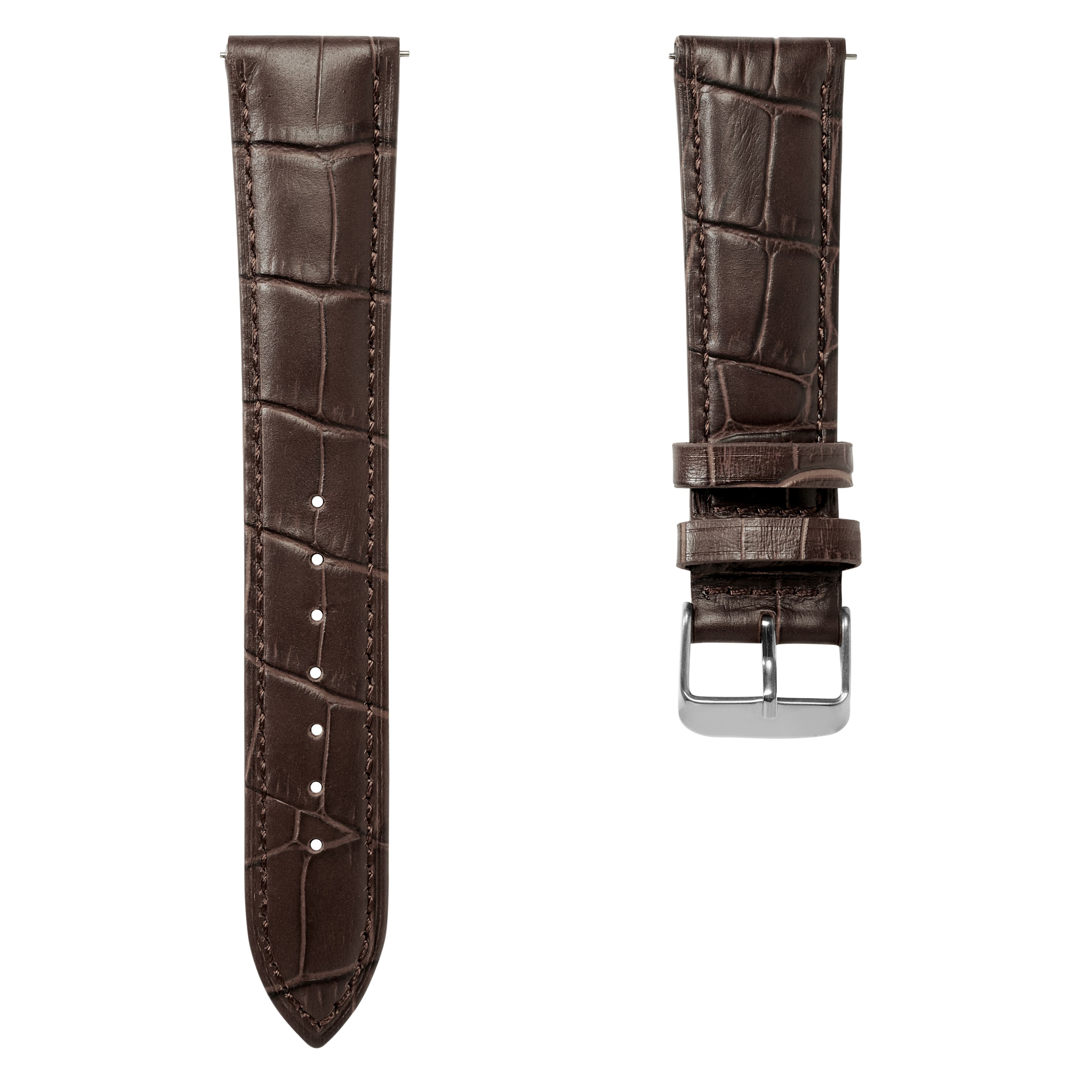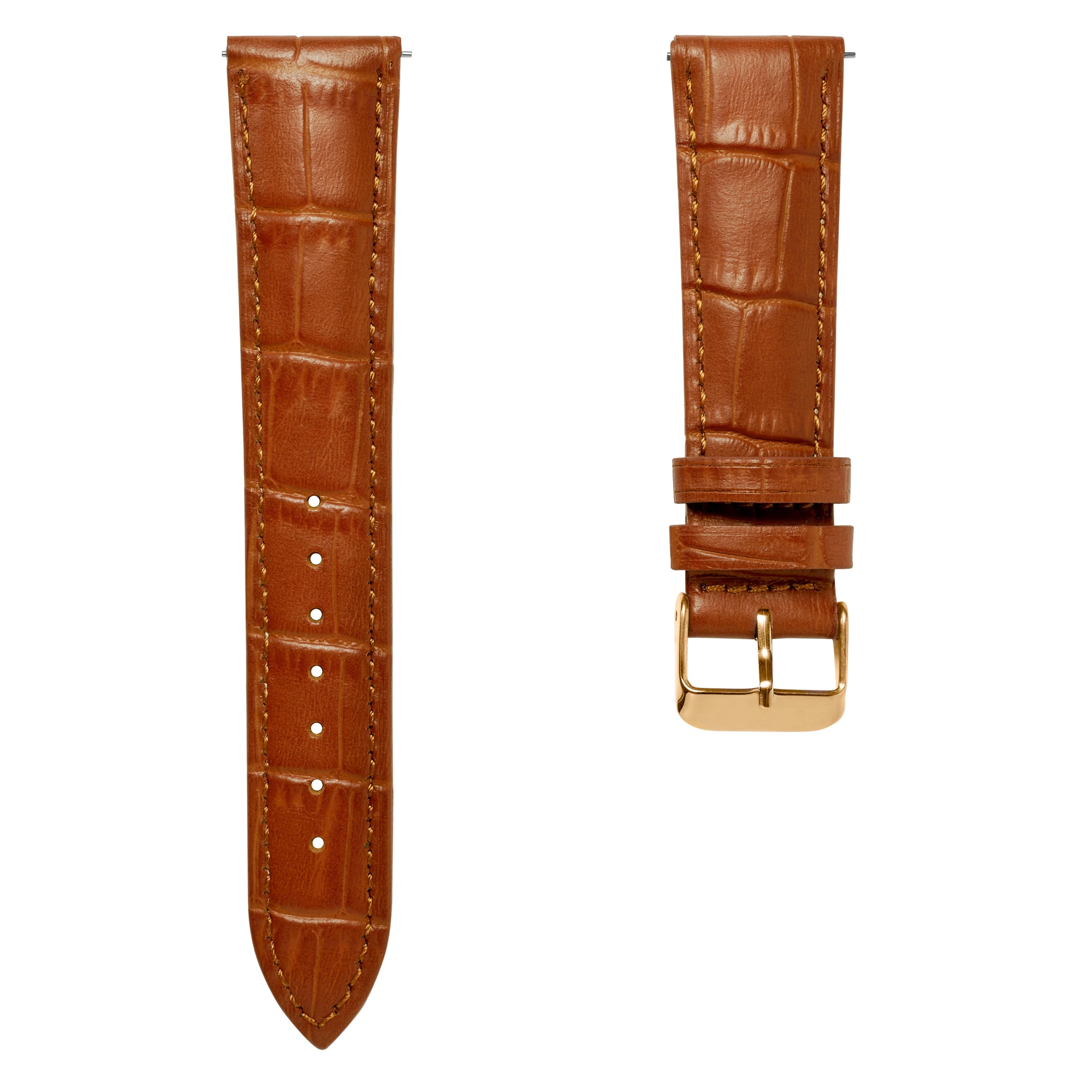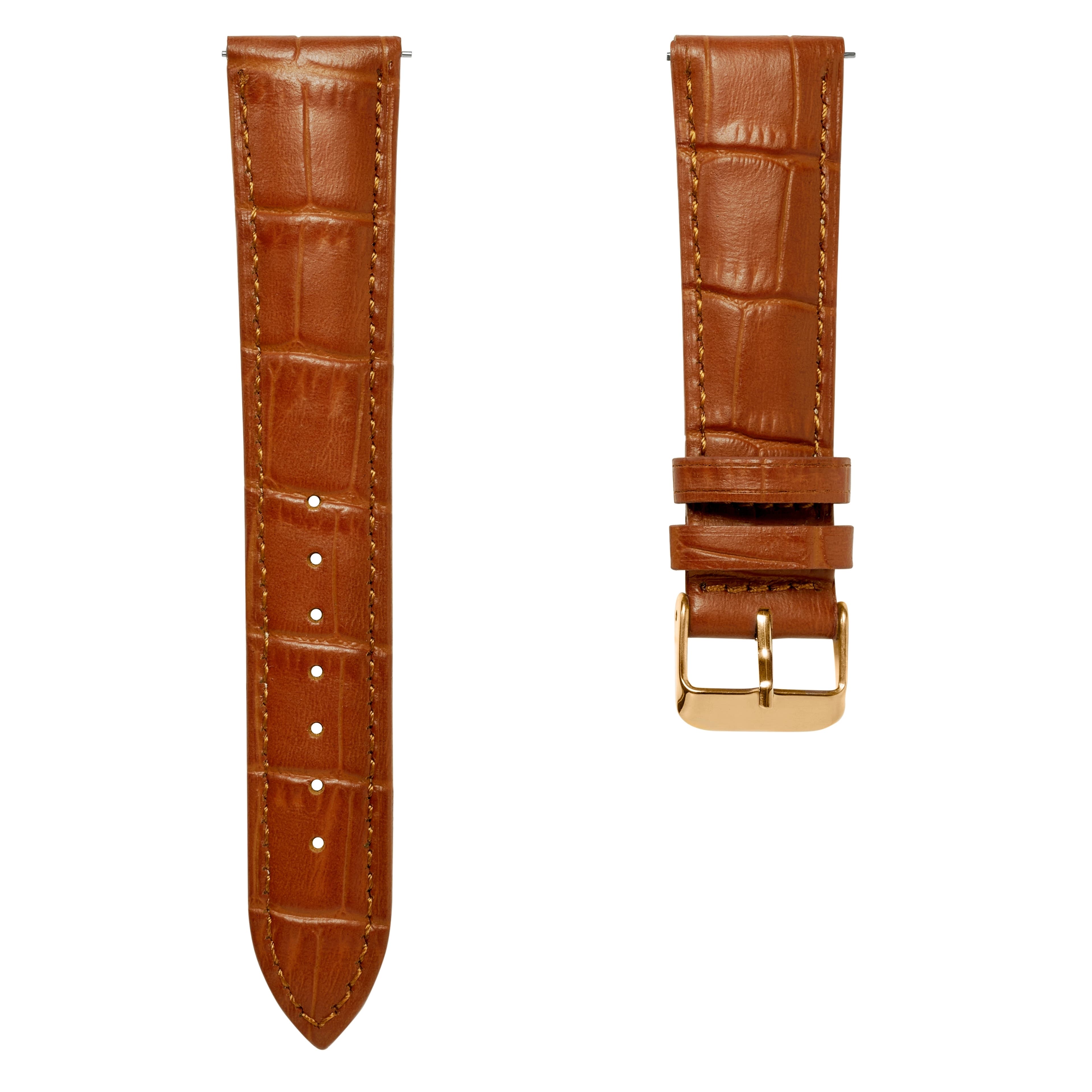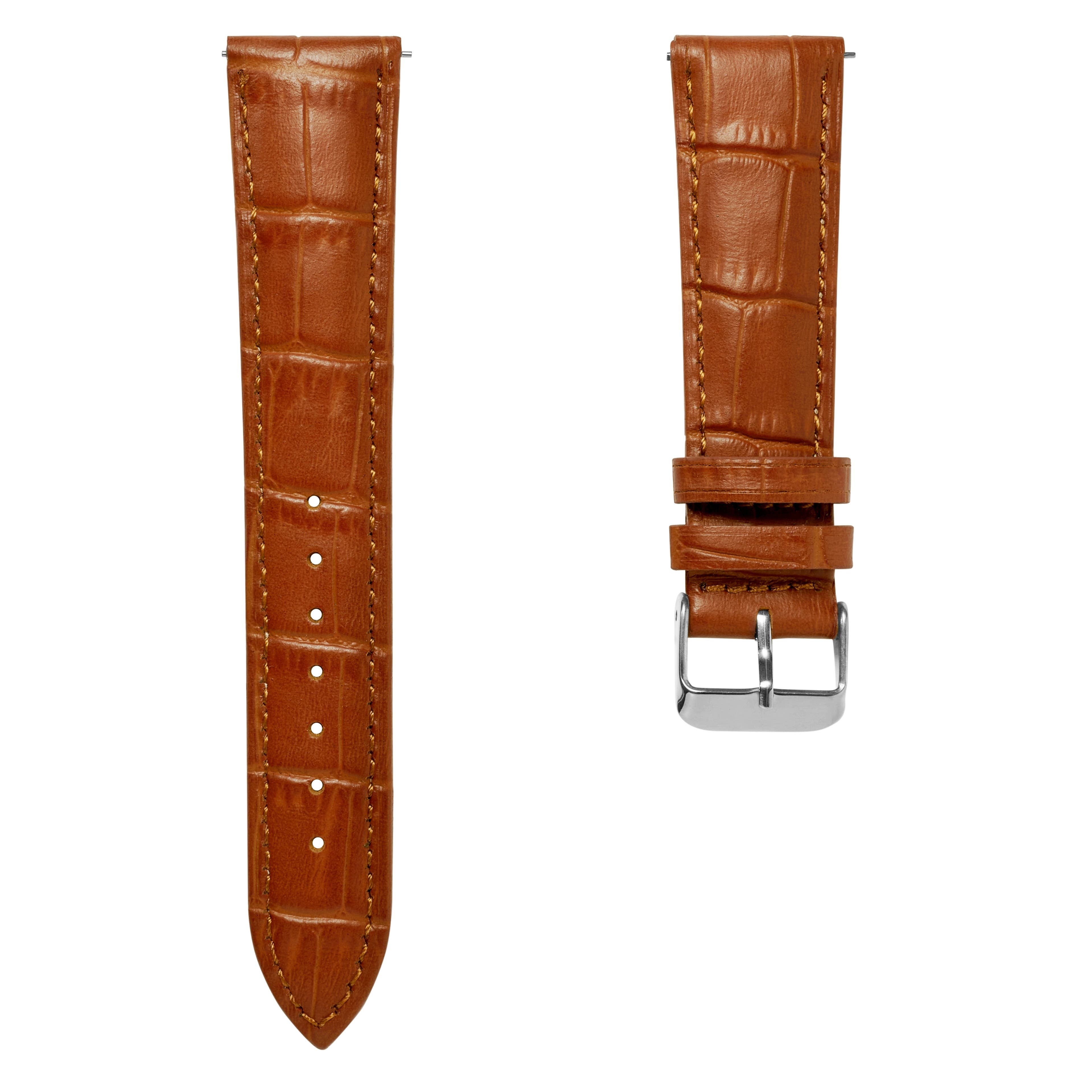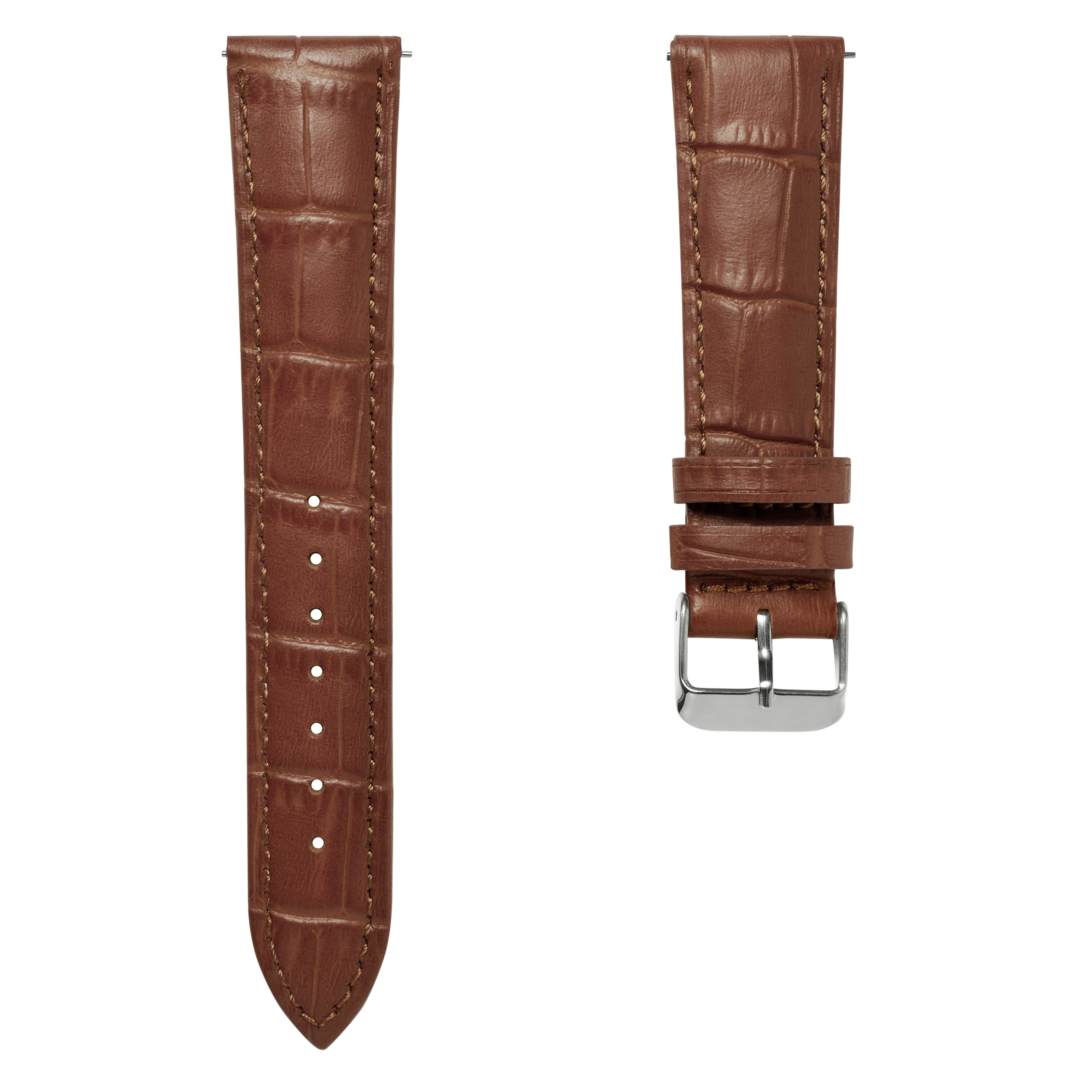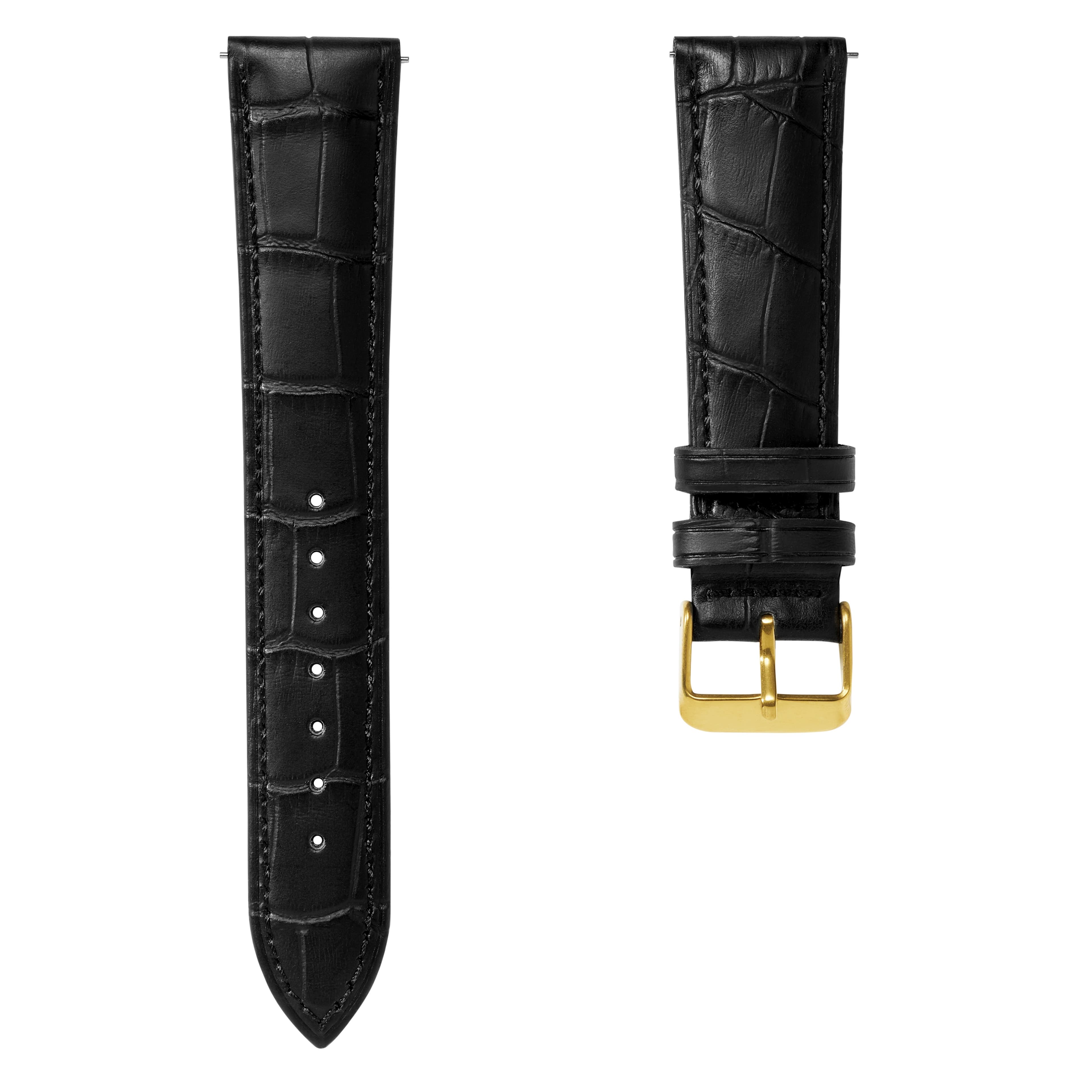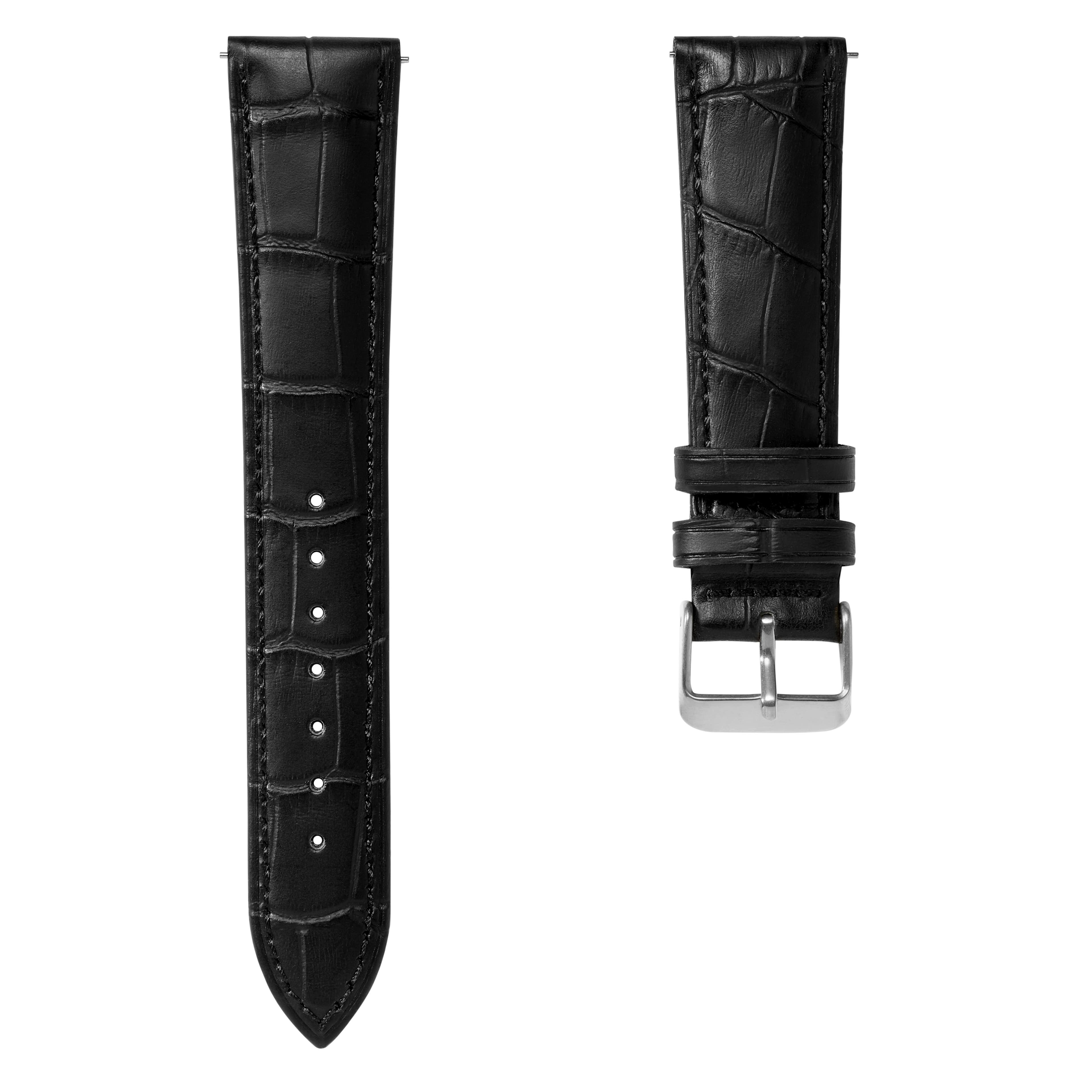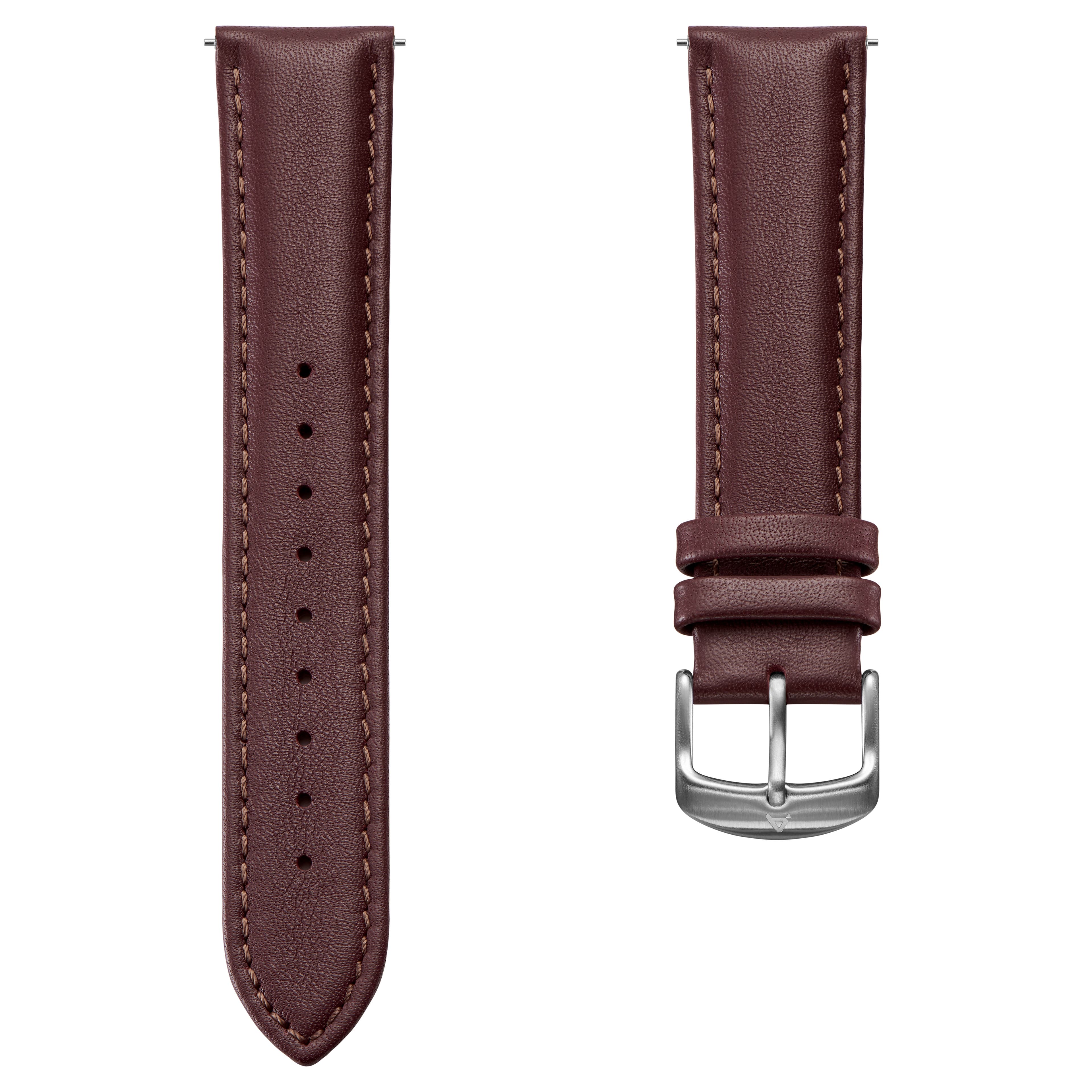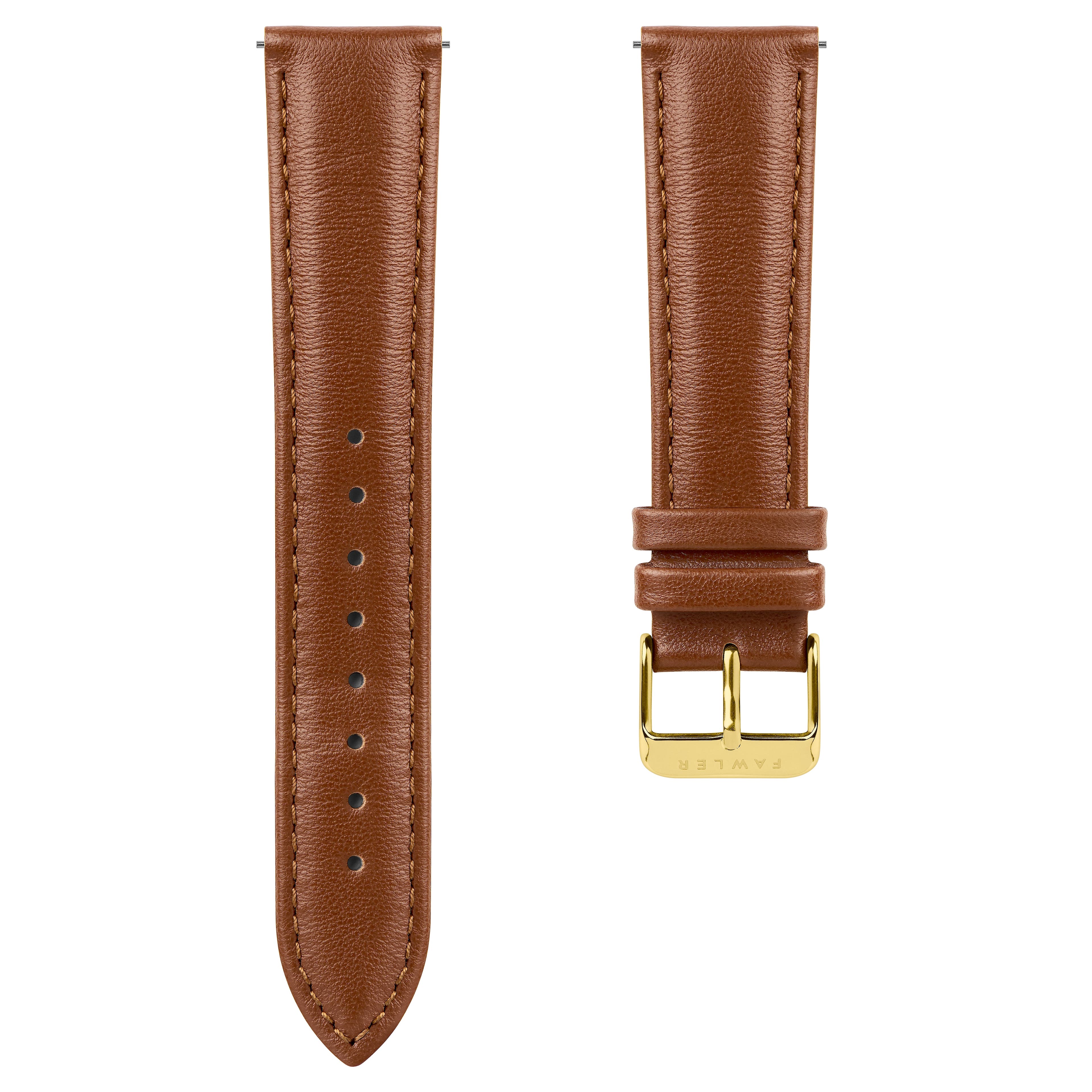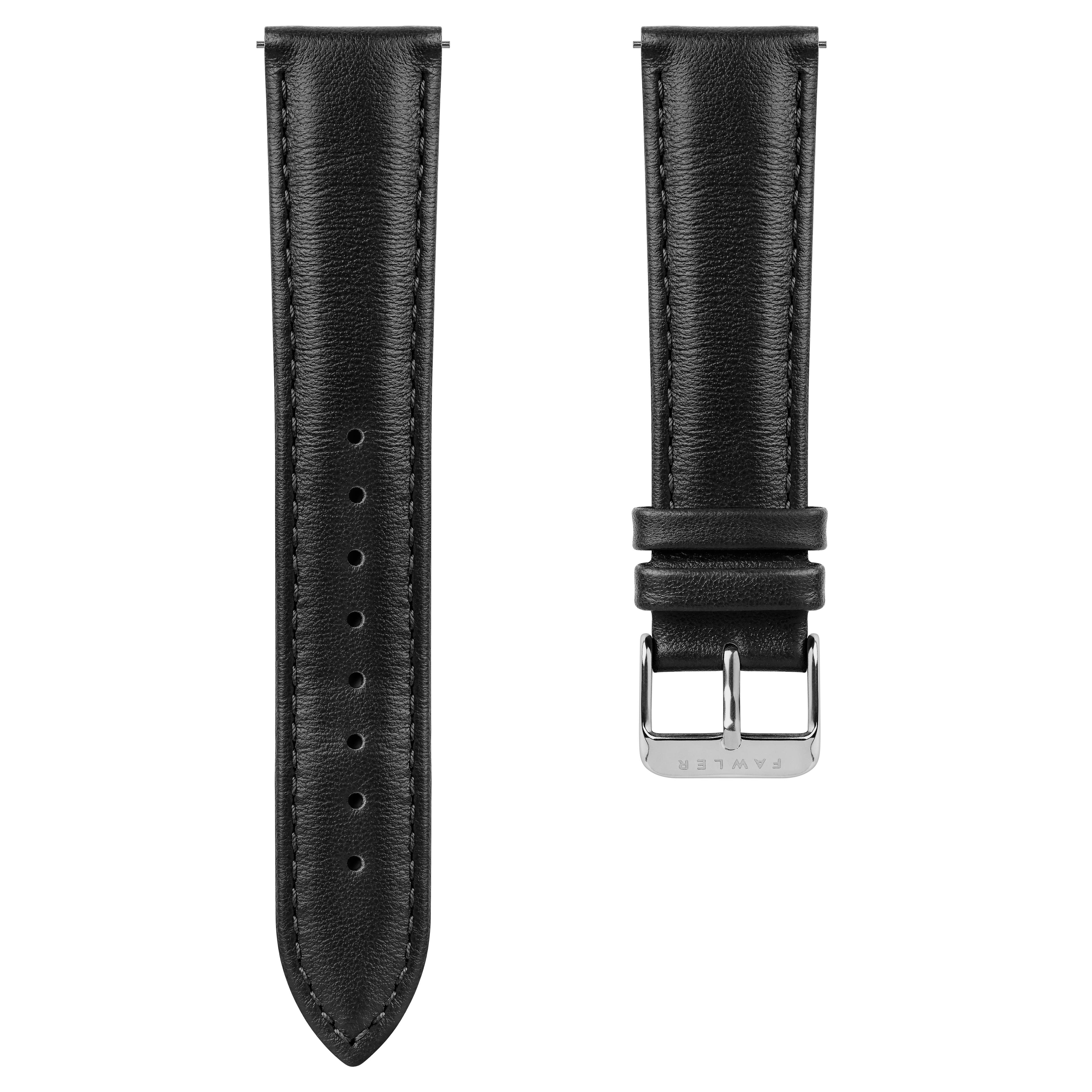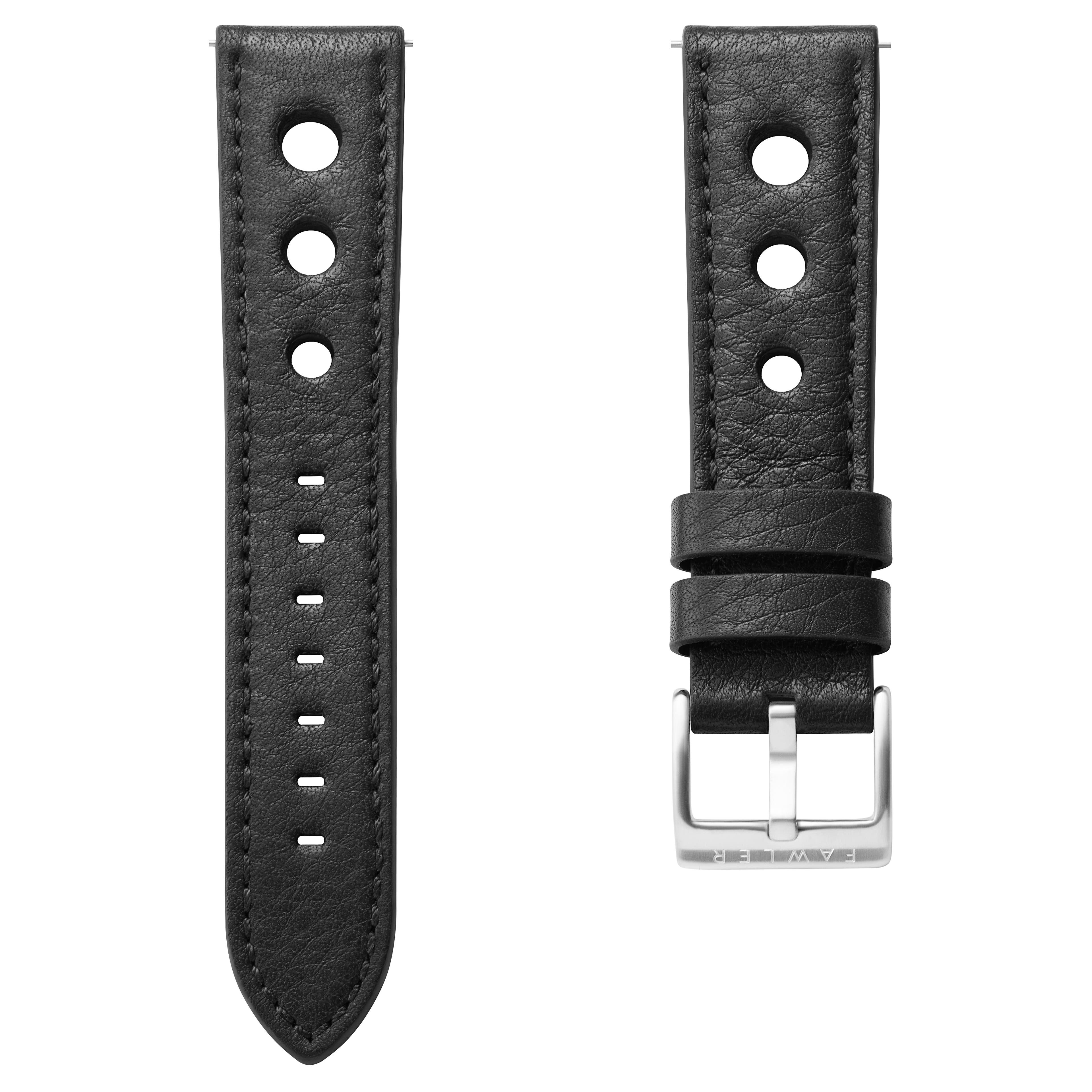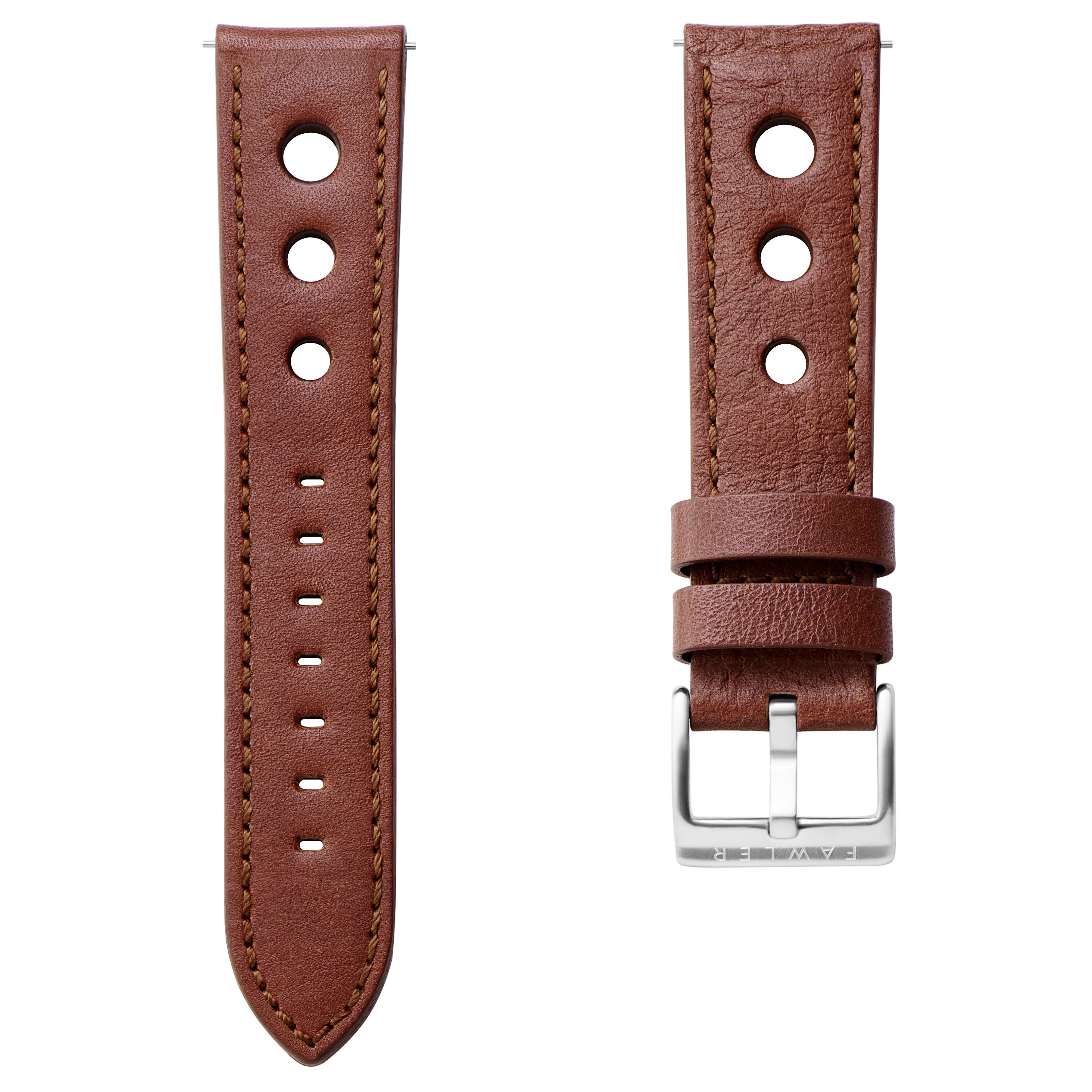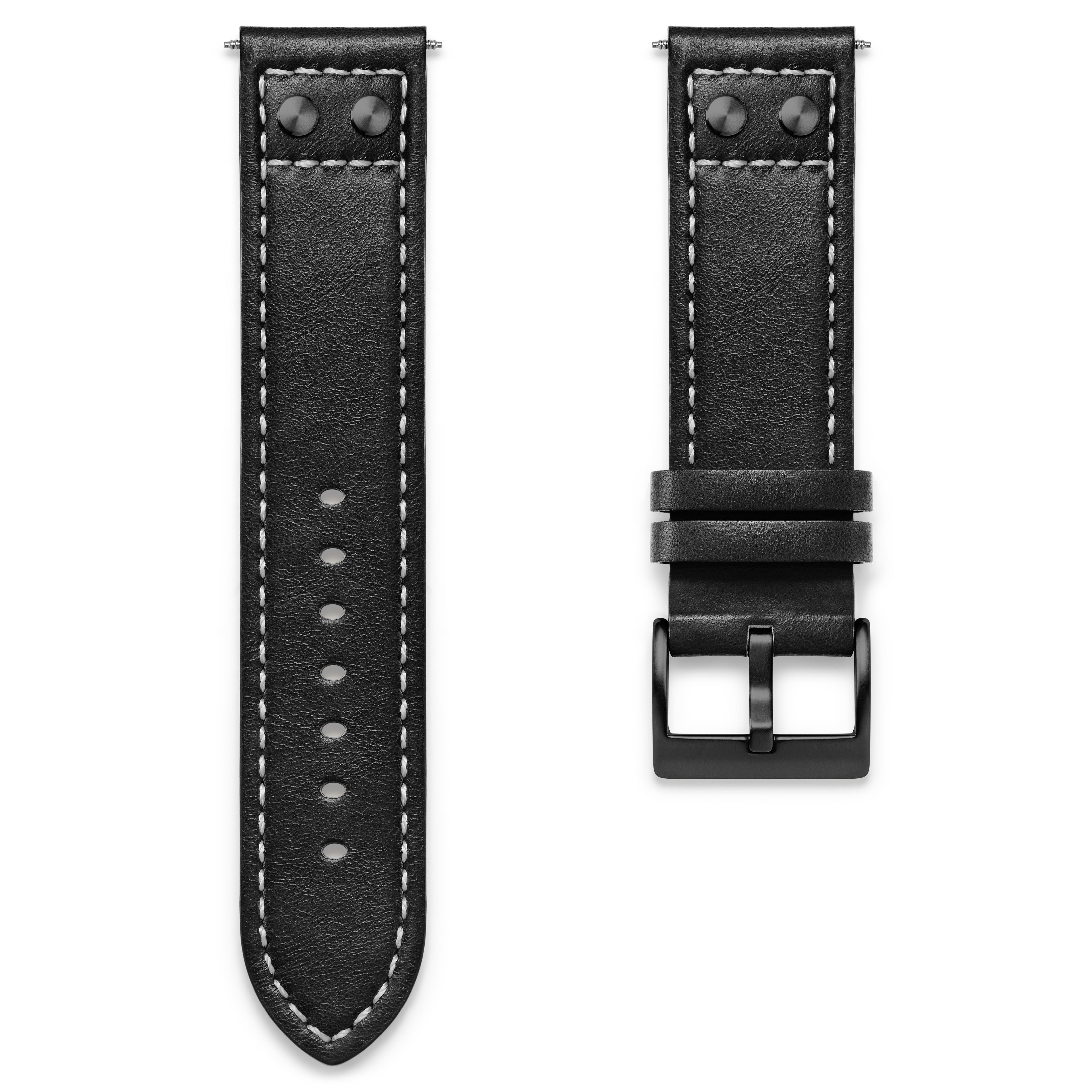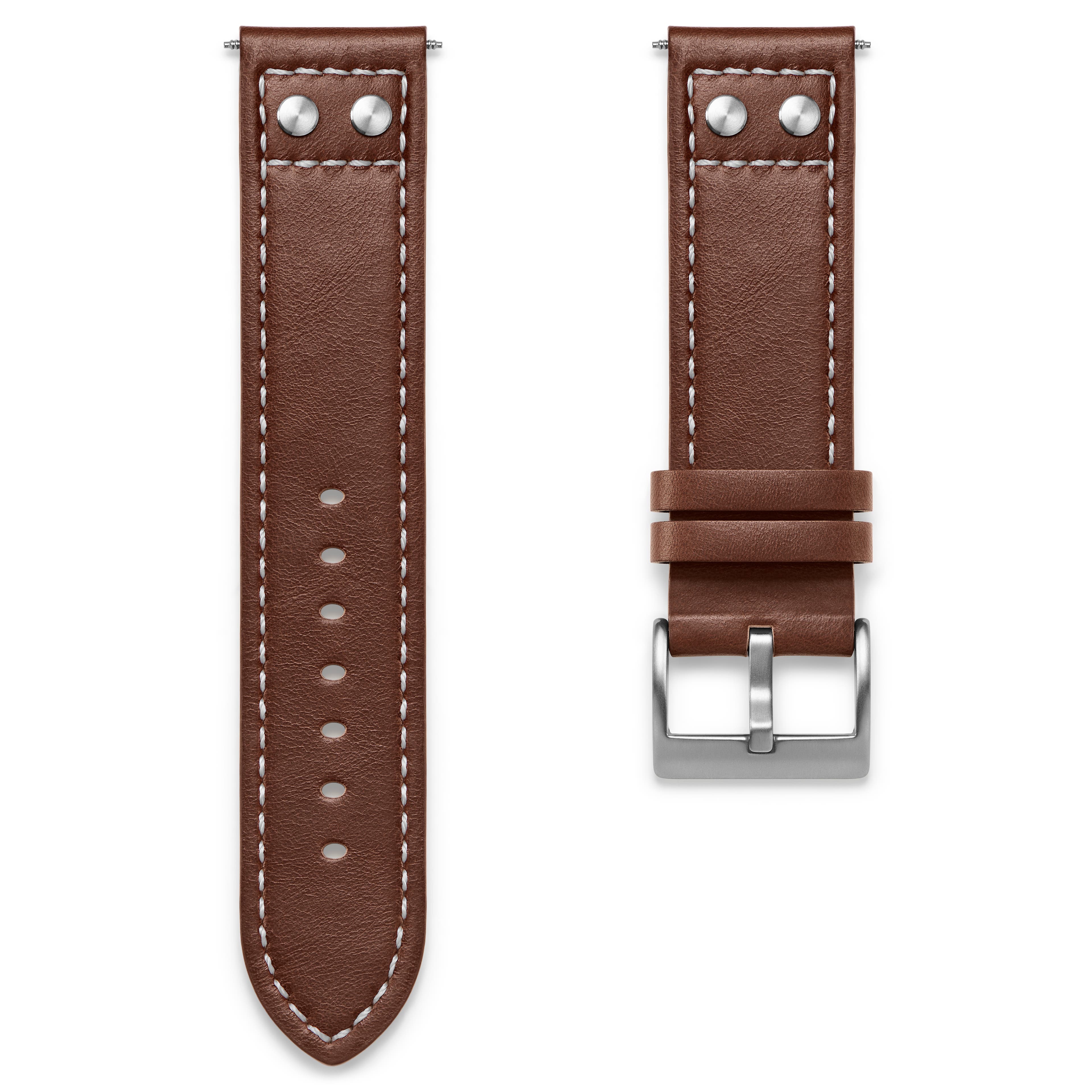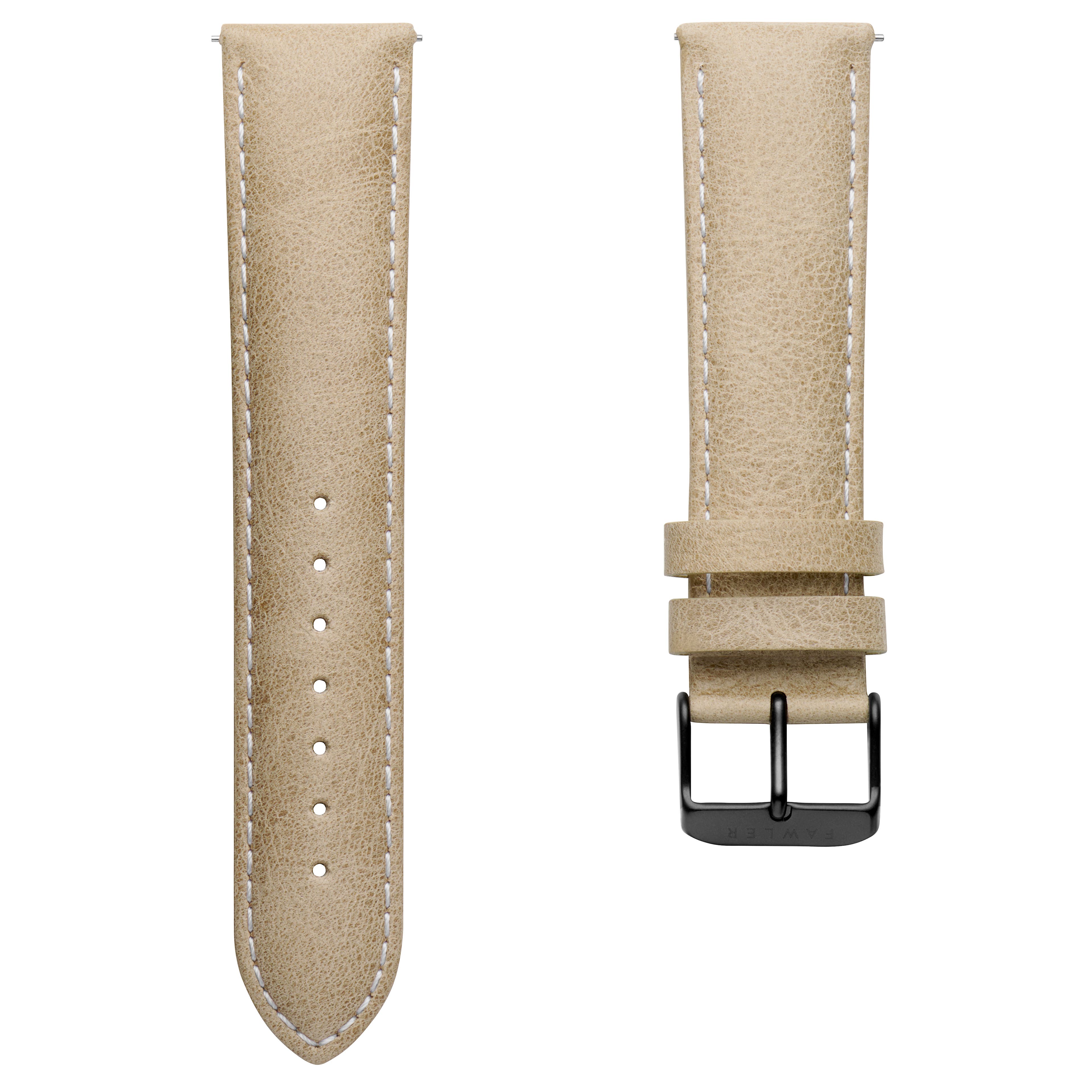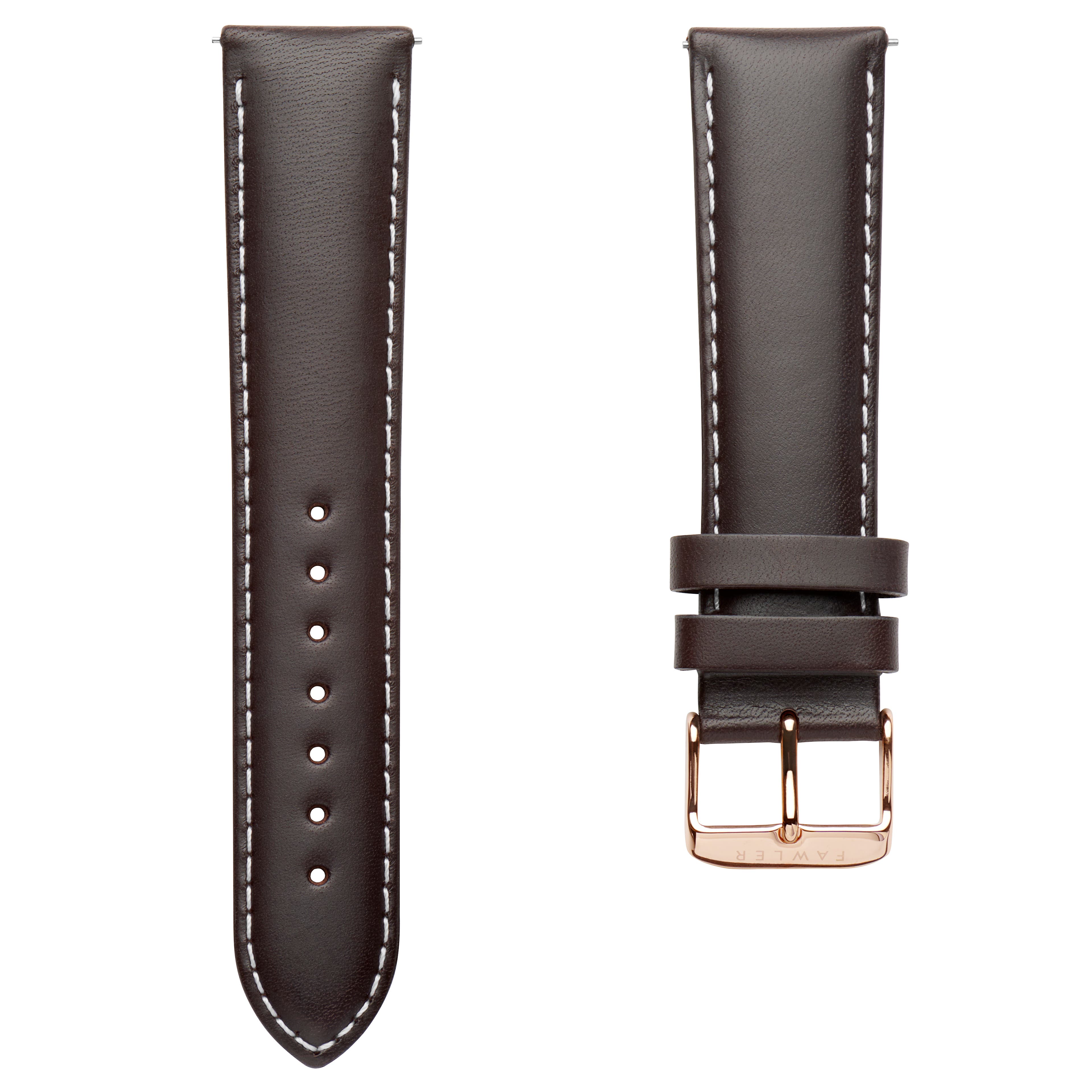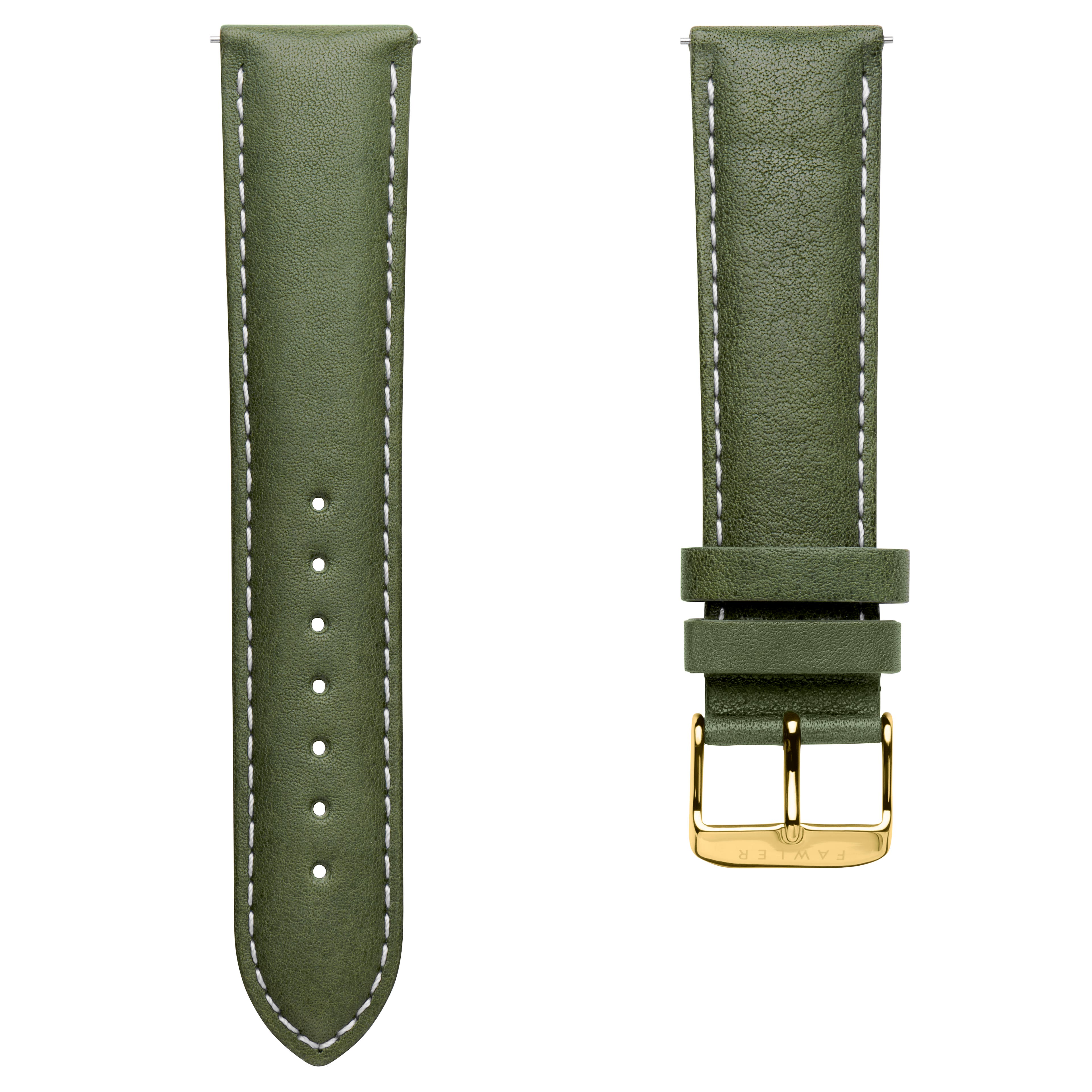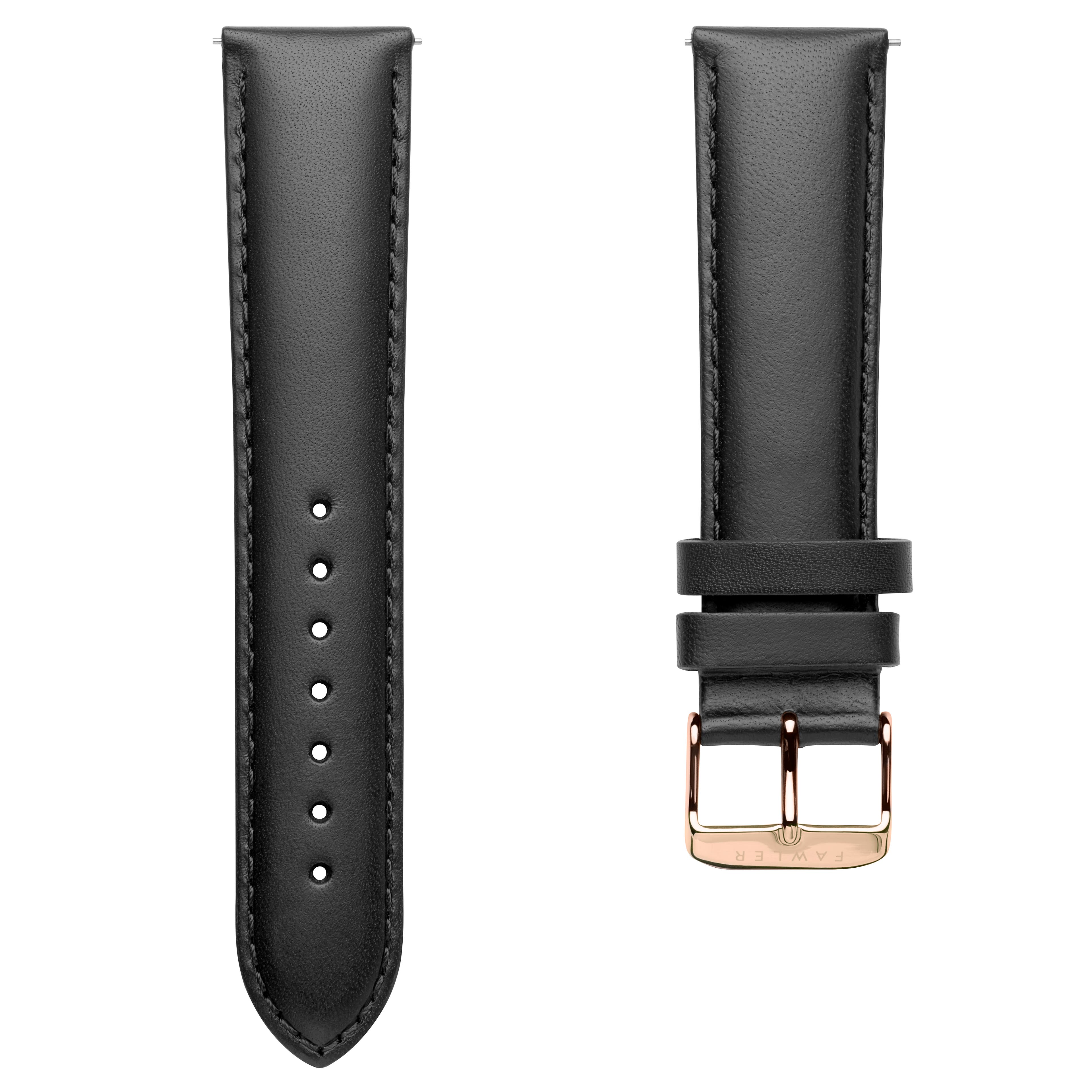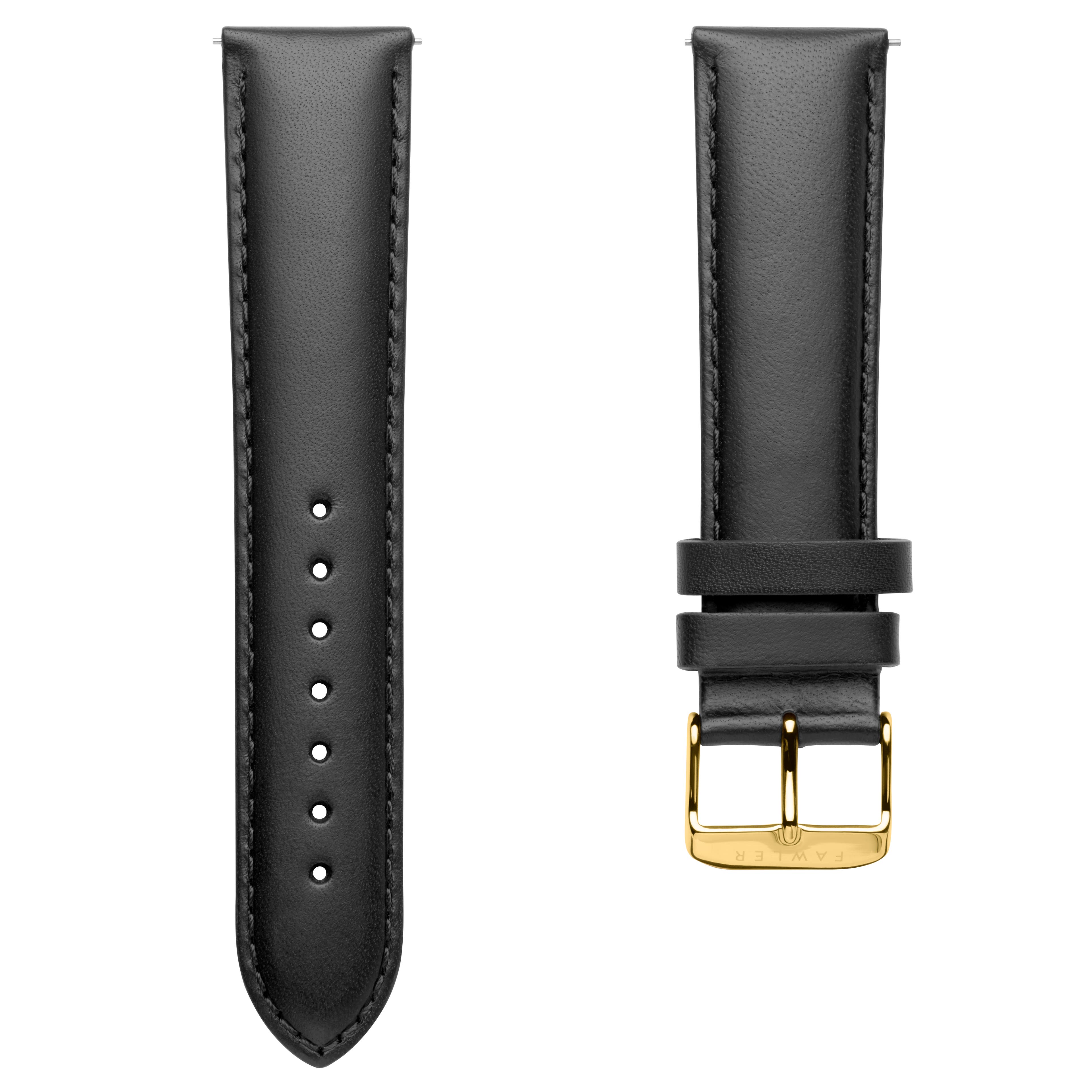Men’s Watches – Your Ultimate Guide
Choosing a wristwatch requires a bit of thought and a lot of research. Good news… we’ve done that for you. This comprehensive guide to men’s watches provides you with everything you need to know about buying the watch that suits you.
From springs and wheels to batteries and screens, leather straps to split-second chronographs, there’s far more to the humble wristwatch than what makes it tick.
Gather round, gentlemen. You’re about to become a expert on men's watches.
Why Wear a Watch?
Ok, your smartphone works pretty well as a timekeeper. But unlike a smartphone, a wristwatch doesn’t distract you with Facebook updates from your friends and Tinder alerts from would-be swipes.
A watch is more than a measure of minutes and hours. A man who wears a watch is not just a man making an effort to be on-time, but a man making an effort to look good.
Besides… when it comes to ‘bling’, men don’t get a lot to play with.
Choosing the watch to suit you requires careful consideration of factors such as budget, style and function. What do you need your watch to do? Where will you take it? What look are you after? Start thinking!
From high-end watches to super trendy ones, there’s a style for every man and every soon-to-be epic story.
Watch Movement Types
A watch movement is, quite literally, what makes it tick. It’s the ‘engine’ of the watch and the part that powers the movement of the hands around the watch face and makes the complications work.
You could be forgiven for thinking that your choice of watch comes down to looks alone – and for some, it might. For others, the way it works is more interesting and important.
Watch movements fall into three categories:
- Mechanical – The original wind-me-up watch. Powered by tiny gears and wheels.
- Automatic – The automatic version of a manual mechanical watch. Self-winding.
- Quartz – The modern watch. No winding required – battery operated.
The Mechanical Watch
One for the traditional man. A mechanical watch is your original, old-fashioned, hand-wound watch. Unlike a quartz watch, which is battery-powered, a mechanical watch is driven by a vast network of intricate workings and expert craftsmanship.
Like the spring-powered clocks of the 17th century, a mechanical watch relies on the manual winding of its mainspring. The spring then powers a complex series of gears that activate a weighted wheel (aka the balance wheel).
The balance wheel oscillates backwards and forwards at a constant rate. When released by a mechanism called an escapement, the wheels move forward a tiny amount with each swing of the balance wheel. This is the ‘tick’, and it’s what moves the watch's hands forward.
Of course, this incredible design means the mechanical watch requires daily winding. To wind it, you’ll have to take it off and unscrew the crown, then turn the crown clockwise until you feel resistance.
The winder (you) has to rely on feeling the resistance on the winding stem to know when the mainspring is full. It is possible to break the watch if you plough on and over-wind it… so don’t do it while enthralled in the latest Netflix offering.
Setting the time involves pulling out the crown as far as it will go from the watch base. This causes the second-hand to stop, so you can accurately set the time.
The engine of a mechanical watch can include around 200 tiny moving parts. The only drawback is that the variables involved in this vast array of bits and pieces mean the mechanical watch can never be 100% accurate. They keep time within a certain tolerance – the maximum amount of seconds per day the watch gains or loses.
To earn the COSC chronometer certification, the movement must operate within -4 to +6 seconds.
It’s widely agreed that the best watches with mechanical movements are Swiss watches, closely followed by Japanese.
Advantages of a Mechanical Watch
- Exclusive. The crème de la crème of watch craftsmanship. Owning one is an appreciation for the intricate workings of all those gears and springs.
- Efficient. No battery required.
- Unique. Vintage is hot property, and most collectable watches are mechanical.
- Impressive. Some mechanical watches have a clear window on the back, allowing you to see their meticulous workings in action.
Disadvantages of a Mechanical Watch
- High-maintenance. You have to wind it. You’ll also have to take it for servicing every five or so years. This can be a fairly pricey investment.
- Not so accurate. Even with regular winding, a mechanical watch loses a few seconds every day.
- Sensitive. The tiny gears and wheels inside a mechanical watch are quite sensitive to the elements, so this isn’t the sort of watch you’ll take surfing.
- Expensive. The price tag on a mechanical watch is significantly higher than quartz.

The Automatic Watch
Like the mechanical watch, an automatic watch is powered by a mainspring. However, this mainspring is wound automatically by the kinetic energy of the wearer’s wrist – the natural motion of your arm. It’s also sometimes called a kinetic watch.
It’s technically ‘self-winding’. A tiny pivoting weight called a rotor swings as your arm moves, winding the mainspring while you’re wearing the watch on your wrist.
When you take your automatic watch off your wrist, it’ll continue running for around 36-48 hours by itself. After that, it goes into “power reserve” mode. To get it functioning normally again, you’ll need to set the time and wind it manually. Like the manual mechanical watch, this involves turning the crown clockwise a few times, then set the time by pulling the winding stem out one notch.
Those of you who might shy away from a manual watch for fear of over-winding it will delight in an automatic watch. Automatics have this handy little feature that disengages the winding mechanism – a kind of ‘slipping clutch’. No matter how many times you wind it, it can’t be over-wound. Older manual mechanical watches, on the other hand, don’t always have this mechanism.
If you need to store your automatic watch for an extended amount of time or have more than one automatic watch, seriously consider getting a rotary watch case (watch winding storage box). It’ll wind the watch for you when you’re not wearing it.
Advantages of an Automatic Watch
- Best of both. Automatic watches are just as intricate as their mechanical predecessors – but unlike a manual mechanical watch, they self-wind.
- Efficient. No battery or winding.
- (Mostly) Easy maintenance. Ideal if you’re going to wear your watch every day.
Disadvantages of an Automatic Watch
- Some winding required. If you stop wearing the watch, it’ll stop winding itself and lose time. It’ll then need to be wound manually by turning the crown.
- Some maintenance. Servicing is usually required every five or so years.
The Quartz Watch
Here’s the watch that changed watch history. Quartz watches made their debut in the 1960s in Japan. By the 1980s it had eclipsed traditional mechanical watches. The battery-powered quartz watch is basically a tiny computer which relies on electric pulses – rather than manual winding – to keep time.
It’s named for the piece of quartz crystal within the electronic motor. This crystal is a conductor, regulating the current between the battery and the electric circuit.
Unlike a mechanical watch, a quartz watch can be either digital or analogue. A digital quartz watch displays the time numerically on an LCD screen, while an analogue watch features traditional hands.
Because a quartz watch is powered by a battery, its second-hand moves in individual ‘ticks’. This differs from the smooth, wheel-powered movement of a mechanical watch.
Advantages of a Quartz Watch
- Affordable. Quartz watches are much cheaper to make and maintain than mechanical or automatic ones.
- Easy to use. Nothing to wind and nothing to service. Just a battery change when needed.
- Precise. The electronics of a quartz makes it the most accurate time-keeper of all watch movements. Most high-quality quartz watches lose only about 1-2 seconds per month.
- Durable and low-maintenance. Battery power rather than lots of moving parts means the quartz watch is easier to look after than a mechanical or automatic watch and requires less servicing.
Disadvantages of a Quartz Watch
- A bit average. Quartz watches lack the intricacies of a mechanical watch.
- Parts required. Batteries don’t last forever.
The Bottom Line Mechanical and automatic watches are prized by watch connoisseurs and collectors for their unique and beautiful inner workings.
Quartz watches are preferred by those who require accuracy and reliability.
Watch Cases: What Matters?
The brand and style of a watch have a lot to do with what it is made out of. Luxury watches can be made from high-end precious metals (gold, white gold, rose gold) to silver-plated alloys. Other metals such as stainless steel, tungsten and titanium watches have also made their way into the luxury wristwatch scene.
Dive watches and sports watches need to be corrosion-resistant, so they’ll often be made of stainless steel or titanium.
Gold Watches
Beautiful, traditional and sure to get noticed, gold watches for men are more than a time-keeper. They’re statements. But gold ain’t cheap. It’s pretty and valuable, but it’s also prone to scratches and tarnishing. Not the piece you’ll take skiing.
Silver Watches
Silver watches for men are a rarity. Possibly because silver tarnishes easily and most steel can pass for silver without the price tag. Silver is also softer and scratches and dents easily. Silver-plated stainless steel is more common and durable.
Stainless Steel Watches
Lightweight, resistant to corrosion and highly durable, stainless steel is one of the least expensive metals available. While it’s often used for sports watches or ‘cheaper’ models, stainless steel is just as likely to be used in luxury watches. You’ll find both gold-tone and silver-tone stainless steel watches at Trendhim.
Titanium Watches
Half the weight of steel and twice as durable. Titanium’s main drawback is its price.
Ceramic Watches
Ceramic is technically any non-metal material that’s solid and inorganic. Composed of zirconium oxide, ceramic watches are as stylish as they are durable. Besides being hypoallergenic, ceramic watches are scratch-resistant, can handle years of wear and tear and won’t fade in the sun.
Watch Glass
The crystal – the glass that covers and protects the watch dial or face – is just as important as the case material. From plastic to sapphire crystal glass, each comes with its own unique properties and price tag. Check out the pros and cons of each watch glass type below.
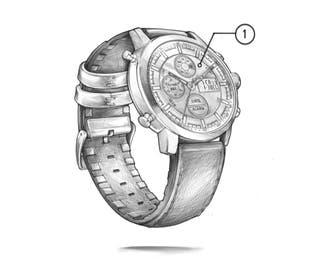
What is mineral glass, acrylic and sapphire glass in watches? Is one more durable and scratch resistant?
Mineral Watch Crystal
Mineral glass is one of the most common types of glass used for watch crystals. It’s more scratch-resistant than acrylic and more affordable than sapphire. There’s nothing wrong with mineral glass, and you’ll find it on a variety of watches – so don’t let the fact that it’s the ‘typical watch glass’ fool you into thinking that it is subpar.
- Offers more scratch resistance than acrylic
- Less reflective than sapphire crystal
- Less scratch-resistant than sapphire
- Difficult to polish and can chip or break under impact
Acrylic Watch Crystal
Acrylic watch glass isn’t really glass at all. It’s plastic and also known under the name plexiglass. It’s not a very strong material, but it’s widely used because of its affordability and the fact that it can be easily contoured for design. Acrylic can be polished to remove light scratches, and it won’t shatter like sapphire glass… but watch out for deep scratches.
- Very affordable
- Highly susceptible to scratches
- Strong impact resistance due to its flexibility
- You may feel the dial looks cloudy through acrylic
Sapphire Crystal Glass
When we talk about a watch with a sapphire crystal, we’re talking about a quality timepiece. With the exception of materials such as diamonds or tungsten carbide, sapphire glass is one of the hardest materials on earth. This material is ultra scratch-resistant but can shatter under extremely heavy impact. The biggest advantage of watches with sapphire glass is that they are very difficult to scratch.
- Hardest watch crystal available
- Extremely difficult to scratch
- Clear view of the dial – not cloudy like acrylic
- Without anti-reflective coating it can be too reflective for some people
- Can shatter under very heavy impact
Double domed or single domed sapphire glass – Which is better?
Once you’ve decided on a watch with sapphire glass, the next step is choosing between single or double domed.
A crystal with a single dome is flat on the bottom and domed on the top. You may find that a single dome distorts the view of the watch face because it creates a lens by which you have to see through to tell the time.
A double dome is round on the outside and round on the inside (hence the name ‘double dome’). With a double-domed sapphire crystal, you’ll experience very little to no distortion on the dial.
Other Watch Glass Options:
- Sapphire Mineral Watch Glass – This type of watch crystal is made by coating mineral glass with a thin layer of sapphire glass. There are huge differences between this and actual sapphire glass. Always check the product description to know the exact material and check with customer support if you’re in doubt.
- Resin Watch Glass – Some watches are advertised as having resin glass. This type of watch crystal has properties similar to acrylic and is an affordable option for watch crystals.
Watch Bands
Watch straps, bands and bracelets can vary hugely by style, material and design and are much more than just the ‘other half of a good looking watch’.
When deciding between a leather strap or a metal band, think about where you’re going to wear the watch and what outfit you’ll wear it with. With your suit to the office or theatre? In the garden? On the slopes? You’ll need something that not only works with your attire but that holds up to the elements it’ll face.
The size of your wrist matters, too. A small wrist may be weighed down by a metal band, even if it’s the same size as a leather strap.
Metal Watch Bands
As with the casing, a metal band can be made from gold, steel, titanium or any other metals, and is usually held together with a metal clasp. Metal bands can be made of links or mesh. Like cases, metal link bracelets are durable but easily scratched. Depending on the metal, they’re also more expensive to replace.
Leather Watch Straps
Men’s leather watches are the most common of all… but common doesn’t mean dull. Leather straps can be made from any animal hide from cow to crocodile, and go with almost any watch face.
Leather is classic, comfortable and safe for those with metal allergies. Leather straps are hard-wearing, light on the wrist and stylish. The other great thing about leather is that it adds a touch of vintage character to your look. Leather straps can be crafted in a variety of ways – plain, embossed, rigid, stitched or coloured.
Fabric Watch Straps
Synthetic materials are generally affordable, low-maintenance and comfortable to wear. Nylon is a great material for activewear. It’s highly durable and resistant to water, UV and rough play. And if colour is your thing, you’ve got no end of options with a fabric watch strap!
The most common type of fabric strap is the NATO strap. Designed for military wear in the 70s, the NATO watch strap is a single-piece strap that can be easily swapped out by removing the two spring bars attached to the watch.
Perlon is another popular fabric strap. These tightly woven nylon straps are thick but surprisingly breathable.
Let’s Boil It Down Sport watches for men generally feature bands made of rubber or metal. Both make for durable and waterproof watches.
Metal bands double as snazzy accessories.
Leather simply won’t cut it for a watch that’s going to get wet or sweaty, but it’s a good choice for dressier occasions.
Make sure you choose interchangeable straps (if possible). These feature a quick-release pin that makes going from black to tan leather a snap!
Watch Complications
A complication is a feature that shows anything other than the time. A watch complication can include the date, a chronograph (stopwatch), time zones, temperature, an alarm, a tachymeter, moon-phase viewer or calendar.
Date Display Complications
- Date Window – A tiny aperture showing the date (usually next to the 3 pm).
- Big Date – An easy-to-read window showing the date in large digits.
- Date Wheel – A centre hand with an arrow pointing to the date along the outside chapter of the dial.
More detailed date complications can show the day of the week, the month, an annual calendar or even an equation of real-time vs solar time.
Chronograph Complications
A chronograph is a tiny stopwatch built into the movement of the watch.
- One or Two Button Chronograph – Features a start, stop and reset button.
- Flyback Chronograph – This differs slightly from a regular chronograph. In a flyback chronograph, you can use the reset button without first having to stop the chronograph.
- Split-Second Chronograph – The split-second chronograph allows you to measure two separate periods. While one hand is timing, the other can be stopped, started or reset back to zero.
- Tachymeter – Sometimes inscribed around the rim of an analogue watch, a tachymeter calculates a speed based on travel time by converting elapsed time (in seconds per unit) to speed (in units per hour). It can also measure distance based on speed.
Travel Watch Complications
Whether you’re a jet-setter, a frequent flier or just a guy with a time zone fascination, 2 important complications could make travelling a lot easier.
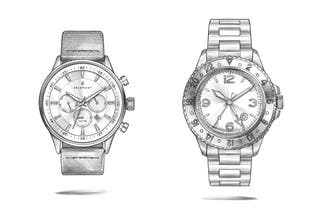
- Dual Time Watch Complication – Dual time watches allow you to tell the time in 2 different time zones. That’s where the name ‘dual time’ comes from. Super clever, right? This complication is powered by the same movement and features a main dial and a subdial. Most dual time watches utilise a 24-hour clock on the smaller dial and a 12-hour dial on the larger, main dial. This complication is great when travelling between time zones and will always let you know the time at home… or the time here at Trendhim, if you want to know.
- GMT Watch Complication – Watches with a GMT complication perform the same function as a dual time watch (tells the time in 2 different time zones) with the bonus of tracking a 3rd time.
Most watches use a 12-hour interval on the dial. This means that the hour hand goes around the dial twice each day (24 hours). With the GMT complication, the watch will have another hour hand that travels once around the dial and references the 24-hour indicators located on the bezel.
To tell a 3rd time with the GMT complication, rotate the bezel according to the difference between GMT (Greenwich Mean Time) and the time you want to know. For most travellers, a dual time watch with its 2 time zones is enough. If you’re a math expert, have 3 times to track, or just want a challenge, opt for the GMT complication.
Miscellaneous Complications
- Moon Phases – Shows full, half, quarter or new moon.
- Power Reserve Indicator – Shows the amount of power remaining in a mechanical or automatic watch (as per the tension of the mainspring).
- Alarm
- Minute Repeater – Chimes the time on demand by activating a slide-piece on a mechanical watch.
- Tourbillon – Generally a feature of older mechanical watches, a tourbillon aims to counter the effects of gravity when the timepiece is stuck in a certain position.
What Does ATM on a Watch Mean?
If you’ve ever looked at the back of your watch, you’ve probably seen the letters ATM and the term ‘water-resistant’ engraved on it.
ATM is an abbreviation for ‘Atmospheres’ and means water resistance – not to be confused with Automated Teller Machine. No matter how many buttons you push… your watch won’t spit out cash.
Water-resistant does not mean waterproof. Before you dive into the deep end, check out the sketch below and see exactly what your timepiece can handle.
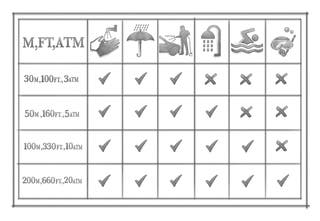
- 3 ATM / 3 bar / 30m / 100ft – Your watch can withstand rain, accidental splashes, handwashing and washing your car (as long as you're not drowning it).
- 5 ATM / 5 bar / 50m / 165ft – Your watch can withstand the same stuff as a 3 ATM watch + it’s suitable for a short swim and showering. Do not take a 5 ATM watch diving or wear it for water sports. The sketch above says no swimming... that's just to keep you extra safe and avoid damaging your timepiece.
- 10 ATM / 10 bar / 100m / 330ft – Along with the benefits of the 3ATM and 5ATM watches, a 10 ATM watch is suitable for most water sports, swimming, surfing, and snorkelling. It’s not water-resistant for deep diving or scuba.
- 20 ATM / 20 bar / 200m / 660ft – Your watch is suitable for swimming, scuba diving and high-impact water sports. And any long, relaxing bath you’re planning.
*Bar indicates water pressure.
When a watch reads that it’s water-resistant to 100 meters, that doesn’t mean it can go 100 meters deep. That number tells you that the watch can withstand pressure equal to that at 100 meters deep. In other words, don’t take your 3ATM (30 meter) water-resistant watch on your next scuba trip to Tahiti.
As a general rule, do not go swimming with your watch on unless it says 10ATM or more on the back.
How do I Know my Watch Size
Yes, size matters. You don’t want a watch with a strap so loose it slides up and down your wrist… nor do you want a watch with a case so large it pokes out of your sleeve!
Strap Size
The straps of most dress watches and sports watches are prong-and-notch, which allows for easy adjusting. Some metal watch bands are composed of links, which can be added or removed.
A strap width refers to the distance between the lugs (holes) where the strap meets the watch. Generally speaking, a watch strap should correspond with the distance between the inside of the lugs on the watch head.
The length of the strap depends on your wrist size and includes two measurements – the tail end (length of the long section) and the buckle end (length of the short section, excluding the buckle).
Length is expressed in millimetres, for example – 120/70 mm.
Here’s a standard guide to choosing a strap length to fit your wrist:
- 6.0 - 6.5” wrist (150 - 164 mm) = 120/70 mm strap
- 6.6 - 7.0” wrist (165 - 178 mm) = 125/75 mm strap
- 7.1 - 7.5” wrist (179 - 190 mm) = 130/80 mm strap
- 7.6 - 8.0” wrist (191 - 203 mm) = 135/80 mm strap
- 8.1 - 8.5” wrist (204 - 216 mm) = 140/85 mm strap
- 8.6 - 9.0” wrist (217 - 229 mm) = 145/90 mm strap
Watch Case Size
Now, while an oversized dial that bulges out of your sleeve is awkward and unattractive, a super-small case only makes it difficult to read the time (it’ll also make your wrist look enormous).
A watch case should be proportionate to your build – not too bulky and not too delicate.
For most guys, the general rule of thumb for a watch case is between 34 mm - 50 mm in diameter (measuring across the watch face from one side to the other). If you have a particularly thin or narrow wrist, you’ll want something smaller than 40 mm. Anything bigger than 50 mm is quite the statement-making piece.
Case Thickness
As a general rule, the thickness of the watch case is directly proportional to the diameter. That is, the wider the diameter, the thicker the case.
The thickness of a watch case has a lot to do with its design – particularly the type of movement. Mechanical watches need a lot more space for the gears and wheels. The number of complications also has an impact on the size... as does the overall style of the watch.
It’s a good idea to choose a watch case that aligns with your shape and size.
Consider the size of your arm, and what you want to wear the watch with. A watch that you’ll wear with a suit should be slim enough to slide underneath your cuff.
Choosing a watch that suits your needs and desires comes down to the individual. Every man is different. Some of you only want something to track your time at the gym or point you in the direction of home when hiking. Some want the artisan quality of a true mechanical watch. And some want a sleek accessory (perhaps with a bit of bling) to wear to your next black-tie function.
A well-crafted watch can easily become something you don’t want to leave home without. And when it comes to telling the time, even the latest smartphone won’t compare.
You Asked – We Answered
Should I buy a mechanical watch?
The type of watch that suits you depends on factors such as... where you’ll wear it, how often you’ll wear it, and your personal needs and taste.
A mechanical watch is the classic, manually-wound watch driven by tiny gears and wheels. A quartz watch is your modern-day battery-powered piece, while an automatic watch is something in between the two.
Mechanical watches are the most popular with watch connoisseurs, namely because they’re so intricately crafted. For a more thorough description of each watch type and its pros and cons, scroll up.
How do you buy men’s watches online?
You’re already at Trendhim so it’s easy to shop for watches by clicking here!
It will help to filter your search by band/strap material and type of movement.
What are the best outdoor watches?
The best outdoor watch for you is the one that best suits the type of activity you’re into.
If you’re going to be near or under water, you’ll want a waterproof (or water-resistant) watch. If your outdoorsy-ness is limited to hiking and the odd bit of gardening, a military watch or general sports watch will be fine.
What thickness of watch strap should I get?
The thickness of a watch strap has a lot to do with how it fits on your wrist. When trying on a watch for the first time, consider the size of the watch case as well as the size and placement of the lugs.
If the watch case is small, or the lugs are small, a large band will look out of proportion. The same goes for large lugs and a large case.
Rule of thumb – Aim for a watch strap with the same thickness as the lugs, and no thicker than the case.
Which watches fit a small wrist?
If you’re a bit smaller than the average bear, never fear – there’s a watch to fit you.
A ‘small’ wrist is generally one that measures less than 6.5 inches or 17 cm around. For this size, you’ll want a watch with a case diameter under 40 mm, a slim strap or bracelet, and minimal bulk. Leave large crowns, pushers and other extra features to the guy with the thick wrists.

